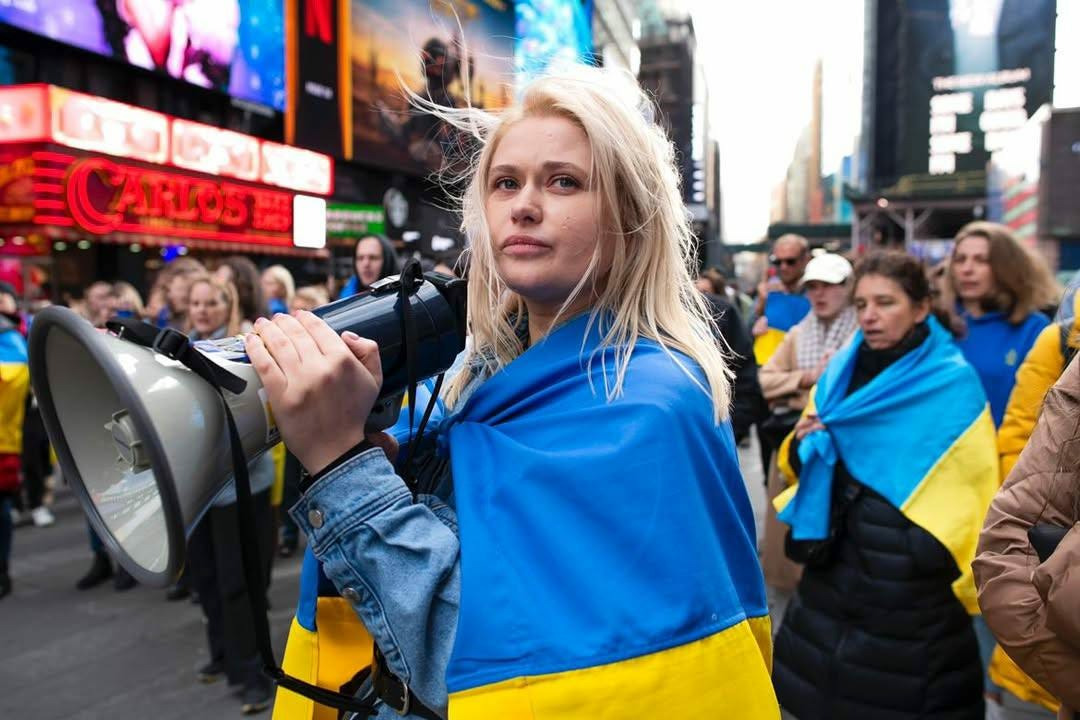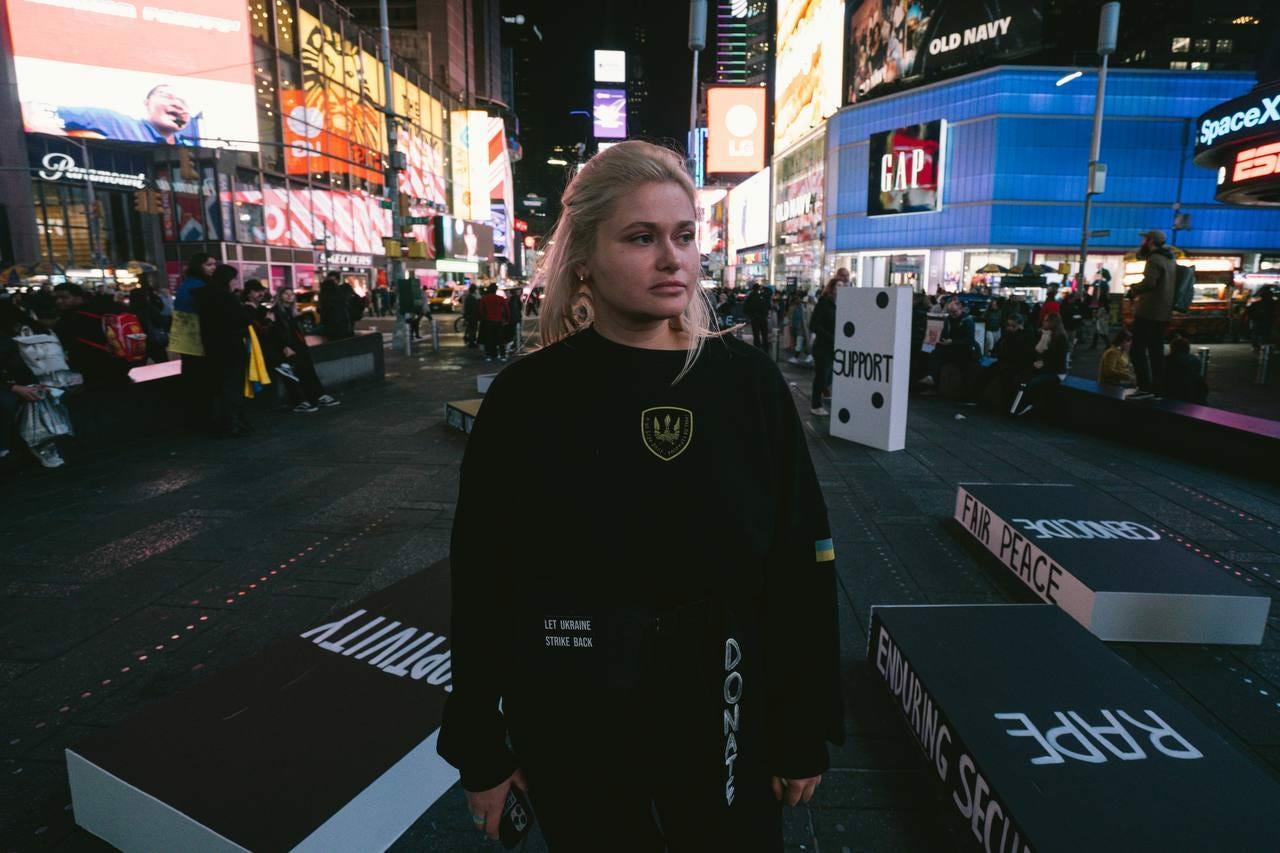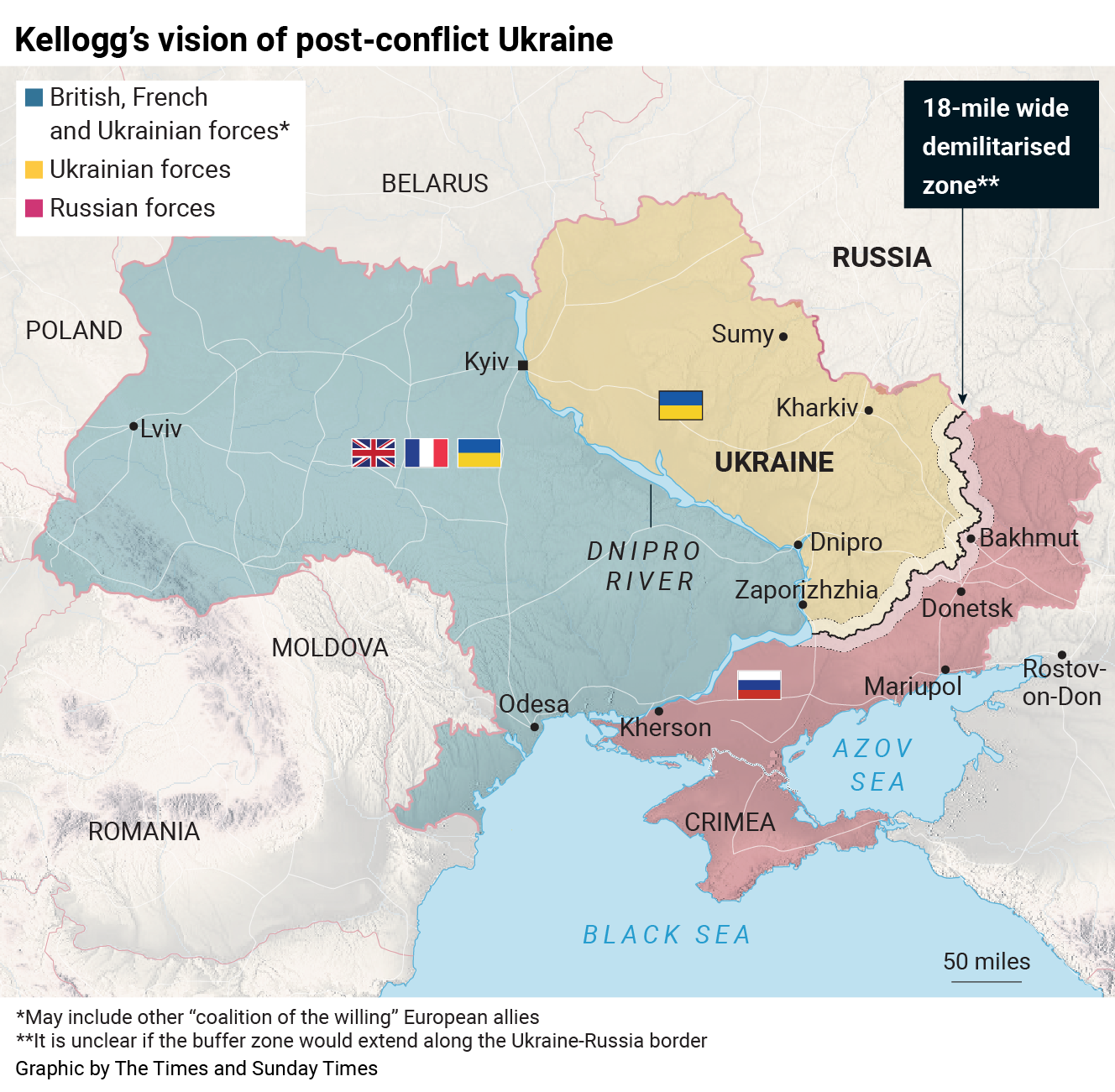-
Zelensky imposes sanctions on 4 pro-Russian politicians, businessmen
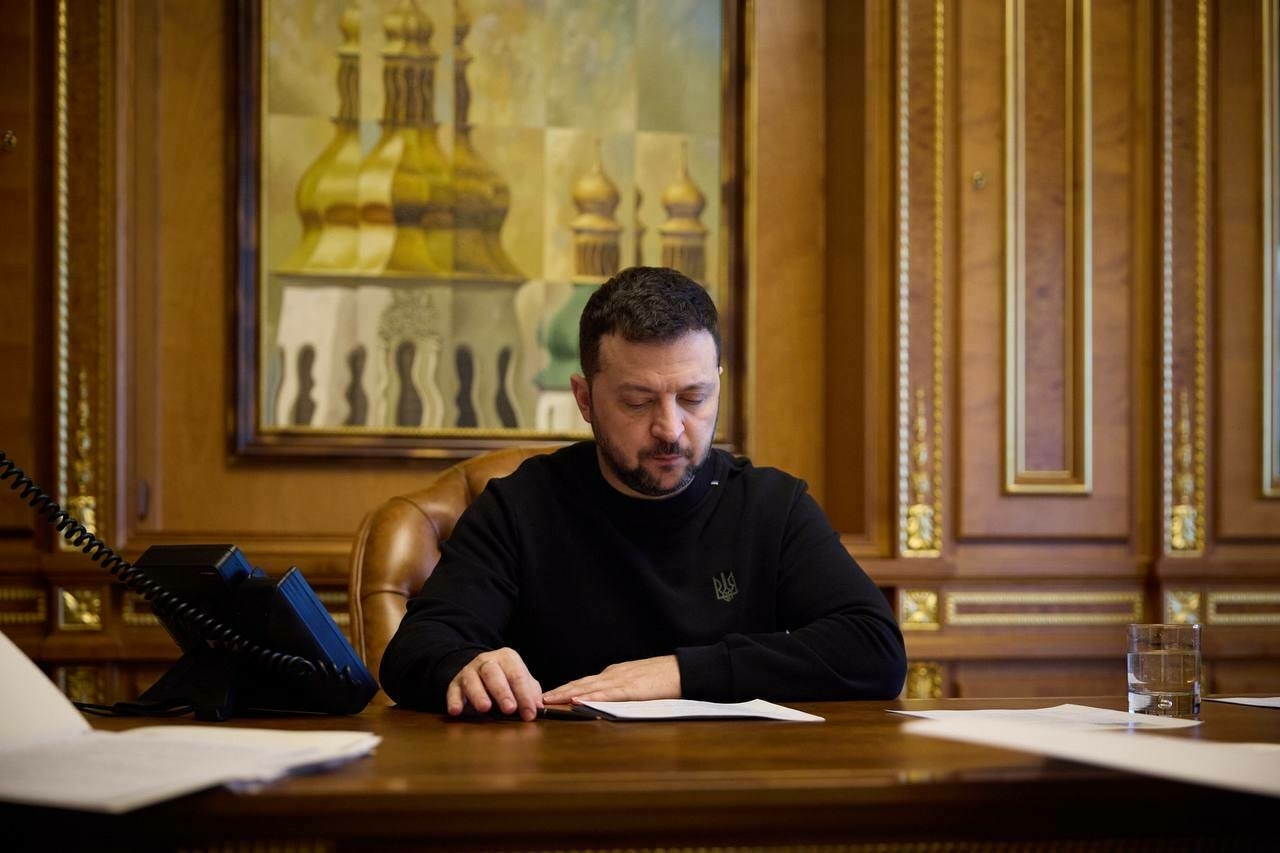
President Volodymyr Zelensky signed a decree imposing sanctions on four politicians and prominent business figures on April 12.
The decree put into effect a decision made earlier by Ukraine’s National Security and Defense Council.
Included on the list are Serhii Arbuzov, former head of Ukraine’s National Bank and former first deputy Prime Minister; Andriy Klyuyev, the once highly influential ex-head of Viktor Yanukovych’s presidential administration who was sanctioned by the U.S. in 2015; Ukrainian businessman Viktor Polishchuk; and tycoon Alyona Shevtsova.
The sanctions freeze assets and impose additional financial restrictions on the four.
Arbuzov, who is believed to have fled Ukraine for Russia in 2015 and is wanted by Ukraine’s General Prosecutor’s Office, briefly served as acting prime minister in 2014 amid the ongoing street protests, known as the EuroMaidan Revolution.
The U.S. sanctioned Klyuyev nearly a decade ago for his role in the government of pro-Russian ousted President Yanukovych.
U.S. prosecutors have said he was among the people who paid U.S. lobbyist and political consultant Paul Manafort, who was found guilty of bank fraud and filing false tax returns.
Klyuyev is also believed to be living in Russia.
Russian drone attack kills one, injures two in Kherson OblastOn April 12, Russian forces attacked a civilian vehicle in the Dniprovskiy district, Kherson Governor Oleksandr Prokudin said. The drone dropped explosives on the car, fatally wounding a 27-year-old man.The Kyiv IndependentAnna Fratsyvir
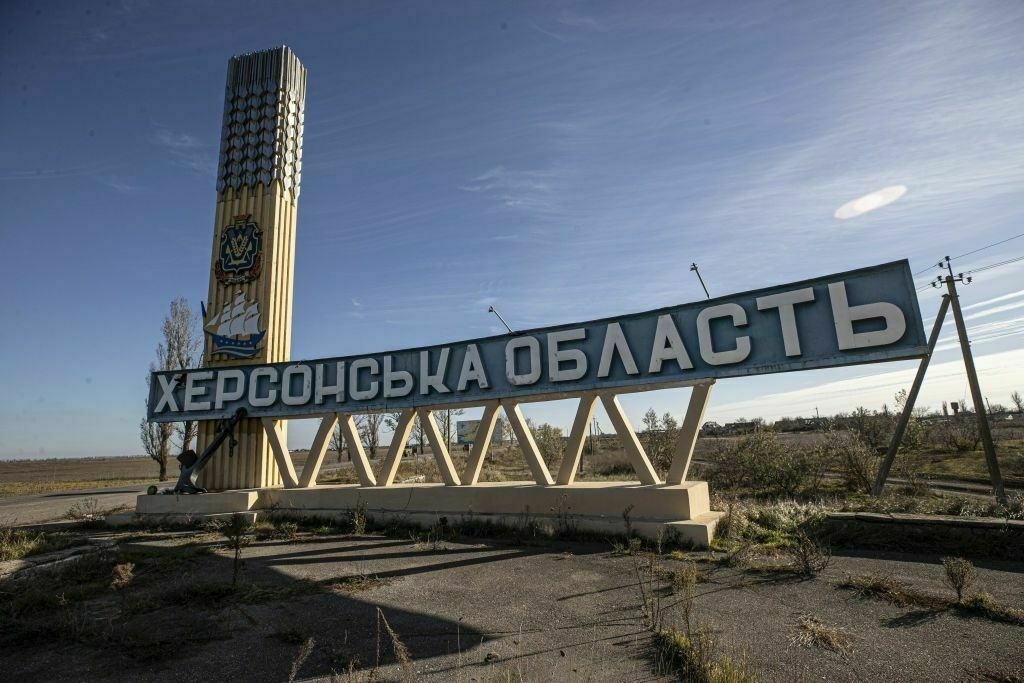
-
The 280,000 Ukrainians at risk of U.S. deportation
Editor’s Note:
We turn two years old on April 25th! We’re making it a goal to have 100 new subscribers by that mark. Will you help us reach our milestone?
We cover Ukraine not just as a battlefield but as a country with deep culture, history, and traditions. We need your help to provide the body armor, first aid kits, gas and food to continue reporting.Ganka Smirnova fled the war to the United States in search of safety.
But now the country that was her place of refuge may soon tell her to leave.
The Trump administration is considering an order that could send her back to Ukraine — and a return to nightly explosions, routine airstrikes, and shattered homes.
"I have a place to return to, but many people don't," Ganka said. “And that's the worst thing.”
Donald Trump said last month that he is weighing revoking the legal status of approximately a quarter million Ukrainians who fled the conflict with Russia. Reuters, citing four sources, the decision could come as soon as this month.
Just over a week ago, some Ukrainian citizens residing in the United States under a humanitarian program received letters from DHS informing them that their status had been revoked and that they had seven days to leave the country. The next day, a DHS spokesperson acknowledged that the notices had been sent in error and that the program remained active.
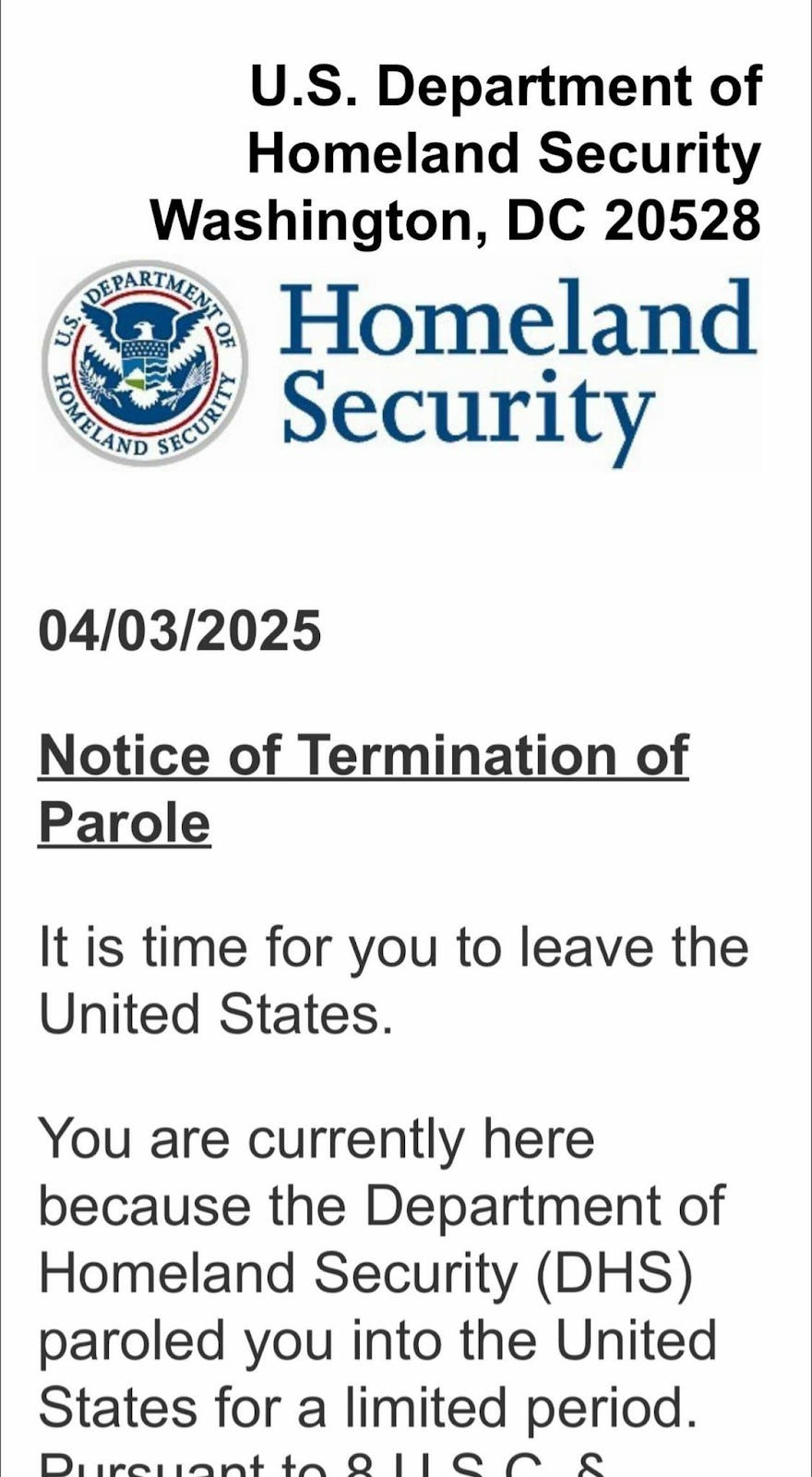
A letter stating that a person must leave the United States. Photo by Facebook/IA Newcomer Integration Community & Exchange The refugees arrived under the Uniting for Ukraine (U4U) program launched by the Biden administration, which allows Americans to sponsor a Ukrainian, provided they guarantee the refugee’s financial well-being. Most have found jobs, sent money to their families in Ukraine, and are building new lives.
Deportations would result not only in personal tragedies, but also broader consequences: for the American economy, which has received an influx of labor; for the relationship between Washington and Kyiv; and even for the future of the war, as the income earned by Ukrainian refugees is an essential resource for their families back home.
Worst of all is the uncertainty. Like small businesses unsure if tariffs are on or off, Ukrainians can hardly plan anything while a Trump-shaped guillotine towers over their American future.
As of January 2024, the United States had accepted the largest number of Ukrainian refugees among countries outside of Europe. About 280,000 Ukrainians have moved to the United States on the U4U program, according to the Ukraine Immigration Task Force, an NGO that helps Ukrainians resettle in the U.S.
The threats have unsettled many Ukrainian refugees in America. One of them is Ganka, who left Ukraine in the first year of the war.
On February 27, 2022, the first Russian military vehicles were spotted in the village of Makariv, where she was staying. The troops were trying to break through to Kyiv, which lay to the east. On March 2, the Ukrainians liberated the village and gained a foothold in it. However, Makariv was still under constant shelling.
"For two weeks we were in this [occupation] without electricity, without water, without food, where we had to survive, where there was bombing... and you just don't know what you're going to do tomorrow, whether you're going to wake up or not," Ganka recalled.
Despite the constant attacks, Ganka had delayed moving, because she did not want to leave Ukraine and her family at such a difficult time. In November 2022, Ganka came to New York on the Uniting for Ukraine program. A friend from Washington, D.C., helped Ganka get in.
Americans were kind to Ganka when she arrived — everyone she met was very friendly. But the effects of living under occupation had taken their toll, and she struggled with her first days in the United States.
"New York is a very loud city, with many people. And that affected me. It triggered me [because of the noise she recalls from occupation]. It was terrible," Ganka told The Counteroffensive. "At first, I lost touch with reality here, because there is a war going on in Ukraine. People here seem to be living their quiet, peaceful, ordinary lives... I felt that it was all a kind of simulation, a game. And it was not real.”
More than once, Ganka considered buying a ticket back to Ukraine because her heart pulled her home. But she realized she could be helpful in America too. She began attending protests demanding more aid for Ukraine, raising money for the armed forces, and supporting other Ukrainians in the United States.
Rally in support of Ukraine, New York, 2022. Video provided by Ganka
The U4U program provided Ganka with a work permit, enabling her to secure a job as a model at an agency. There are no restrictions on specialties, allowing Ukrainians to work in any field. The program also provides monthly financial assistance, which includes a little over $200 for food and $90 in cash. “It's not a lot of money for New York, but it helps to pay for the phone, for example,” Ganka said.
At the end of January, Donald Trump signed the ‘Securing Our Borders’ executive order, instructing the Department of Homeland Security to halt all migrant programs established under the Biden administration.
He then indefinitely suspended the acceptance of new applications for U4U.
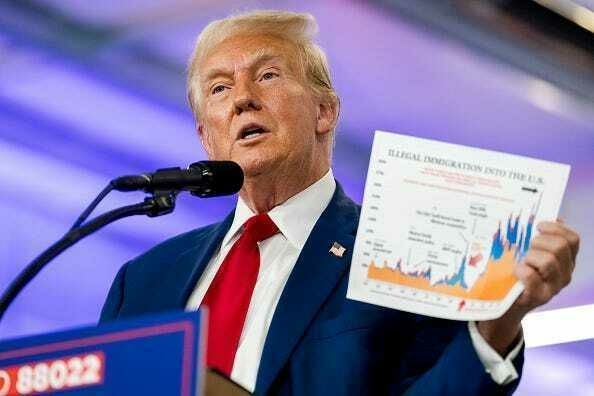
Republican presidential candidate, former U.S. President Donald Trump speaks while holding a document about immigration during a visit to the Livingston County Sheriff's Office on August 20, 2024 in Howell, Michigan. (Photo by Nic Antaya/Getty Images) In addition, 530,000 Cubans, Haitians, Nicaraguans, and Venezuelans – as well as 70,000 Afghans fleeing the Taliban – have been threatened with deportation.
Trump himself has been unclear regarding where he stands on revoking the status of Ukrainian refugees.
"We're not looking to hurt anybody,” he told reporters in the Oval Office. "There were some people that think that's appropriate, and some people don't, and I'll be making the decision pretty soon."
If Trump signs an executive order, deportations would not begin immediately, due to martial law still being in effect in Ukraine, and it's possible that they could be offered alternatives on how to stay legally, said Yelyzaveta Mazur, an immigration lawyer at the Ukrainian law firm Prikhodko & Partners.
However, absent alternatives they will either have to leave or wait for an evacuation organized by the Ukrainian authorities. Individuals who do not leave the United States or apply for a new status might face fines or administrative penalties, depending on state laws, according to Mazur.
Ganka, who may be deported from New York, said that when she heard about the possible decision, she felt angry and upset: how can this happen when there is still a war in Ukraine?
"Where's the logic: he [Trump] wants to send Ukrainians home, and then he says he doesn't want to hurt them. And this ambivalence, it's a little bit confusing. It's a kind of chaos," Ganka said.
The return of deported Ukrainians could create several issues, particularly for those who have lost their homes or who come from occupied territories, Mazur said. Do they possess valid Ukrainian documents? Are they included in government registries, given that many left with non-biometric passports?
Another issue is housing. Will those whose homes were destroyed be able to get it? In Ukraine, the process of finding housing has been complicated, and those returning from the United States may also face scrutiny regarding the legality of their departure, particularly for men.
“The question is for those who left for help, to escape the war. Most of them are not from Kyiv or western Ukraine. If they are deported from the United States, they will need to apply for benefits, assistance from the state, and compensation for housing,” Mazur said.
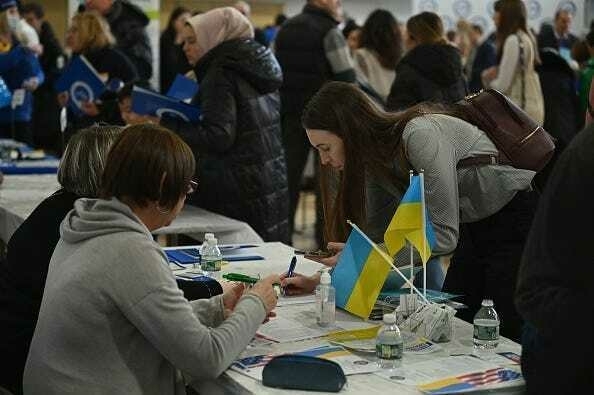
Ukrainian refugees attend a job fair in the Brooklyn borough of New York on February 01, 2023. (Photo by ANGELA WEISS/AFP via Getty Images) Deporting a quarter of a million people could affect America's international reputation, which is already changing, Ganka said.
Even if such a decision is made, she is not afraid. Ironically, like those who would like to deport her, Ganka’s dream is that she can one day return to Ukraine.
"We are all living in a war, even if we are far away from it. It is impossible to forget it," she said. "I would like to return to a peaceful Ukraine with all our territories and people. I want many other Ukrainians to do the same and help rebuild Ukraine."
In this time of great uncertainty — and unstable American support — it means that the situation on the ground is very dangerous. Your contributions help us get the body armor, medical gear, and supplies we need to stay safe.
Show your support by contributing to our tip jar - funds go towards keeping us safe and ensuring our work continues.
NEWS OF THE DAY:
Good morning to readers; Kyiv remains in Ukrainian hands.
TRUMP ENVOY: PARTITION UKRAINE LIKE POST-WWII BERLIN: Gen. Keith Kellogg, Trump's envoy to Ukraine, said that British/French troops could be stationed west of the Dnipro River as a "reassurance force," while Ukrainian forces were based east and north of the river.
The forces would act together as a deterrent to future Russian violations of the ceasefire, Kellogg envisioned, according to The Times. “You could almost make it look like what happened with Berlin after World War Two, when you had a Russian zone, a French zone, and a British zone, a US zone,” he said.
UKRAINE: TWITTER CONCEALING RUSSIAN WAR CRIMES: A spokesperson for the Ukrainian Ministry of Foreign Affairs criticized Twitter for applying the tag “sensitive content” to a post about Ukrainian children killed by Russia — arguing that it was tantamount to concealing war crimes.
"This isn’t preventing users from exposure to graphic content. This is sweeping Russian war crimes under the rug," said MOFA spokesman Heorhii Tykhyi. “This is shameful and must be reversed.”
TRUMP'S NEGOTIATOR WITKOFF MEETS PUTIN: Steve Witkoff flew to St. Petersburg for talks with Putin, and was photographed shaking hands with the dictator. No results from the meeting have been shared publicly, per Sky News.
… WHILE TRUMP URGES PUTIN: Meanwhile, Trump urged Putin to get serious about peace. "Russia has to get moving. Too many people ere [sic] DYING, thousands in a week, in a terrible and senseless war," wrote Trump on a Truth Social post. A top White House spokesperson said that Trump was getting frustrated with both the Ukrainians and the Russians.
"I think the president has been quite clear that he's been continually frustrated with both sides of this conflict and he wants to see this fighting end; he wants the war to end, and we believe we have leverage in negotiating a deal,” Karoline Leavitt said.
DOG OF WAR:
Today’s Dog of War is a husky with such beautiful eyes. She was waiting for her owners at the entrance to a store, and Nastia couldn't help but take her photo.
Stay safe out there.Best,
TimThe Counteroffensive is a reader-supported publication. To receive new posts and support our work, consider becoming a free or paid subscriber.
-
Russia’s Interference in European Politics
In recent years, authoritarian parties and those on the political extremes have been gaining ground across Europe. This trend is worrying not only because of their illiberal agendas but also because many of them have ties to Moscow. Russia has invested in both far-right and far-left movements to destabilize European societies and institutions. Still, not all such parties are direct agents of the Kremlin. So, how deep does Russia’s influence on European politics truly run?
What do Europe’s political extremes stand for?
Across Europe, political parties whose agendas diverge from the EU’s prevailing course are gaining increasing influence. These parties advocate prioritizing national interests over EU-wide policies, restricting immigration, rejecting environmental regulations, and promoting traditional energy sources. While they often brand themselves as conservative, critics accuse them of radicalism—especially after Russia’s full-scale invasion of Ukraine.
One of the main points of criticism is these parties’ stance on military aid to Ukraine. They emphasize the need to bolster their own national security and defense, often arguing for a reduction in support to Kyiv. Some of their leaders maintain—or have maintained in the past—ties with Russian political circles. For instance, the 2023 electoral victory of the Dutch Party for Freedom (PVV) was portrayed by Russian media as a win for the Kremlin, citing party leader Geert Wilders’ past expressions of support for Vladimir Putin. However, Wilders insists he is not an ally of Moscow and has acknowledged Russia as the aggressor, calling Putin a “horrible dictator.” While he no longer opposes financial aid to Ukraine, he remains against sending Dutch troops to the country.
Russia’s interference in European politics, however, is not a recent phenomenon. Between 2014 and 2022, the Kremlin spent over $300 million financing foreign political parties. As of 2023, more than 900 political parties and organizations—and some 1,300 influential individuals—across 19 European countries were promoting pro-Russian narratives. In addition, Russia conducts information campaigns in support of specific candidates—the most recent example being Romania—and works to stir up discord within European societies. Direct Russian involvement in European politics is not always easy to detect. Still, some political forces openly support Moscow. Unfortunately, even when these forces are in opposition, they can still influence European governments’ decisions on Ukraine. Below, we examine several examples.
GERMANY. The Alternative for Germany (Alternative für Deutschland, AfD) party is well known for its pro-Russian rhetoric. An investigation by The Insider revealed that AfD members of parliament sabotaged arms deliveries to Ukraine, acting in the Kremlin’s interests. Vladimir Sergiyenko, an aide to a Bundestag MP, coordinated public statements with Russian handlers in exchange for payment. The AfD has also filed lawsuits seeking to block military assistance to Kyiv.
An investigation by Der Spiegel revealed links between AfD staffers and Russian security services. The Kremlin was found to have financed AfD Members of the European Parliament Maximilian Krah and Petr Bystron. The Czech government also confirmed the scale of a Russian influence operation in which AfD played a key role. Moscow used the media platform Voice of Europe to spread pro-Russian narratives across Europe in the lead-up to the 2024 European Parliament elections. Through the same platform, Moscow funneled millions of euros to politicians promoting Russian propaganda. In response, the Czech government and the EU imposed sanctions on Voice of Europe and several individuals involved.
Today, AfD commands around 20% of the vote. While a significant number of people continue to protest against the party, it is nevertheless likely to remain a major influence over both German and EU politics.
SLOVAKIA. The Slovak parliament currently includes three openly pro-Russian parties: Direction – Social Democracy (Smer – sociálna demokracia, 23%), Voice – Social Democracy (Hlas – sociálna demokracia, 17.2%), and the Slovak National Party (Slovenská národná strana, 13.1%). The current prime minister—now serving his third term—Robert Fico, represents the first of these. Fico is planning to visit Russia on May 9 and, together with Hungarian Prime Minister Viktor Orbán, has been blocking EU assistance to Ukraine. He has repeatedly made pro-Russian and anti-Ukrainian statements, calling sanctions against Moscow “pointless,” promising to veto Ukraine’s NATO membership bid, and dismissing the Ukrainian army’s fight to liberate occupied territories as “naive.” In 2024, he became one of the first European leaders to break Russia’s diplomatic isolation by traveling to Moscow—ostensibly to negotiate gas supplies.
The Voice party (Hlas) was founded in 2020 and is led by Peter Pellegrini—an ideological ally of Fico and the current president of Slovakia. In February 2020, ahead of Slovakia’s elections, Pellegrini received an invitation to visit Moscow, facilitated by Viktor Orbán. Investigative reports indicate that the Hungarian and Russian governments discussed possible ways to support Pellegrini.
The Slovak National Party (Slovenská národná strana), the oldest of the three (active since 1989), is led by Andrej Danko. Danko has stated that supporting Ukraine “doesn’t solve the problem, it only heightens tensions” and that Russia “is not an aggressor, but merely defending its interests.” He also claimed that Russians “entered this territory with the intention of helping their nation,” effectively justifying Russia’s full-scale war against Ukraine. Danko headed a delegation of pro-Russian Slovak MPs who visited Moscow in January 2025. He described the opportunity to speak in the State Duma as “a once-in-a-lifetime honor.”
These statements—along with ongoing Russian propaganda—appear to have shaped public opinion in Slovakia. More than half of Slovaks blame either the West or Ukraine for the war, while only 40% see Russia as responsible—the lowest figure among countries in Central and Eastern Europe.
AUSTRIA. The Freedom Party of Austria (FPÖ), founded in 1985, has consistently opposed EU integration and support for Ukraine. Its leader, Herbert Kickl, has openly stated his intention to block Ukraine’s accession to the European Union, arguing that it poses a threat to European agriculture. FPÖ’s position closely mirrors the political stance of the Hungarian and Slovak governments. A vivid display of the party’s pro-Russian leanings came in March 2023, when Kickl’s MPs walked out of the Austrian parliament during President Volodymyr Zelensky’s video address in protest against Austria’s support for Ukraine.
FPÖ’s September 2024 election campaign was marked by strongly anti-European and anti-Ukrainian rhetoric. One of the party’s key posters read “Stop the EU Madness” and depicted Ukrainian President Volodymyr Zelensky alongside European Commission President Ursula von der Leyen, set against a backdrop of tanks and helicopters with the caption “Fueling the War.” Through this messaging, the party sought to foster voters’ negative attitudes toward the EU’s policy on Ukraine. Like Germany’s AfD, FPÖ also has financial ties to Russia. In 2019, FPÖ leader Heinz-Christian Strache was caught discussing potential funding from a Russian oligarch in exchange for political favors once in power. Today, FPÖ leads in public opinion polls with 34% support.
BELGIUM. The New Flemish Alliance (Nieuw-Vlaamse Alliantie, N-VA) came in first in Belgium’s 2024 national elections, receiving 18% of the vote. The party’s platform includes the separation of Flanders from Wallonia—possibly explaining its receptiveness to Russian narratives about the “independence” of the so-called “DPR” and “LPR.” Party representatives served as observers at the so-called referendum in Crimea, as well as during the “elections” held in the self-proclaimed “DPR” and “LPR.” The Russian propaganda outlet Voice of Europe has published interviews with members of Vlaams Belang. In 2018, Filip Dewinter, a member of Vlaams Belang, took part in drafting a resolution to lift sanctions against Russia, which was to be submitted to the Belgian parliament. Such initiatives were not unique to Belgium. In the Parliamentary Assembly of the Council of Europe (PACE), there were also discussions concerning a report by a Belgian MP on the potential lifting of sanctions against Russia. For example, in June 2019, PACE considered a resolution that could have weakened the Assembly’s sanctions mechanism and enabled the return of the Russian delegation. After 2022, representatives of Vlaams Belang were compelled to condemn the aggression—however, they still oppose sanctions against Russia.
In 2024, the European Anti-Fraud Office (OLAF) launched an investigation into Vlaams Belang over the possible embezzlement of EU funds. Nevertheless, by mid-2024, the party had the highest level of public support—23%. Slightly behind was the N-VA, with 22%. Both parties advocate for dividing Belgium into two states and oppose immigration, but N-VA supports providing both military and humanitarian aid to Ukraine, setting it apart from Vlaams Belang.
FRANCE. The National Rally (Rassemblement National), founded in 1972, is currently led by Marine Le Pen, who succeeded her father as party leader. The party has close ties with Russia—for example, its 2014 election campaign was financed by a Russian bank (though, according to media reports, the loan was repaid in 2023). Le Pen’s connections to Russia are detailed in a report by the French parliament. The report states that Russian oligarch Konstantin Malofeev served as one of the intermediaries between the Kremlin and the French far-right and that the National Rally has regularly supported Putin’s policies: party members have visited Russia, Crimea, and Donbas, taken part in elections organized by Russia, and voted in the European Parliament against resolutions that were unfavorable to the Kremlin. In 2024, Marine Le Pen was forced to explain herself after receiving public support from Russia’s Foreign Ministry. In that year’s parliamentary elections, the National Rally received the largest share of the vote—37%—but a governing coalition between the left-wing Popular Front and Macron’s party prevented the far right from forming a government.
ITALY. The League (Lega), led by Italy’s Deputy Prime Minister Matteo Salvini, has long-standing ties with the Russian authorities. Salvini has repeatedly expressed support for the Russian president, whom he called “the best statesman on Earth” in 2019. On March 6, 2017, the League signed a five-year agreement with United Russia—which was automatically renewed in March 2022.
In 2018, representatives of this Italian party visited Moscow to negotiate a scheme for receiving $65 million from the Russian government. The negotiations involved Andrei Kharchenko—an officer of Russia’s FSB foreign intelligence service and a representative of the Fifth Service. This division played a key role in attempts to politically destabilize Ukraine, particularly during the Euromaidan. An investigation by The Insider revealed that Kharchenko also met with Iranian officials.
Since the start of the full-scale war, the leader of the League has continued to spread Russian propaganda regarding the war against Ukraine.
ROMANIA. Călin Georgescu, leader of the Alliance for the Unity of Romanians (Alianța pentru Unirea Românilor, AUR) and a candidate in the most recent presidential election, was detained for his involvement with an organization exhibiting fascist traits and for promoting individuals responsible for genocide or war crimes. He is also facing charges of falsifying statements about the sources of his campaign funding, along with other electoral offenses. Georgescu had previously claimed that his campaign was entirely free of charge and not financed by any external sources. However, there are suspicions that Russia may have funded it through intermediaries.
In addition, Georgescu met with Russian ideologue Aleksandr Dugin, which raised further questions about his political connections. As part of the investigation, law enforcement carried out 47 searches involving individuals close to Georgescu, including his partner, who, according to police, maintains contacts with high-ranking Russian officials.
Romania is a clear example of how a country’s institutions can respond to an external threat and defend the constitutional order—without hiding behind appeals to “the will of the people.” Let’s now take a look at how other countries are protecting themselves from foreign influence over their domestic politics.
Regulating foreign funding of political parties
Out of 181 countries worldwide, only 52—including Germany, Belgium, and Austria—allow foreign donations to political parties. However, such bans or permissions may vary in extent. For example, 16 OECD countries prohibit all foreign donations. In contrast, others may permit certain types—such as contributions from individuals or non-governmental organizations—while banning donations from legal entities or foreign states. EU countries often allow parties to receive funding from foreign individuals or parties registered within the EU. This aligns with the recommendations of the Venice Commission from 2006, which generally advised banning foreign funding of political parties.
In recent years, many countries have introduced bans on foreign funding of political parties or made existing bans more stringent. Violations of funding rules—particularly the receipt of money from foreign donors—are typically punishable by fines, imprisonment, suspension of party activities, loss of public funding, or even deregistration.
A 2021 report by the European Parliament acknowledges the problem and recommends that EU member state governments take additional measures to counter hostile political influence. However, it also notes that proving foreign influence over a political party is quite difficult, as funding can be concealed—through proxies, cryptocurrencies, or even cash. Therefore, despite investigations by journalists or data from NGOs, proving the receipt of foreign funds and applying relevant legislation to violators remains a significant challenge.
At the same time, the fact that even openly pro-Russian positions do not reduce some politicians’ approval ratings—as in the cases of Orbán or Fico—suggests that the reasons behind the democratic world’s rightward shift are more fundamental. We recommend reading our series of analyses on the causes and consequences of populism’s rise: 1, 2, 3, 4, 5.
Conclusions
Two key conclusions can be drawn from the above. To start with, right-wing sentiment is on the rise in Europe. The third-largest faction in the European Parliament—Patriots for Europe, with 84 out of 720 members—includes representatives of many of the parties mentioned above, with the exception of those from Slovakia. The growth of such sentiment is partly driven by real challenges, such as the significant influx of migrants into the EU. In some cases, migrants do not integrate into the societies where they reside, leading to the formation of ghettos and a rise in crime.
However, the ties between far-right parties and Russia show that Moscow is deliberately supporting these forces and amplifying related narratives in order to destabilize European societies. Among other things, such chaos and internal disruption reduce political and military support for Ukraine. And if pro-Russian forces come to power, that support could disappear altogether.
At the same time, the rise to power of far-right or populist forces would have negative consequences for European countries themselves since the simplistic solutions these parties offer to complex challenges do not work in practice. In the current context—where Russia is waging war against Europe—European intelligence services must devote far more attention to political actors who promote Kremlin-aligned narratives or benefit from Russian support. Relevant legislation should also be made stricter. At the same time, it is essential to conduct an honest dialogue with voters about the problems facing modern Europe and realistic ways to address them.
Photo: depositphotos.com/ua/
-
Mineral diplomacy or modern-day extortion in Ukraine?
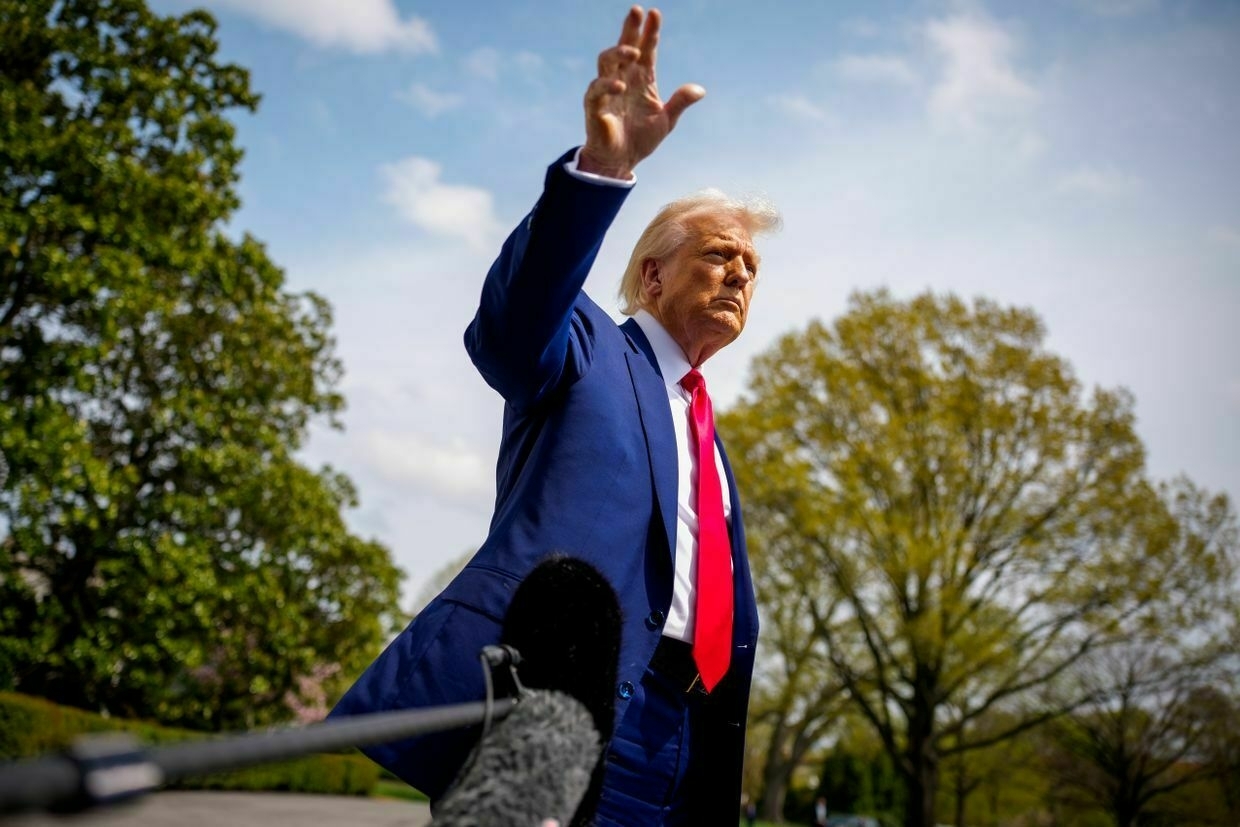
Eleven years ago, Russia seized Ukrainian territory by force. Three years ago, Russia launched a full-scale invasion of Ukraine. Today, Ukraine faces a new threat to its sovereignty: U.S. President Donald Trump’s demand that the country hand over a significant amount of its mineral wealth or face the prospect of future Russian intervention without American support.
The proposed “agreement” has been met with skepticism from mining experts, pushback from Kyiv, and even a counteroffer from the Kremlin. Staggeringly, this “very big deal” appears to have ignored the ambitions of the Ukrainian people altogether — and yet it has been met with bipartisan acclaim in the U.S.
Instead of creating an economic bond that would hold the two nations together, this mineral deal will be a fiasco for both Americans and Ukrainians. A deal made through coercion, rather than equitable negotiation with community consultation, will not only worsen Ukraine’s humanitarian emergency and long-term development efforts; it will also fail to strengthen America’s mineral supply chain.
Trump is correct that the U.S. will need critical minerals — including lithium, graphite, and rare earths — which will power the energy and security technology of the future. But through Oxfam’s decades of work in mining communities, we know firsthand that deals shaped without community consent are destined to fail. When people are unable to shape how (or if) mining proceeds in their backyards, companies and governments bear the cost of protests, work stoppages, and lawsuits.
Even in the best circumstances, mining deals routinely fall apart. In conflict zones like Ukraine, all bets are off. Mining is capital-intensive and often dangerous work. Land disputes are common, and even well-designed projects can undermine human rights activists, host communities, Indigenous groups, and local small-scale miners. Moreover, profits are by no means guaranteed, especially not in the short term: only 30%of Ukraine’s critical minerals are in operational mines. For the remainder, it will take an average of 18 years before production is possible.
Perhaps, given these constraints, the latest — “bigger, better” — version of Trump’s mineral deal encompasses other natural resources, including oil and gas. Still, the underlying problems will likely remain: a lack of consultation, let alone consent, and gun-barrel diplomacy is no way to secure a supply chain or recoup costs.
“Should the U.S. relationship with Ukraine veer toward “mineral colonialism” — shaped by subservience, arrogance, and domination without consideration for the Ukrainian people — neither side will win.”
Erik Prince, the military contractor and shadow adviser to Trump, proposed funding the war in Afghanistan through mining, which amounted to nothing. The Kremlin experimented with a mining-for-fighting model with the Wagner Group, which was disavowed after a coup attempt in Russia. In Ukraine, any unchecked rush to extract minerals without safeguards is all but certain to fail; worse, it is sure to exacerbate corruption and social conflict, further undermining the profitability of the private sector and the accountability of the state to its people. In short, it would demolish the foundations for a stable, prosperous Ukraine.
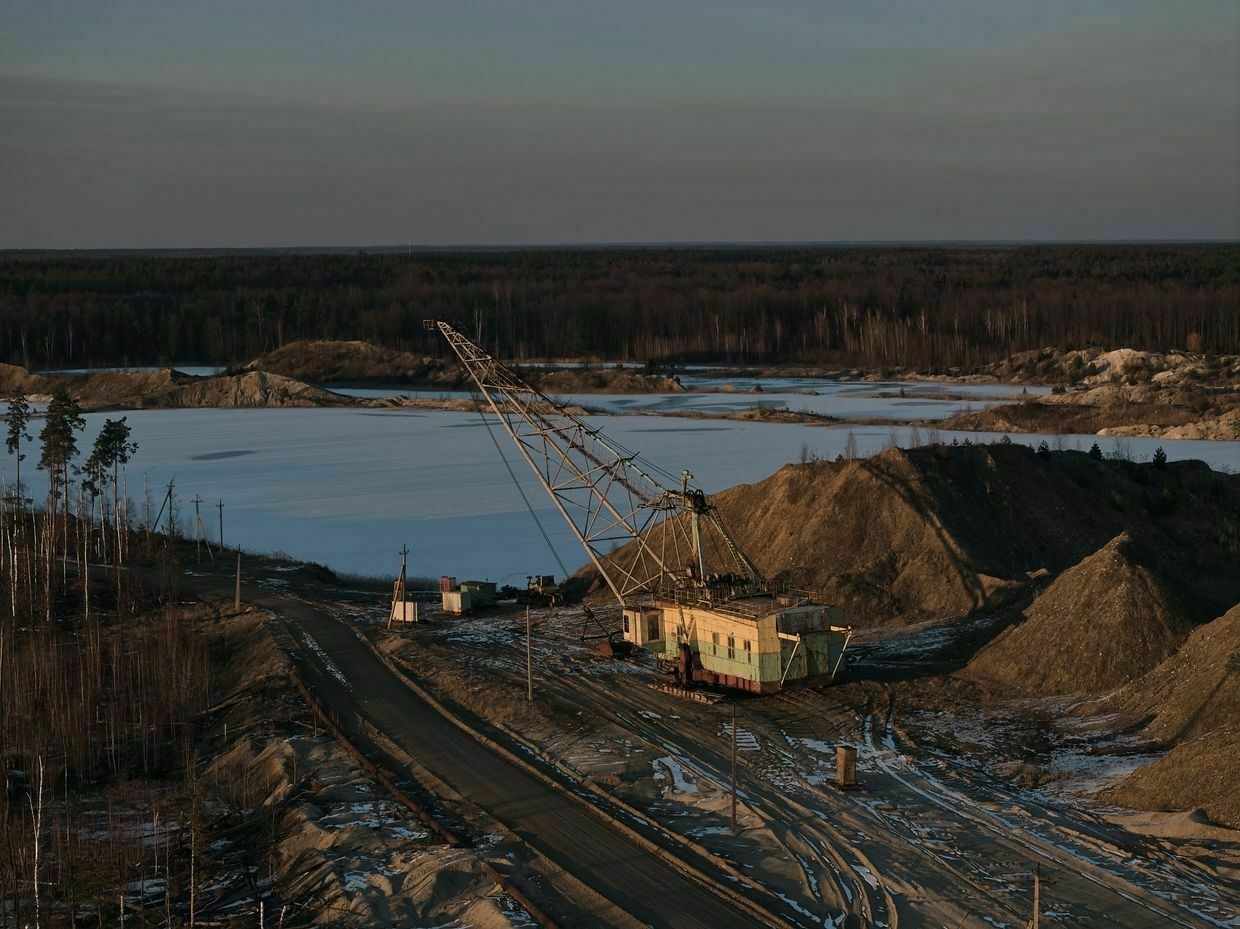
A drag-line excavator mines rare earth materials in Zhytomyr Oblast, Ukraine, on Feb. 25, 2025. (Kostiantyn Liberov / Libkos / Getty Images) There is a better way forward.
First, the U.S. and Ukrainian governments should be realistic about the short-term benefits of mining cooperation and appreciate that developing Ukraine’s natural resources is a years-long endeavor. It will not create the kind of short-term bond that Ukraine requires for its security. Rather, with an estimated $524 billion recovery bill, these resources would be better utilized as part of a long-term domestic fund for reconstruction and redevelopment. The Ukrainian government should reject any slapdash wealth transfer that might undermine its people’s immediate humanitarian needs and future political and economic success.
Second, the U.S. government should focus on building out a resilient mineral supply chain, which includes ensuring that local communities have a real say in whether and how mining projects move forward and investing in a more business-friendly environment. The mining industry itself, which has taken recent steps to improve its social performance and human rights commitments, should advocate for more rational policies in conflict-affected countries like Ukraine and reject this administration’s gutting of anti-corruption measures globally.
Lastly, and perhaps most importantly, policymakers should pursue a just and sustainable peace that recognizes Ukraine’s territorial integrity and ensures the safety of the Ukrainian people.
This latest round of “mineral diplomacy” reflects a new geopolitical reality that will be shaped by what lies beneath. Diplomacy, however, requires respect, engagement, and tact. Should the U.S. relationship with Ukraine veer toward “mineral colonialism” — shaped by subservience, arrogance, and domination without consideration for the Ukrainian people — neither side will win.
Editor’s Note: The opinions expressed in the op-ed section are those of the authors and do not necessarily reflect the views of the Kyiv Independent.
Can South Africa lead the charge for nuclear safety in Ukraine?Through the first half of March, the Truth Hounds team embarked on an advocacy trip to South Africa to discuss two major recent reports: one on the destruction of the Kakhovka dam and the international law protection of the environment during armed conflict, and another on the torture at theThe Kyiv IndependentDmytro Koval
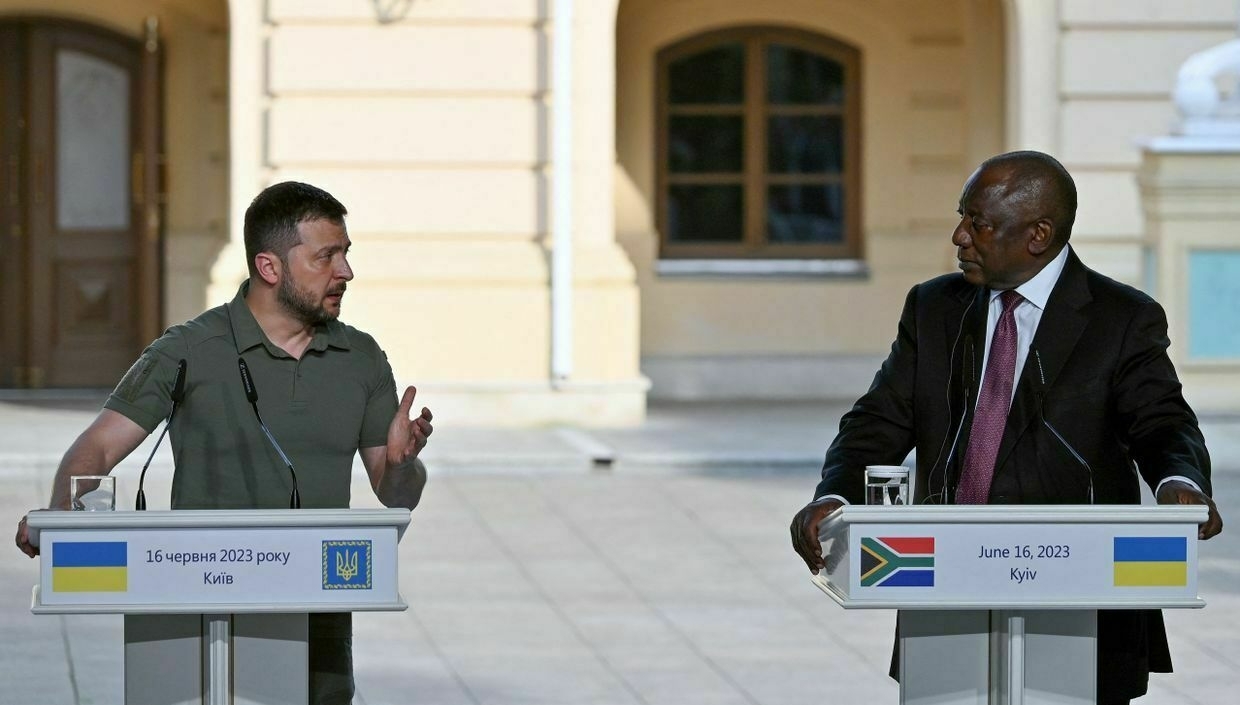
-
#HandsOff2025 Live www.youtube.com/live/ZB2D…
-
France and UK About Ceasefire. Protests Against Fico in Slovakia. Deadly Russian Attack on Kharkiv
-
Georgian Parliament passes updated foreign agents law
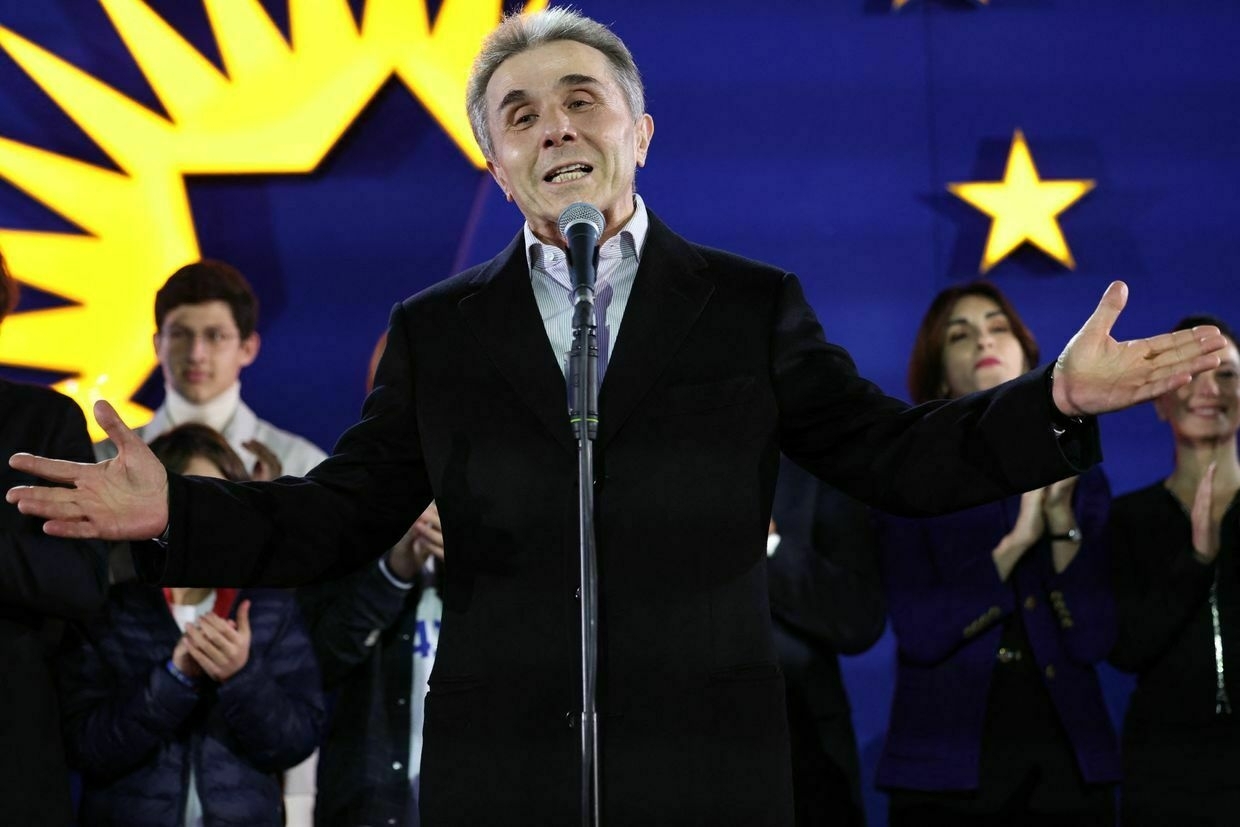
The Georgian Parliament passed the final reading of a new “foreign agents” law, Georgian media outlet Sova reported on April 1.
The law, replacing a controversial version adopted in May 2024, broadens the definition of foreign agents to include individuals, with noncompliance punishable by up to five years in prison or a $10,000 fine.
Based on the U.S. Foreign Agents Registration Act (FARA), the Georgian version includes a set of restrictive changes to the country’s broadcasting law.
FARA, originally enacted in the U.S. in 1938 to counter Nazi and Soviet ideology, requires foreign lobbyists to disclose their ties and funding sources. The law has rarely been enforced—only a handful of cases have led to criminal charges in recent decades.
Georgian opposition leaders argued that the Georgian Dream party’s use of FARA as a model is misleading, as the U.S. law is narrowly applied and not used to target NGOs or media, unlike the Georgian version.
Approved by 86 MPs, the Georgian law targets both organizations and individuals who receive foreign funding and fail to register with the Justice Ministry.
The legislation includes criminal penalties for noncompliance, which lawmakers say are meant to prevent evasion and ensure the public knows how foreign money is used.
Several NGOs have begun re-registering in countries like Estonia to avoid falling under the law’s jurisdiction.
The bill has drawn sharp criticism from Georgian opposition parties and U.S. and EU officials, who believe this bill will be used as a tool to further suppress civil society and independent media.
Originally, the first version of the foreign agents bill was passed in May 2024, in its third and final reading. The law, backed by Georgian Dream, mirrors repressive Russian legislation used to crack down on the Kremlin regime’s critics and NGOs in Russia with foreign ties of any kind.
Georgian Dream’s repressions against independent media and decisions to distance the country from the EU have prompted mass protests spanning months and violent crackdowns by the police.
Armenia refuses to finance Russian-led CSTO security alliance budgetArmenia has refused to pay its contributions to the budget of the Moscow-led Collective Security Treaty Organization (CSTO) for the past year, the country’s Foreign Ministry said on March 31, after suspending its participation in the military alliance in August 2024.The Kyiv IndependentDmytro Basmat
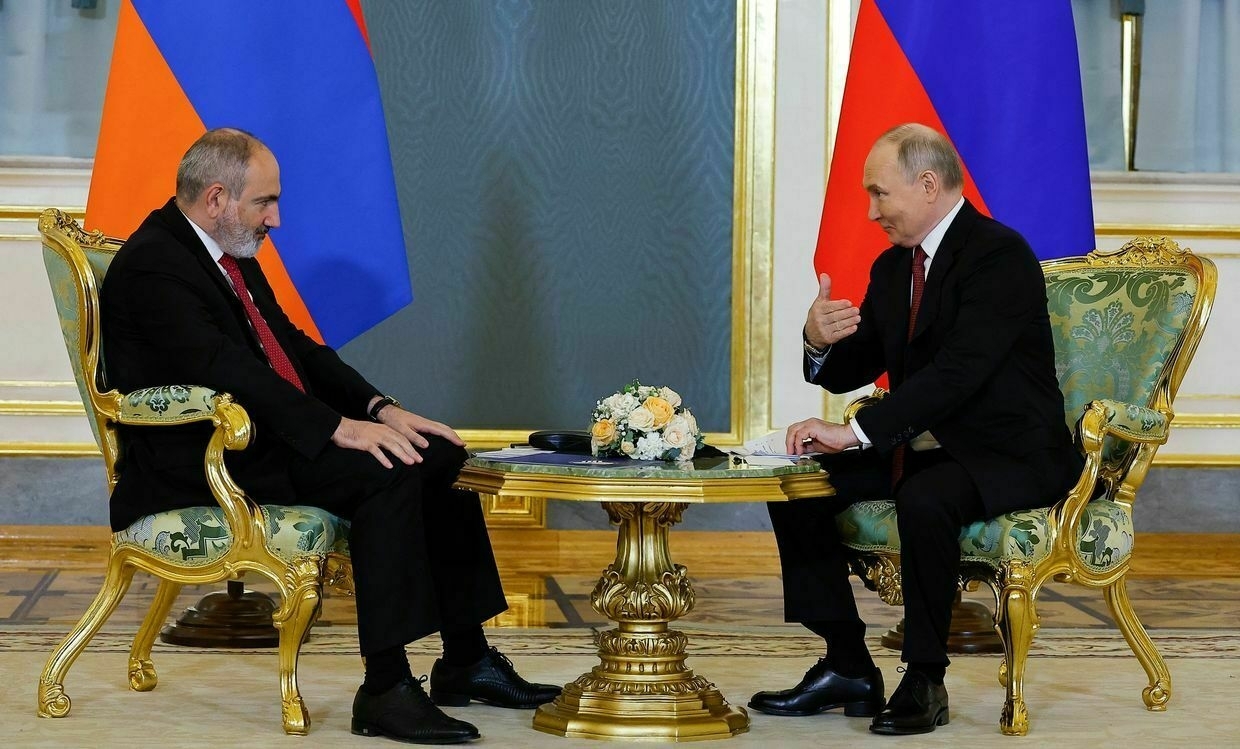
-
Belgian film festival cancels screening of 'Russians at War' documentary after Ukraine's appeal
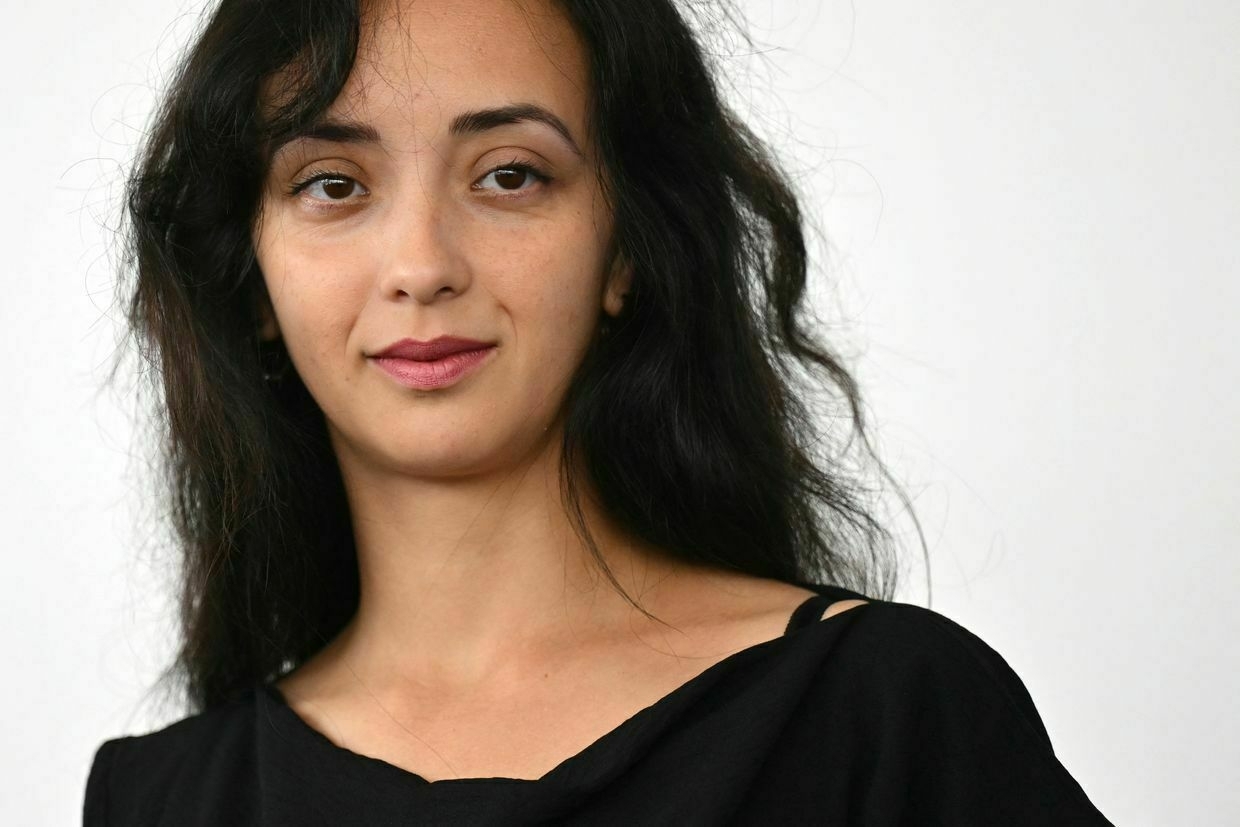
The Docville Film Festival in Leuven canceled the screening of the controversial “Russians at War” documentary after an intervention of the Ukrainian Embassy, Ukraine’s Foreign Ministry announced on March 31.
Canadian-Russian director Anastasia Trofimova’s documentary has faced criticism for what many perceive as an attempt to whitewash Russian soldiers involved in Russia’s war of aggression against Ukraine.
The embassy appealed to the Belgian federal government, the Flemish government, the local authorities of Leuven, the management of the Docville festival, and the Catholic University of Leuven to cancel the screening of the film.
The movie portrays Russian soldiers in Ukraine as ordinary people, never shows or mentions the war crimes committed by them in Ukraine, and subtly questions the truthfulness of Ukrainian testimonies of them.
Earlier in her career, Trofimova worked for Russia Today (RT), a Kremlin-backed propaganda outlet.
The movie’s past screenings have sparked protests in Canada, Australia, and the Netherlands.
‘Outright propaganda’ — Dutch university to screen ‘Russians at War’ and host panel with controversial directorA Dutch university is to screen the controversial documentary “Russians at War” and a panel discussion with its director, despite Ukrainian calls for it be be canceled because it “whitewashes… murder, rape, and torture.” Canadian-Russian director Anastasia Trofimova’s documentary has been criticize…The Kyiv IndependentYuliia Taradiuk
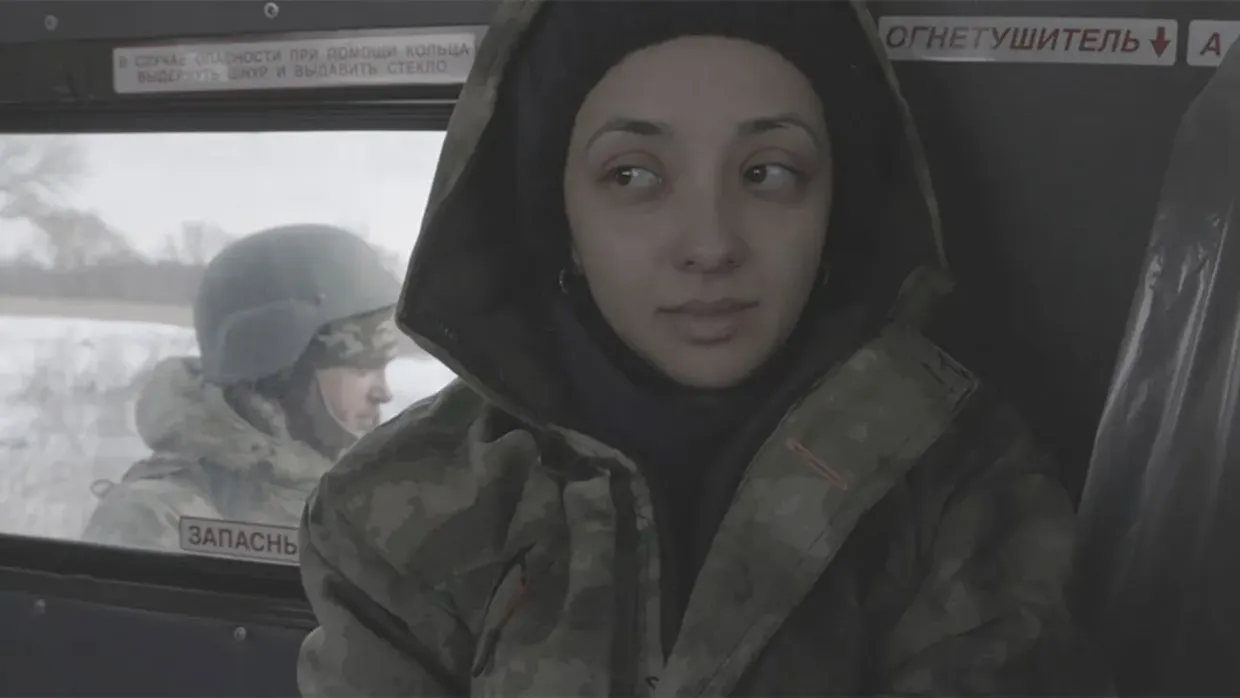
-
Moldova expels 3 Russian diplomats for aiding fugitive MP's escape to Transnistria
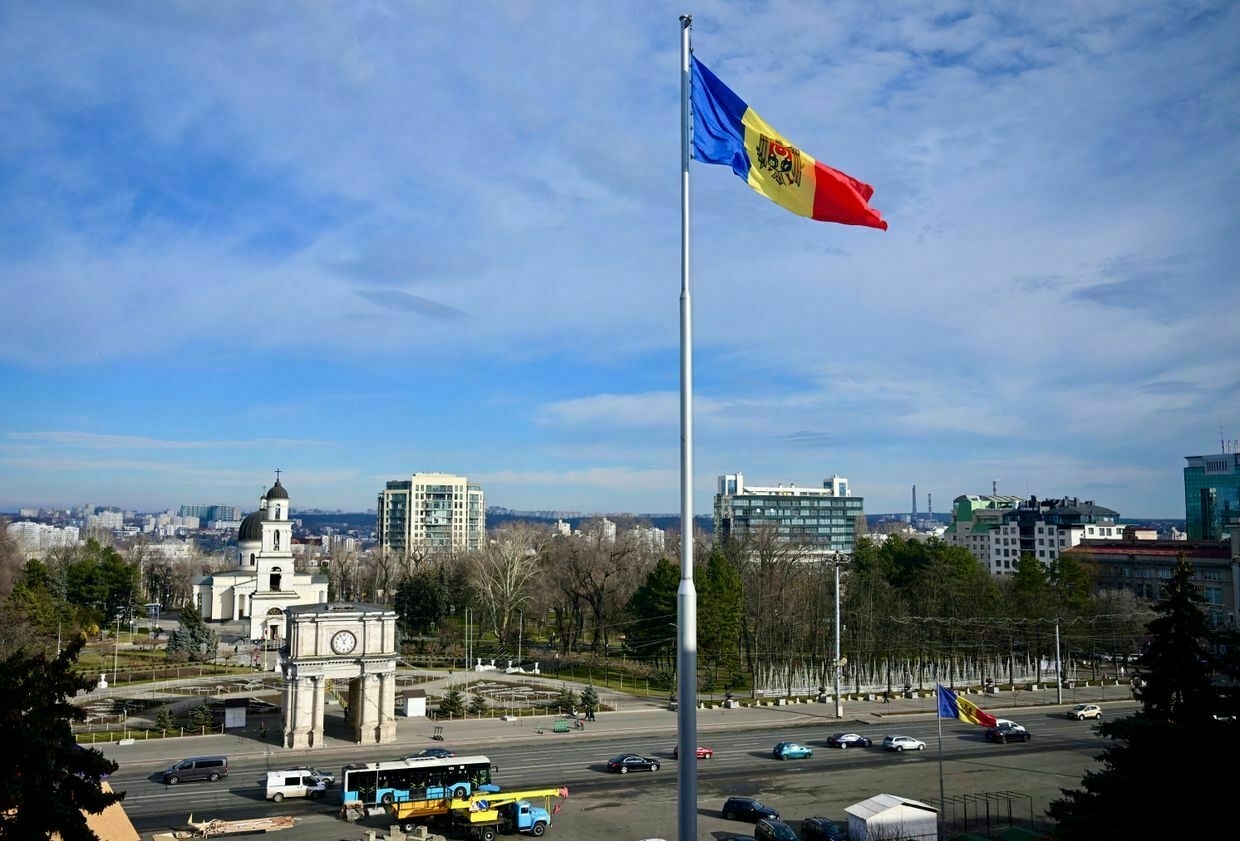
Moldova expelled three Russian embassy employees on March 31, citing activities contrary to diplomatic status, the country’s Foreign Ministry announced.
The move follows reports that Moldovan lawmaker Alexandr Nesterovschi, sentenced to 12 years in prison for illegally financing the banned pro-Russian Shor Party, escaped to Russian-controlled Transnistria with help from Russian diplomats, according to Moldovan media Newsmaker.
Transnistria is a Russian-occupied breakaway region of Moldova that Moscow invaded in the early 1990s under the pretext of protecting the Russian population.
The Moldovan Information and Security Service confirmed that Nesterovschi, convicted on March 19 for corruption, fled to Transnistria with Moscow’s assistance.
The Foreign Ministry summoned Russian Ambassador Oleg Ozerov and delivered a formal expulsion notice for three embassy employees. Russian state media TASS quoted Ozerov dismissing the accusations as “groundless and unsubstantiated."
The pro-Russian Shor Party, led by fugitive oligarch Ilan Shor, has been accused of spreading Kremlin-backed narratives and attempting to destabilize Moldova through protests against its pro-European government.
In a related case, Evghenia Gutul, governor of Moldova’s Gagauzia region and a key Shor Party figure, was detained at Chisinau Airport on March 25 while attempting to leave the country.
Moldova’s Anti-Corruption Prosecutor’s Office alleges she funneled Russian funds into the country while serving as the party’s secretary. Gutul, elected in July 2023, has maintained ties with Moscow, meeting Russian President Vladimir Putin during a visit to Russia in March 2024.
Chisinau has actively countered Russian influence, expelling dozens of Russian diplomats and embassy staff in July 2023 over espionage concerns.
Tensions escalated further after Chisinau said that Russian drones repeatedly violated Moldovan airspace during attacks on Ukraine, with some of the drones crashing on Moldovan territory.
-
Belarusian exiled opposition's chairwoman Melnikava reported missing

Anzhalika Melnikava, the speaker of the Belarusian Coordination Council, disappeared on March 25, and there has been no contact with her since, the council reported on March 28.
Polish authorities have been notified of Melnikava’s disappearance and are working to establish her whereabouts in cooperation with the council and foreign governments.
The Coordination Council is a body of the Belarusian opposition-in-exile established by opposition leader and presidential candidate Sviatlana Tsikhanouskaya in August 2020 after the state-backed electoral fraud and a crackdown on subsequent protests.
“We hope for the best, but we understand that representatives of Belarusian democratic forces remain priority targets of security services of the Belarusian and Russian regimes,” the council said on Telegram.
The Polish Interior Ministry said Melnikava had been outside Poland for many weeks. Independent outlet Nasha Niva reported that the speaker flew to the U.K. without informing anyone of her plans.
The speaker’s duties will be temporarily carried out by Deputy Speaker Stasia Hlinnik.
Belarusian dictator Alexander Lukashenko, recently inaugurated into his seventh term in presidential office after holding power since 1994, has solidified his rule through sham elections and mass repression of independent media, civil society, and political opposition.
The Belarusian secret police, the KGB, is believed to be closely monitoring opposition members who have fled abroad. Lukashenko’s agents are also suspected of being behind the murders of Belarusian activist Vital Shyshou in 2021 and journalist Pavel Sharamet in 2016 in Kyiv.
With peace talks underway, Ukrainian political veterans align themselves with TrumpUkrainian political veterans long out of power have emerged as a new source of pressure on Ukraine’s political leadership. Following the clash in the Oval Office between President Volodymyr Zelensky and his U.S. counterpart, Donald Trump, the White House began to look for ways to subdue Zelensky.…The Kyiv IndependentKateryna Denisova
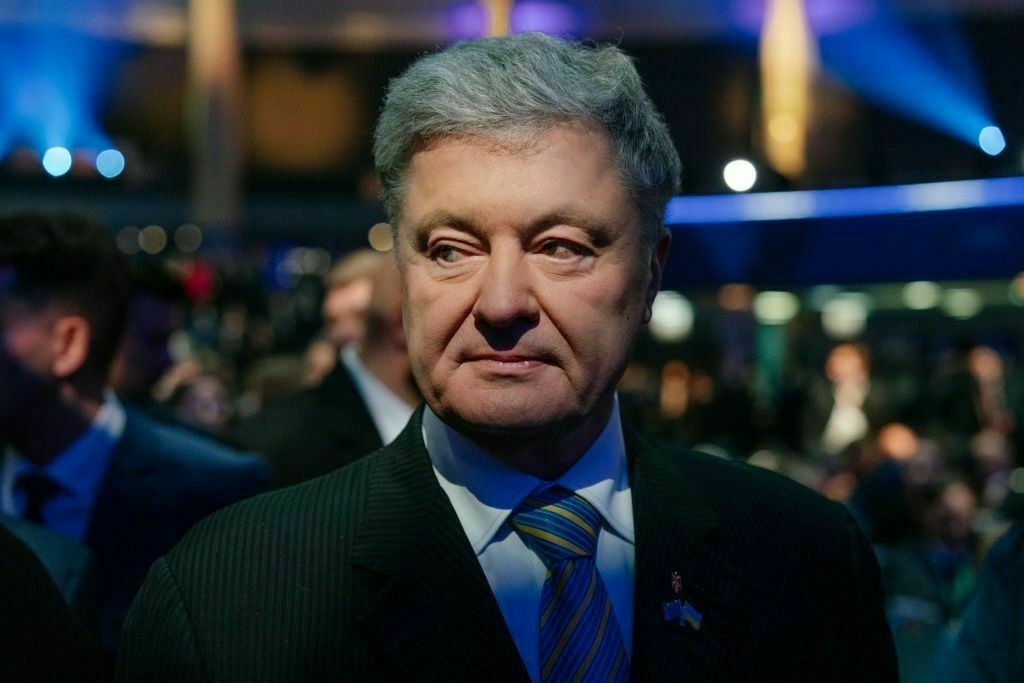
-
'Outright propaganda' — Dutch university to screen 'Russians at War' and host panel with controversial director
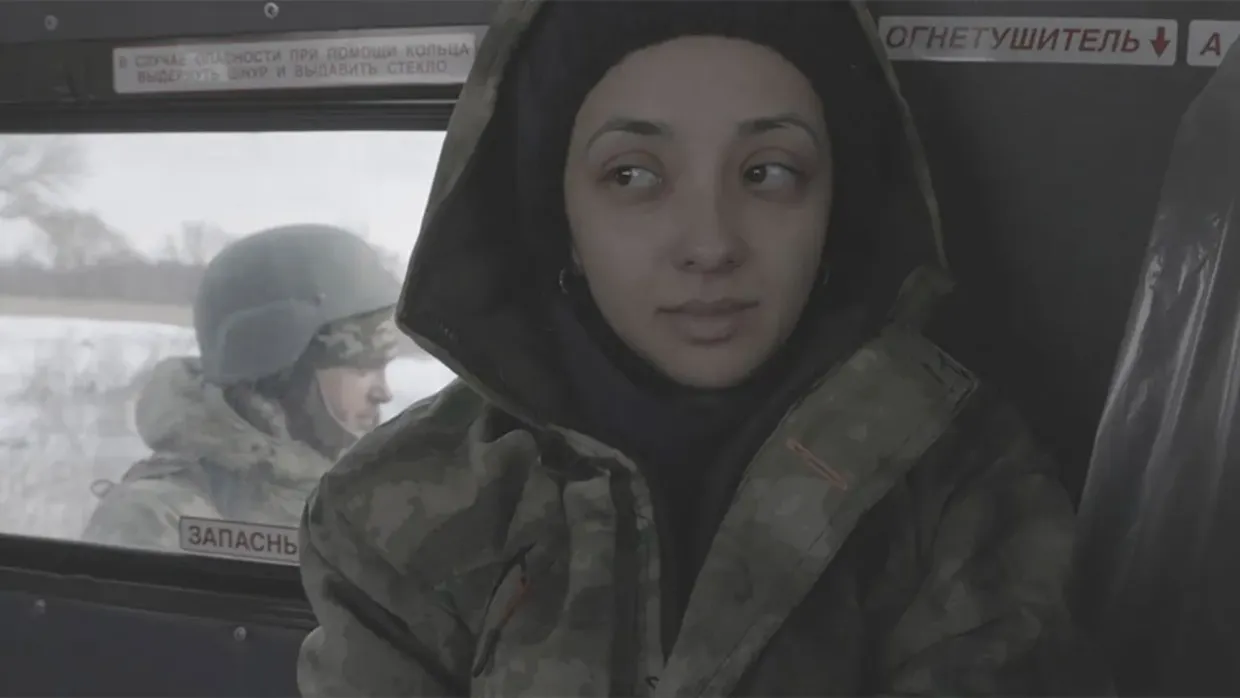
A Dutch university is to screen the controversial documentary “Russians at War” and a panel discussion with its director, despite Ukrainian calls for it be be canceled because it “whitewashes… murder, rape, and torture."
Canadian-Russian director Anastasia Trofimova’s documentary has been criticized for what many perceive as an attempt to whitewash Russian soldiers involved in Russia’s war against Ukraine, sparking protests against its past screenings in Canada and Australia.
Leiden University in the Hague will screen the film on March 26 as part of its Fireside Peace Chats, an initiative of a Leiden University College staff member in collaboration with “several external partners."
It will be followed by a panel discussion with Trofimova and academic staff members.
Ukraine’s Embassy in the Netherlands on March 25 published a statement calling for the screening to be canceled.
It said the film is “whitewashing Russian soldiers and absolving them of responsibility for murder, rape, torture, looting, forced deportation of children, and destruction of Ukrainian cities."
"‘Russians at War’ documentary is a piece of Russian outright propaganda that intentionally distorts the reality of the ongoing genocidal Russian war of aggression against Ukraine, thereby misleading viewers and promoting (the) toxic narratives of (the) Kremlin,” it added.
The Security Service of Ukraine (SBU) in October 2024 began investigating Trofimova, the film’s director, on charges of justifying and recognizing the legitimacy of Russia’s aggression against Ukraine and illegally crossing Ukraine’s internationally recognized borders when filming in the Russian-occupied territories.
Student groups who spoke to the Kyiv Independent also expressed outrage at the screening, saying the film “misrepresents the reality of Russia’s war against Ukraine, downplays Russian war crimes, and silences Ukrainian voices,” and that the event should be canceled.
“We are deeply outraged that Leiden University, a leading academic institution in the Netherlands, is providing a platform (for the film),” Anna Mamedova, a Leiden University alumna, and co-founder of the ABBA Student Association, a group that represents students from Ukraine as well as several Baltic and Eastern European countries.
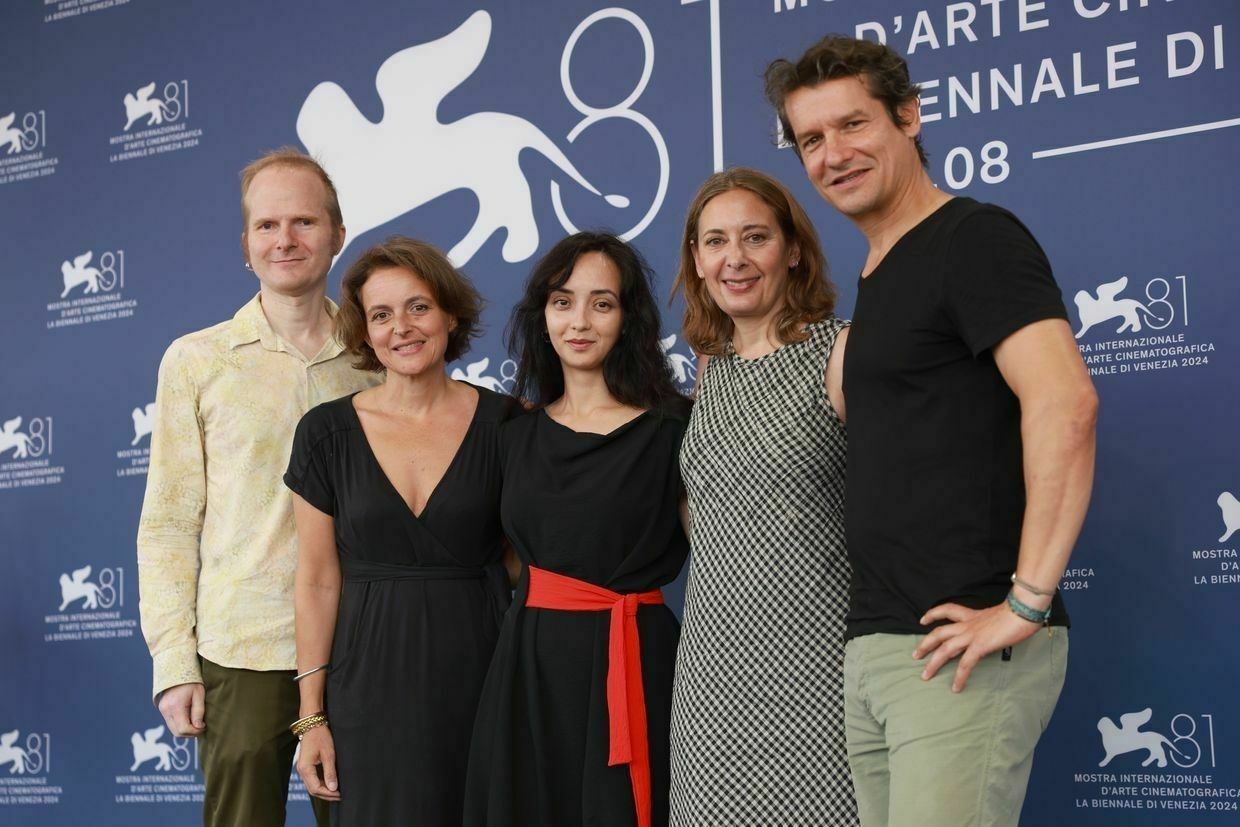
(L-R) Roland Schlimme, Sally Blake, Anastasia Trofimova, Cornelia Principe, and Philippe Levasseur attend the “Russians At War” photocall during the 81st Venice International Film Festival at Palazzo del Casino in Venice, Italy, on Sep. 5, 2024. (Matt Winkelmeyer/Getty Images) Leiden University has so far refused to cancel the event, arguing it is a “a bastion of freedom” and “a fervent advocate of open, critical debate where different opinions and convictions are engaged with.”
“It has chosen to overlook the fact that this film was produced in illegally occupied Ukrainian territories without authorization, violating international law.”
"We choose to engage with extremely difficult topics rather than closing our eyes, in order to better understand humanity and the world. We will provide a critical context to this film, where there is room for debate, discussion, and criticism," the university said on March 25.
Mamedova said the ABBA Organisation had contacted the university expressing its concerns.
"It has chosen to overlook the fact that this film was produced in illegally occupied Ukrainian territories without authorization, violating international law. It is particularly shameful that this occurs in The Hague — the City of Peace and Justice," Mamedova said.
In response, the university acknowledged "the immense suffering" caused by Russian aggression and assured that it takes academic integrity seriously, Mamedova said.
ABBA is organizing a protest in response to the film screening in front of the university building 30 minutes before it starts and a combat casualty care workshop featuring Ukrainian combat medic Anastasia Mutsey, which will also take place at Leiden University at the time the screening begins.
Protests against the film's screening were held in several countries, including Canada and Australia.
Earlier in her career, Trofimova worked for Russia Today (RT), a Kremlin-backed propaganda outlet.
Is ‘Russians at War’ propaganda? We asked 7 people in film who saw itThe documentary “Russians at War” has sparked controversy since its debut on the festival circuit, with many accusing it of whitewashing Russian soldiers and their crimes in Ukraine. Canadian-Russian director Anastasia Trofimova has defended the film, calling it “anti-war.” After facing backlash,…The Kyiv IndependentKate Tsurkan
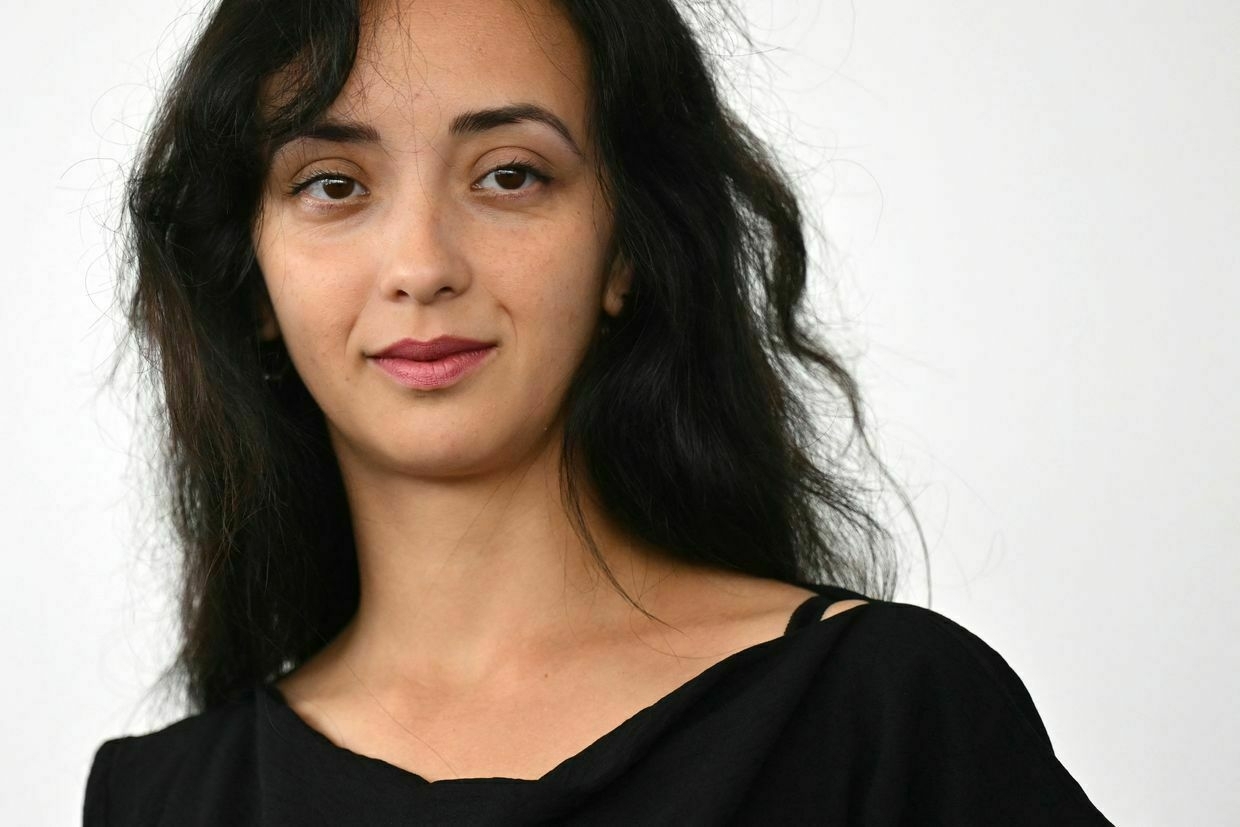
-
Moldova detains regional leader accused of taking money from Russia
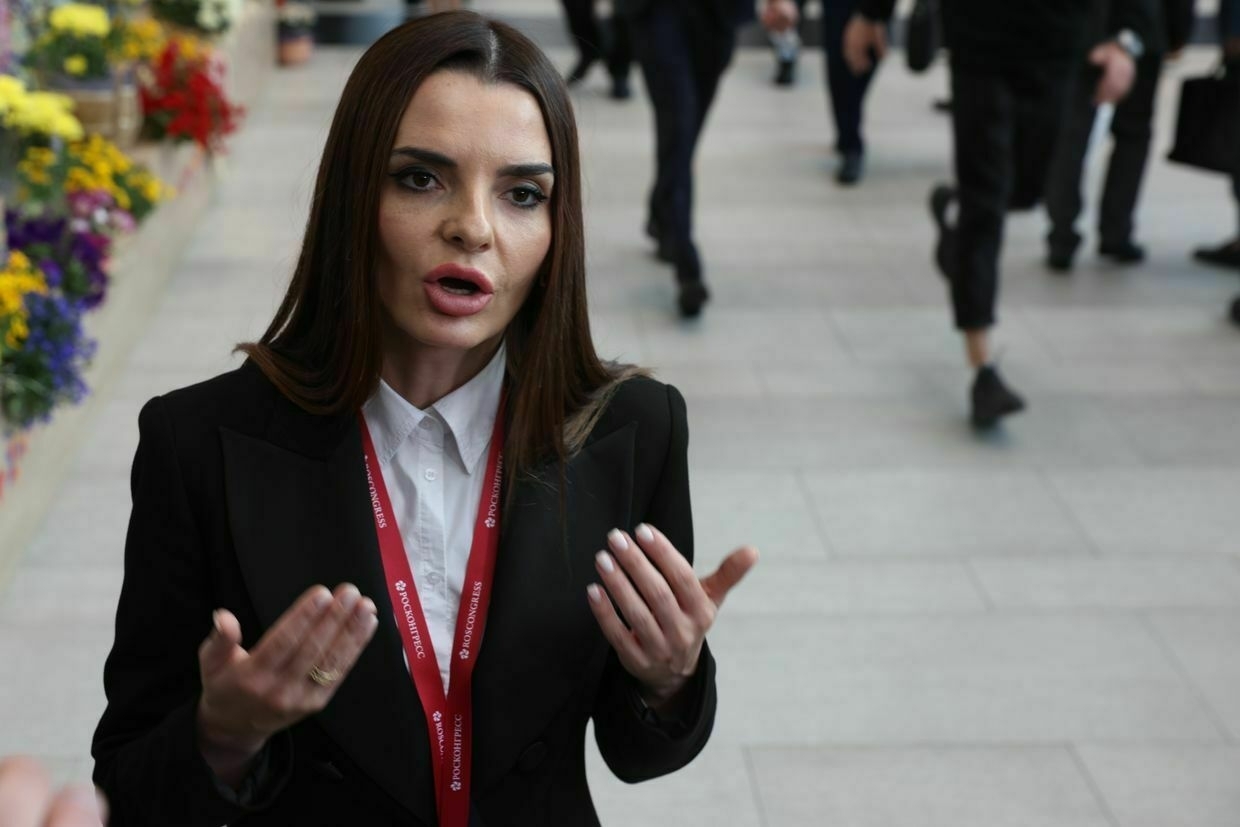
Evghenia Gutul, the head of Moldova’s Gagauzia region, was detained at Chisinau airport on the evening of March 25 while attempting to leave the country, the Moldovan service of Radio Free Europe/Radio Liberty reported.
Gutul is implicated in the illegal financing case of the banned pro-Russian Shor Party. Moldova’s Anti-Corruption Prosecutor’s Office announced that it had completed its evidence collection.
Moldovan authorities allege that she systematically brought funds from Russia into Moldova while serving as the party’s secretary, working with an organized criminal group.
Gutul, elected governor of Gagauzia in July 2023 as a Shor Party candidate, has maintained ties with Moscow. She traveled to Russia in March 2024, where she met with Russian President Vladimir Putin and attended the St. Petersburg International Economic Forum in June.
Investigators also accuse Gutul of helping to organize anti-government protests in Chisinau in the fall of 2022. She denies the charges, calling them politically motivated.
Russia condemned the actions of the Moldovan authorities, accusing Chisinau of disregarding “the principles of political pluralism and democracy,” Kremlin spokesman Dmitry Peskov said. Human rights groups have accused Russia of systematically repressing civil society, political opposition, and free press at home.
The U.S. imposed sanctions on Gutul on June 12, 2023, for her ties to pro-Russian oligarch and politician Ilan Shor, who fled Moldova in 2019 and has been accused of attempting to destabilize the country.
Moldovan President Maia Sandu, a pro-European leader, has refused to approve Gutul as a member of the government, citing accusations of vote-buying.
Gagauzia is an autonomous territory in southern Moldova that partly borders Ukraine’s Odesa Oblast. It has traditionally favored closer relations with Russia while opposing EU integration.
Chisinau has actively countered Russian influence, expelling dozens of Russian diplomats and embassy staff in July 2023 over espionage concerns.
Tensions escalated further after Chisinau said that Russian drones repeatedly violated Moldovan airspace during air raids on Ukraine, with some of the drones crashing on Moldovan territory.
‘There is talk of Nord Stream’ — Lavrov eyes Russia-US energy cooperation“There is talk about Nord Stream. It will probably be interesting if the Americans use their influence on Europe and force it not to give up Russian gas,” Russian Foreign Minister Sergei Lavrov said.The Kyiv IndependentTim Zadorozhnyy
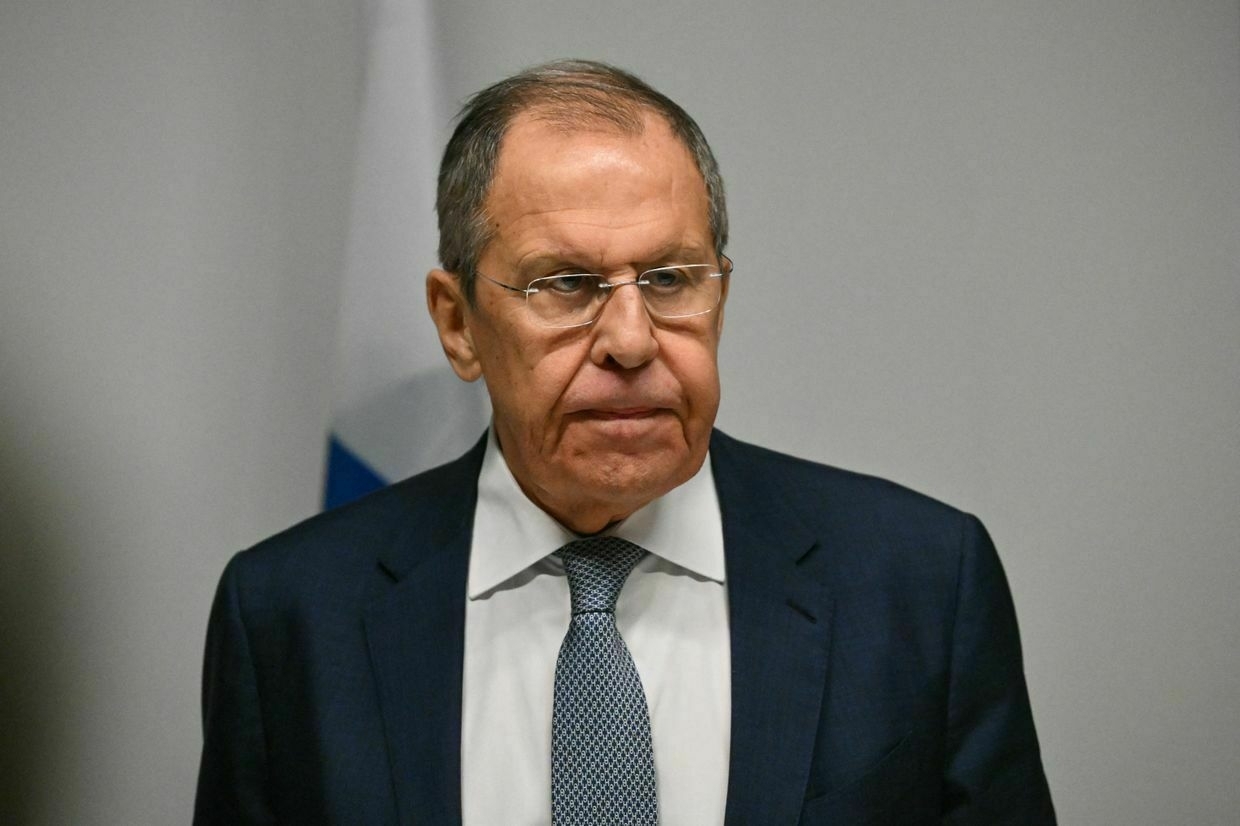
-
Lukashenko 'inaugurated' after extending his rule in 'sham' elections
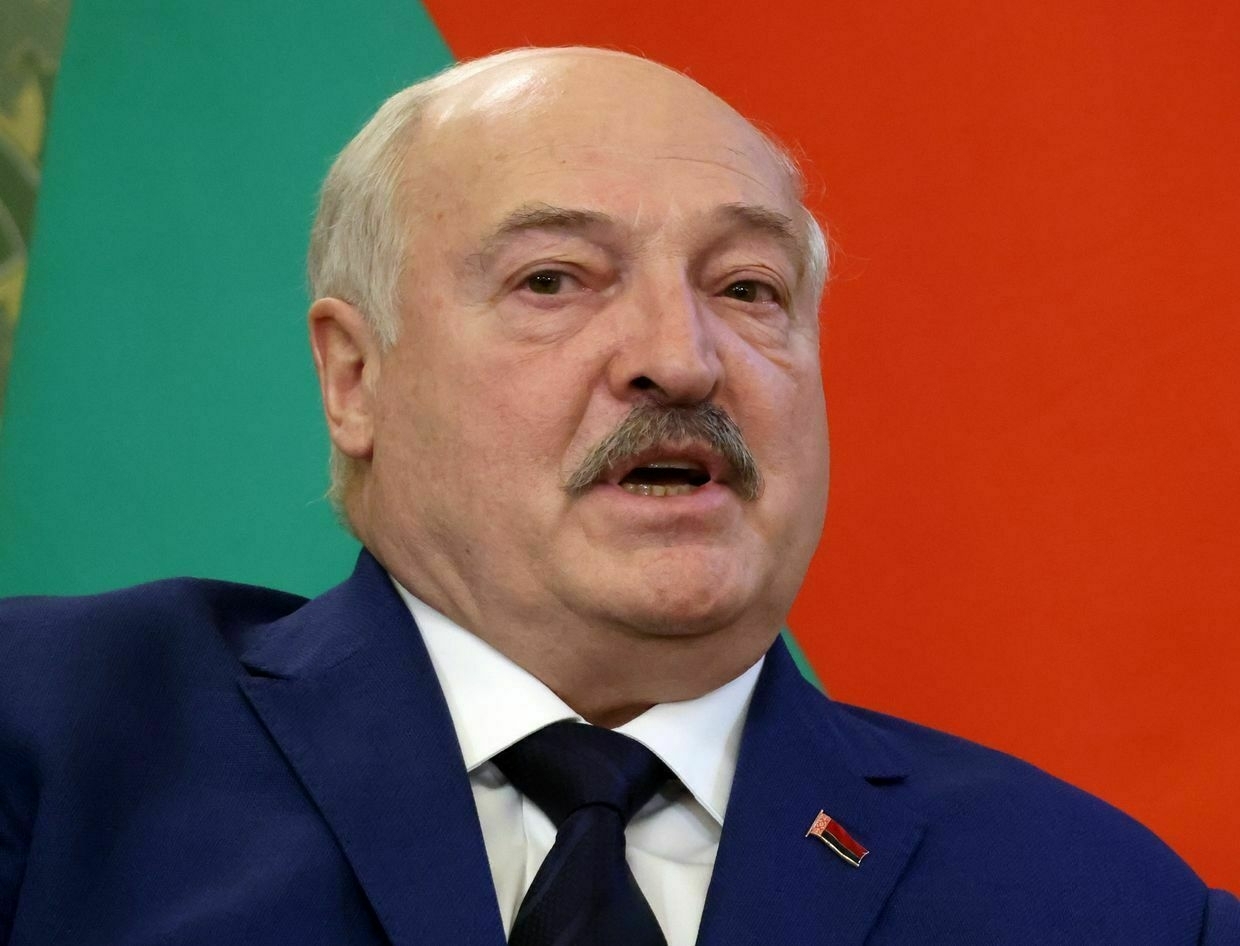
Belarusian dictator Alexander Lukashenko began his seventh term in power on March 25 after declaring himself the winner of the January elections broadly seen as neither fair nor free.
In his inauguration address at the Independence Palace in Minsk, Lukashenko said that Belarus “has its own standards for holding elections, which can become an international benchmark."
The Belarusian Election Commission claimed that Lukashenko “won” 86.82% of the vote on Jan. 26, followed by regime-approved and little-known candidates like Sergey Syrankov with 3.21% or Oleg Gaidukevich with 2.02%.
In power since 1994, Lukashenko’s dictatorial rule has been marked by a harsh crackdown on political opposition, free media, and civil society.
In his speech, the dictator claimed that Belarus ensures everyone’s opportunity to express their opinion but “will not allow freedom of speech to be used as a club to destroy our own country."
A day before the inauguration, 10 Belarusian human rights groups denounced the January presidential elections and Lukashenko’s continued hold on power.
The latest vote was “held in a deep human rights crisis, in an atmosphere of total fear caused by repressions against civil society, independent media, the opposition, and all dissenters,” the statement read.
In 2020, Lukashenko also declared himself the winner despite independent pollsters saying that his opponent, independent candidate Sviatlana Tsikhanouskaya, won the most votes. The election fraud sparked mass protests, which were followed by a violent crackdown and mass arrests.
Lukashenko has been a key ally of Russian President Vladimir Putin during Russia’s full-scale invasion of Ukraine, allowing Moscow’s forces to use Belarus as a launching ground for the invasion of Kyiv and missile attacks in 2022.
Belarus Weekly: Lukashenko signs security treaty, pulling Belarus further into Russia’s orbitBelarus dictator Alexander Lukashenko visits Moscow, enacting a security treaty and signing a range of agreements that pull Belarus further into Russia’s orbit. U.S. President Donald Trump slashes RFE/RL funding in another blow to Belarusian media in exile. Latvia restricts movement at last open b…The Kyiv IndependentMaria Yeryoma
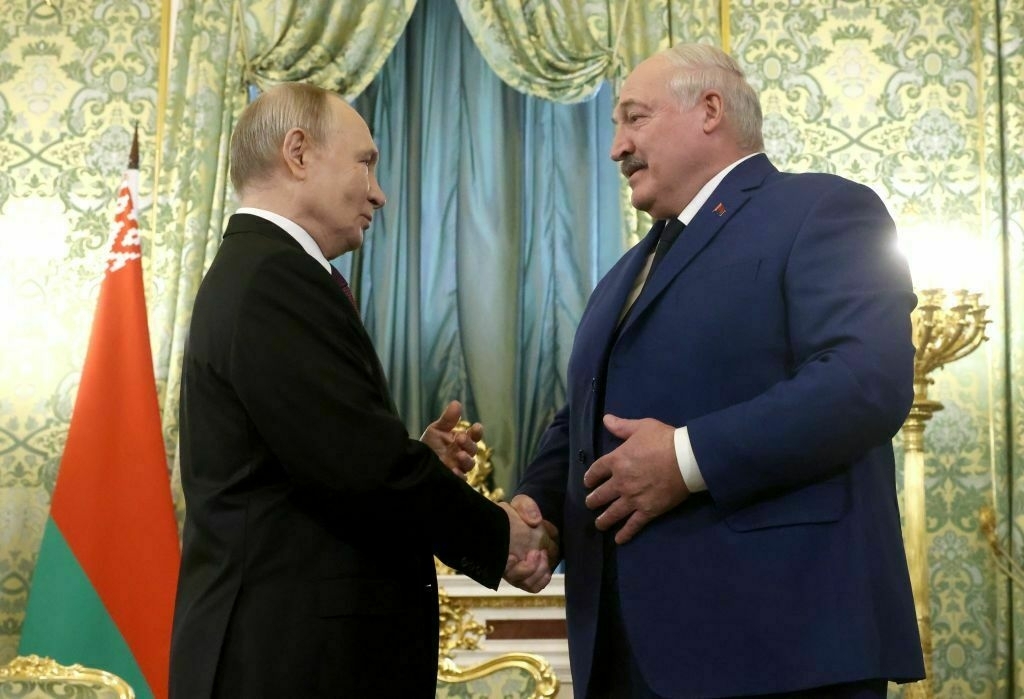
-
Fico Faces Unstoppable Protests: Slovaks Rally Against His Betrayal!
-
Who is Sergey Beseda, Russian spy handler leading talks with US?
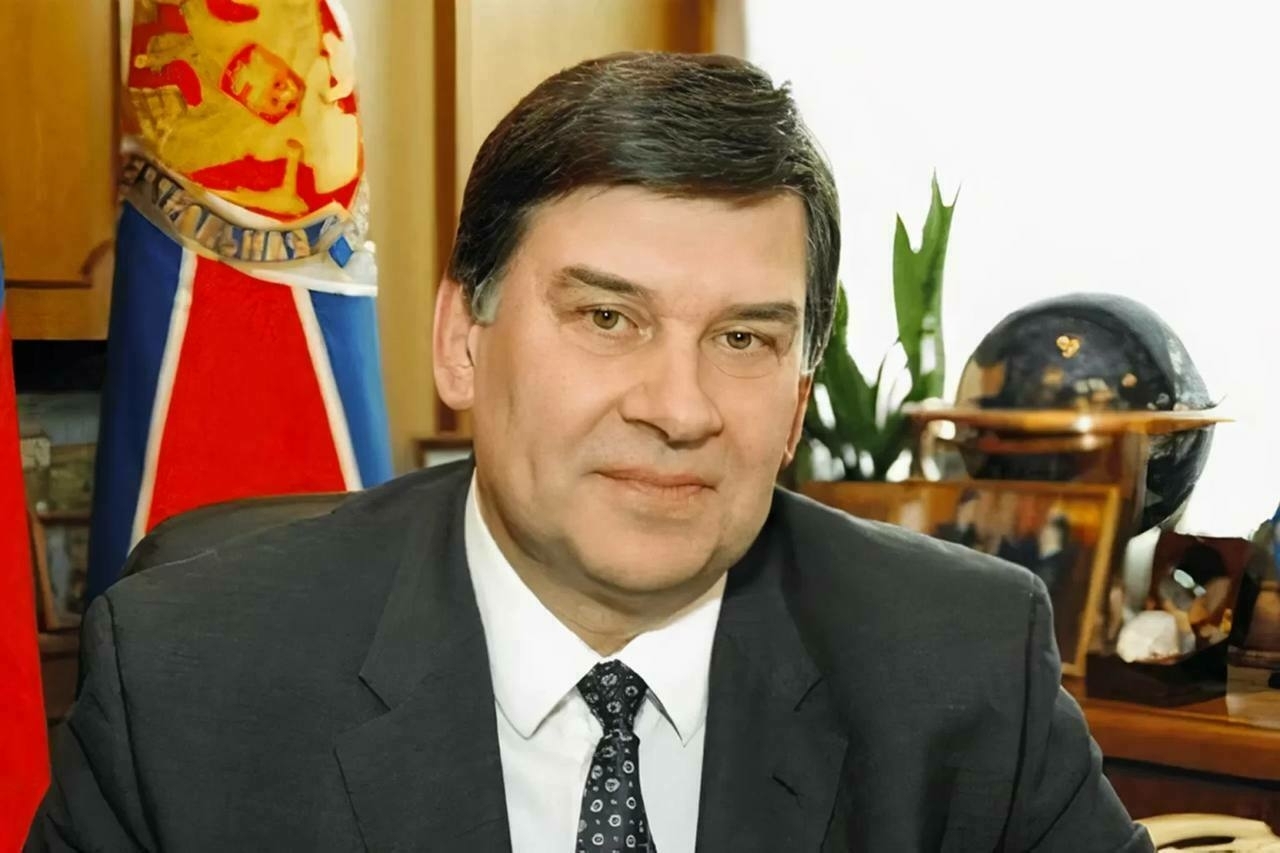
Sergey Beseda, former head of the 5th Service of Russia’s Federal Security Service (FSB), was an unconventional choice to represent his country in the talks with the U.S. in Saudi Arabia on March 24.
Seventy-year-old General Beseda, however, has been deeply involved in Russia’s all-out war against Ukraine from the very beginning.
He is thought to have played one of the key roles in keeping Russian President Vladimir Putin informed about the situation in Ukraine ahead of the full-scale invasion.
Based on the intelligence provided by the 5th Service, the Russian authorities were confident that the Russian army would not meet serious resistance in Ukraine, the Russian investigative outlet IStories reported early in the all-out war.
The data provided by Beseda’s 5th Service turned out to be inaccurate in many ways.
Soon after, Beseda allegedly faced backlash but wasn’t written off. Last summer, he resigned from his post and now serves as an advisor to FSB Head Aleksandr Bortnikov.
The Russian delegation is also spearheaded by Grigory Karasin, 75, a Russian senator and career diplomat who is a staunch supporter of Moscow’s all-out war against Ukraine.
Both officials are under Western sanctions.
The talks in Riyadh have reportedly focused on Washington’s push for a possible ceasefire, including one at sea.
Ukraine’s Military Intelligence Chief Kyrylo Budanov described Beseda as “a very problematic person for Ukraine.”
When asked who among Russian generals is the most dangerous for the country, Budanov was undecided but said that Beseda “has always brought problems to Ukraine.”
“He is a very problematic person. He has done a lot of evil for Ukraine. It is fine, time will sort everything out,” Budanov said in an interview with Ukrainska Pravda in the fall of 2023.
What were the Minsk Agreements and why did they fail to bring peace in Ukraine?Ten years after Kyiv and Moscow first negotiated a ceasefire to end the fighting in Ukraine’s east, the two sides may once again find themselves around the negotiating table to reach a truce on the battlefield. This time around, Kyiv insists that any ceasefire alone will not be enoughThe Kyiv IndependentKateryna Hodunova
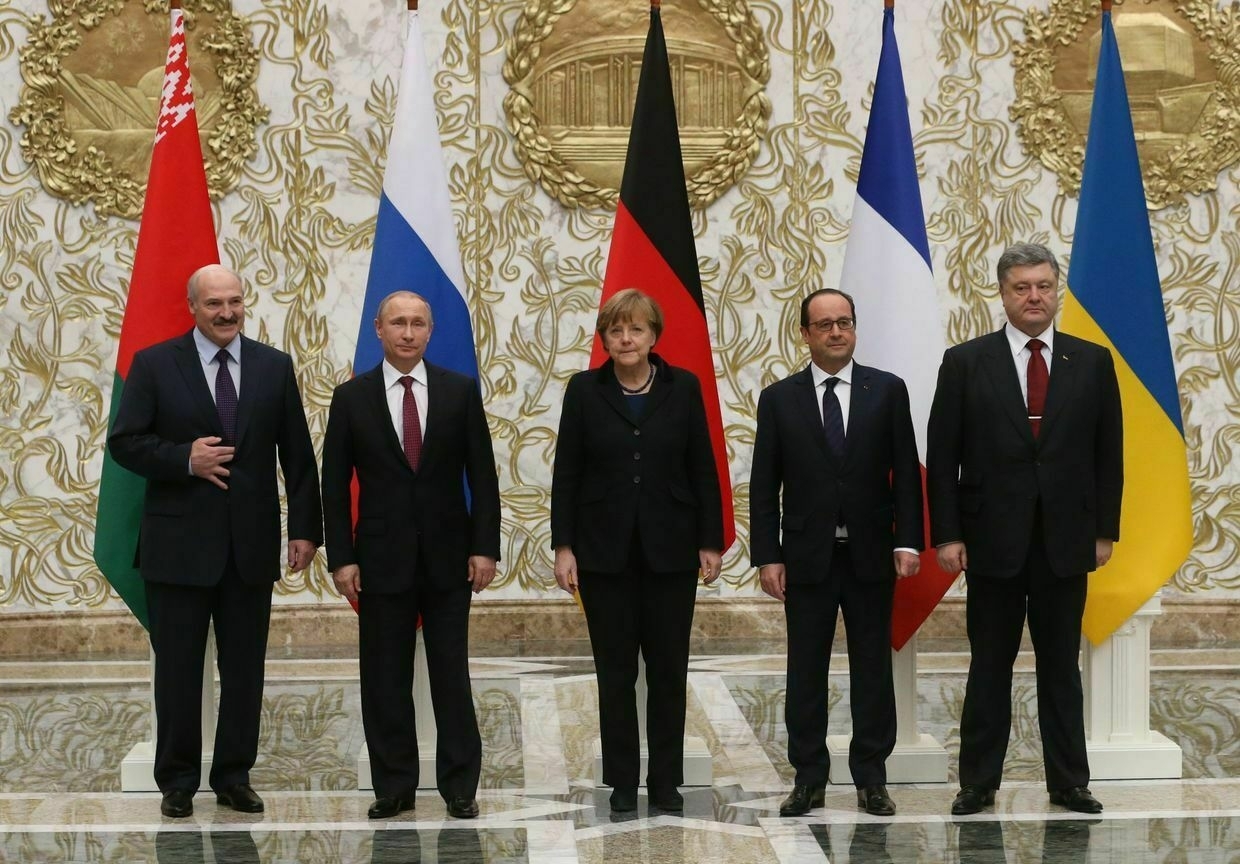
Who’s Sergey Beseda?Beseda has been a career intelligence officer for most of his life, beginning his work in the FSB predecessor — Soviet KGB.
He led the 5th Service for 15 years, taking office in 2009 and being ousted in 2024.
Beseda’s name made headlines in 2014. He was present in Kyiv from Feb. 20 to 21, during the bloodiest days of the EuroMaidan Revolution. Between Feb. 18 and 20, around 100 protestors were gunned down, and hundreds were injured by law enforcement loyal to pro-Russian President Viktor Yanukovych.
Valentyn Nalyvaichenko, the former head of the Security Service of Ukraine (SBU), said that Beseda was based at the SBU training ground.
“Russia’s military involvement essentially started not in Crimea, but with the events on Maidan (Independence Square), by the interference of Russian generals in the events in Ukraine,” Nalyvaichenko said.
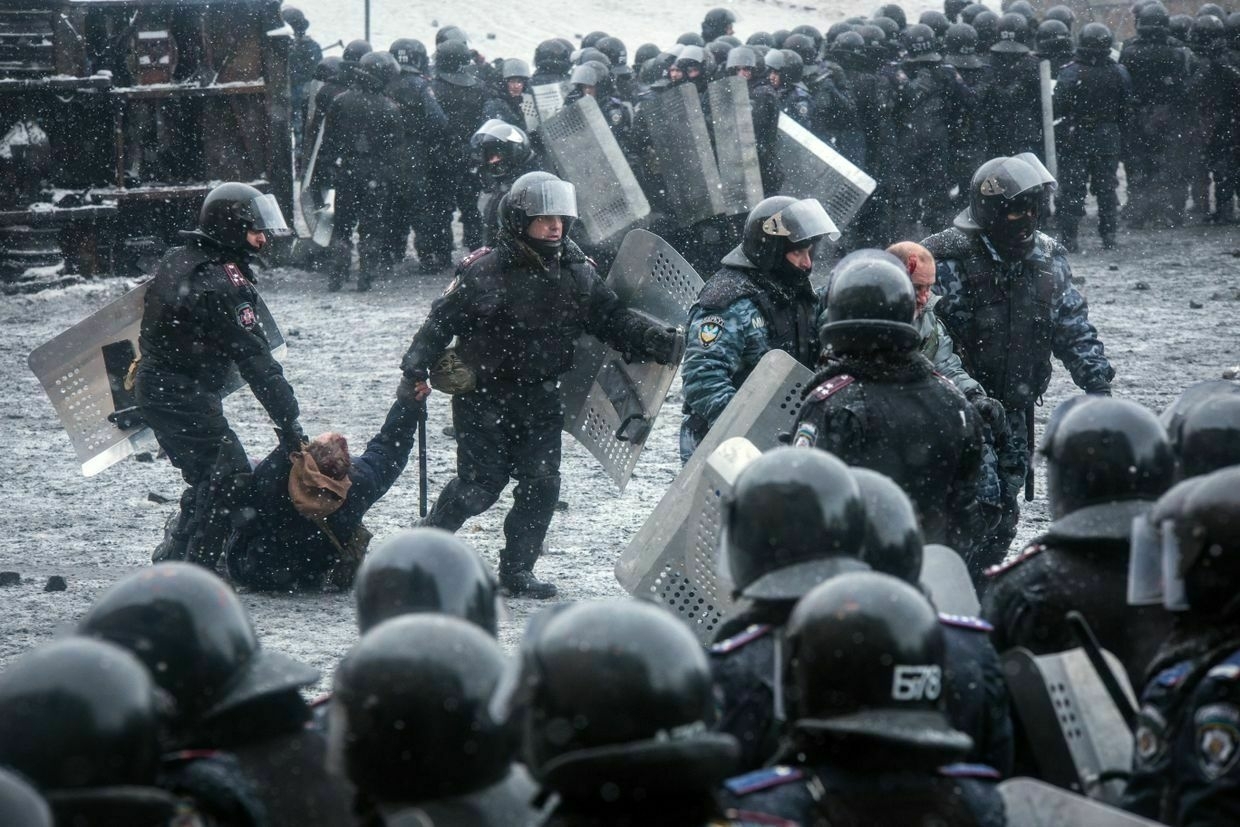
Riot police arrest protesters during clashes in the central of Kyiv, Ukraine, on Jan. 22, 2014. (Oleksandr Ratushniak / AFP via Getty Images) According to Nalyvaichenko, Beseda was commanding Ukraine’s law enforcement during their attack on protestors.
Facing outrage in Ukraine, the FSB admitted in 2014 that Beseda was in Kyiv during the revolution, claiming that he was sent to determine the “level of protection” of the Russian Embassy in Ukraine and “other Russian institutions” in the city.
Last year, Ukraine’s Prosecutor General’s Office concluded that the murders were carried out by Ukrainian law enforcement officers under the orders of Ukrainian authorities and Russia’s guidance.
Ukraine’s State Bureau of Investigation charged FSB’s Chief Bortnikov and other 20 top officials of Russian special services with the obstruction of protests during the revolution.
In his memoir, former U.S. Ambassador to Moscow John Sullivan wrote that Beseda was also involved in talks on a prisoner exchange between the U.S. and Russia in 2021.
In charge of UkraineFSB’s 5th Service, led by Beseda for years, is officially in charge of the agency’s relations with foreign partners and gathering information in former Soviet republics, including Ukraine.
The Washington Post (WP), citing its sources, reported in 2022 that the FSB “has spent decades spying on Ukraine,” trying to infiltrate its institutions, bribing officials, and preventing any shift towards the West.
There were reports that Beseda had been arrested after the failed swift conquest of Ukraine, but Moscow did not officially confirm this information. Russian journalist Andrey Soldatov claimed that he was charged with embezzling funds allocated for subversion in Ukraine.
According to Budanov, Beseda was “suspended” from his duties for some time but was soon back on track.
Budanov said that as of the fall of 2023, the FSB general was actively involved in operations against Ukraine.
“He continues to work and is a very serious enemy of our state,” he said.
After the first round of the U.S.-Russia talks, the Washington Post outlined a draft document prepared by a Moscow think tank that worked closely with the 5th Service.
The document reportedly laid out Russia’s maximalist demands for ending the war, including a buffer zone in northeastern Ukraine along the borders with Bryansk and Belgorod oblasts and a demilitarized zone in southern Ukraine.
The document, drafted in February, further calls for “the complete dismantling” of Ukraine’s current government and says that peace is unlikely before 2026.
It is unclear what — if any — role this document plays in the Kremlin’s decision-making.
‘They are Russian-speaking, and there have been referendums,’ — Witkoff parrots Russian propaganda, legitimizing Putin’s claims in UkraineU.S. special envoy to the Middle East, Steve Witkoff, who recently emerged as a leading figure in negotiations regarding Russia and Ukraine, revealed insights into ongoing ceasefire talks between Moscow and Washington. In an interview on March 21 with American far-right political commentator Tucker…The Kyiv IndependentNatalia Yermak
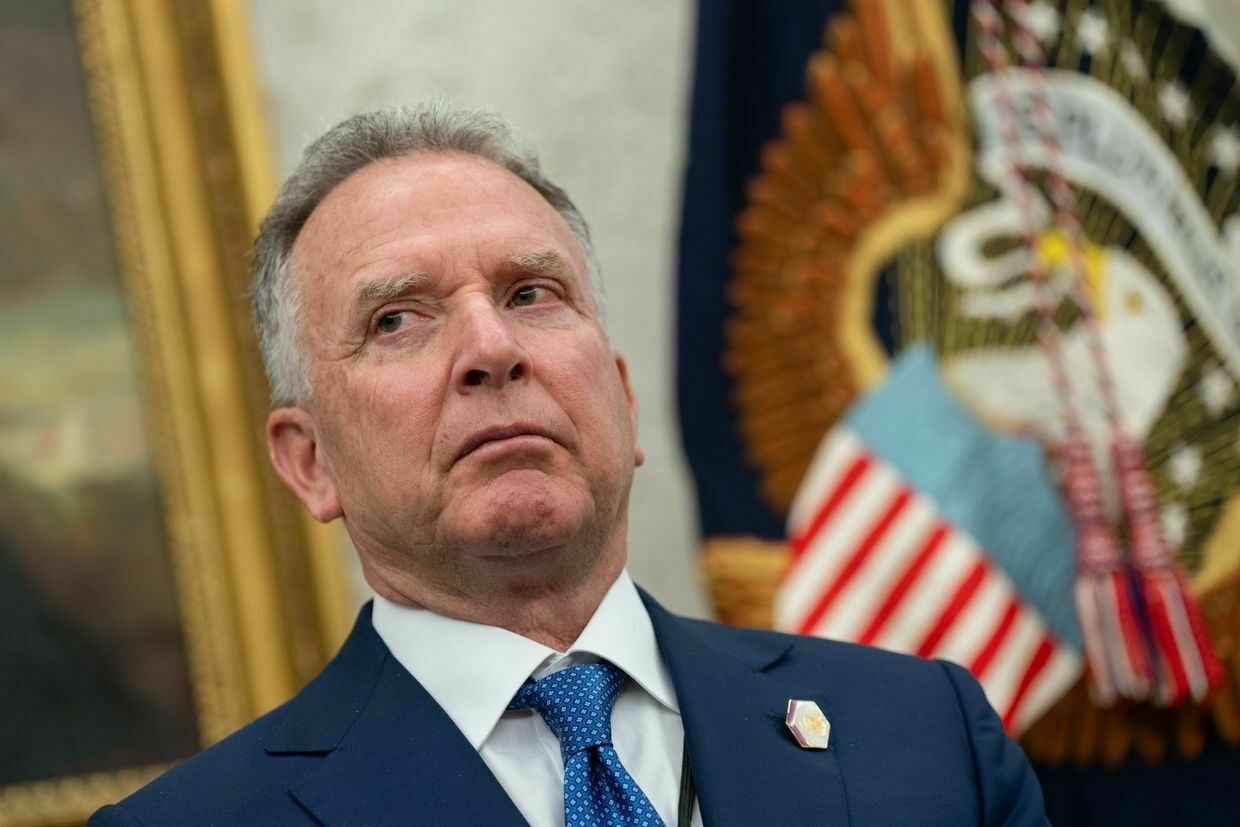
-
Russian technical team at Saudi Arabia negotiations led by chief ideologue of Ukraine invasion
Technical negotiations between the U.S. and Russia to establish a ceasefire in Ukraine are ongoing in Saudi Arabia today. Reports suggest that parties will discuss a 30-day truce, not just in the energy sector but also in the Black Sea, which is expected to pave the way for the resumption of shipping route.
What has particularly drawn experts' and media's interest is the appointment of Sergei Beseda as the head of the Russian negotiation team. Beseda, the former head of the Fifth Service of the Federal Security Service, continues to serve as an advisor to the director of the FSB. In essence, Beseda is a chief ideologue of Russia's full-scale invasion of Ukraine. His department compiled analytical reports that gave Vladimir Putin the confidence that Kyiv could be occupied within three days, Russian soldiers would be welcomed with flowers, and President Volodymyr Zelensky would either be killed, flee, or live in exile. "The feeling that their path would be strewn with flowers was the FSB's assessment," a Western security official told The Washington Post.
They were so sure they would soon control Kyiv's government that they spent the last days before the war setting up safe houses for their operatives in the city.
According to The Washington Post, for decades, the Fifth Service spied in Ukraine, aiming to dominate governmental institutions, bribe officials, and prevent Ukraine's closer alignment with the West. After the initial days of the invasion, the service's leadership fell out of grace: Beseda and his deputies were placed under house arrest.
There were even reports of his detention in Lefortovo prison. The reasons cited were misappropriation of funds for operations in Ukraine and failed intelligence work.
Despite rumors of Beseda's dismissal, pro-Kremlin outlets maintained that he continued in his role, participating in various events. Thus, Kremlin advisor Yuri Ushakov's comment confirming Beseda's presence at talks indirectly marked the first acknowledgment of his removal from the Fifth Service, which he led since 2009, purportedly due to reaching the service's age limit of 70, and reassignment as a consultant to FSB Director Alexander Bortnikov. Russian media speculate this role change may indicate that Putin still trusts him. It's also noted that in February 2014, during the Maidan protests in Kyiv, Beseda met with the fugitive President Viktor Yanukovych and, since July of that year, has faced sanctions from the U.S., EU, Canada, UK, Australia, Switzerland, and Ukraine. In October 2023, Ukraine's military intelligence chief Kyrylo Budanov described Beseda as a "very problematic figure" for Ukraine.
-
Many Russian Helicopters Destroyed. Talks in Ryadh. Many People Arrested During Protests in Turkey
-
Istanbul police assault Russia's RT correspondent, cameraman during protest coverage, outlet claims
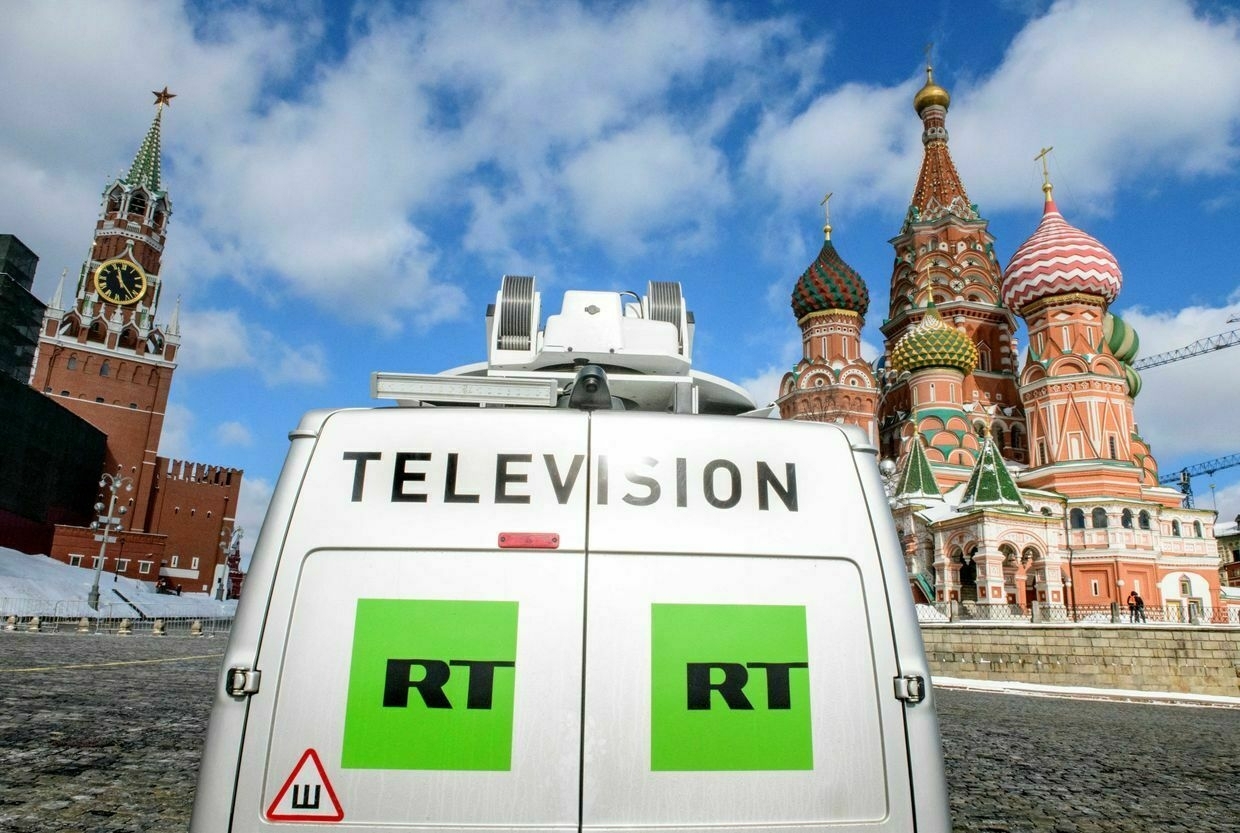
Istanbul police assaulted Russia Today (RT) correspondent Yasin Eken and his cameraman while they were covering protests in the city, the Russian state-run outlet claimed on March 24.
“They were hit with batons, also had their RT signs ripped off, had their gas masks smashed, then tear gas was sprayed in their direction,” the outlet’s Telegram channel claimed, publishing footage of the incident.
RT is widely regarded as a key propaganda tool of the Russian government, spreading disinformation and pro-Kremlin narratives under the guise of independent journalism.
Many countries have restricted or banned RT due to its role in justifying Moscow’s aggression and manipulating global audiences.
The incident occurred amid large-scale protests in Istanbul following the arrest of Mayor Ekrem Imamoglu, a prominent opposition figure and potential presidential candidate.
Imamoglu faces charges of corruption and alleged links to terrorist organizations, accusations he and his supporters claim are politically motivated.
His detention has triggered widespread demonstrations across Turkey, with thousands defying government bans to protest in Istanbul and other cities.
US-Russia talks begin in Saudi Arabia, Russian media reportsThe meeting, which comes only a day after talks between the U.S. and Ukraine, is expected to focus on a possible ceasefire in the Black Sea and a broader truce.The Kyiv IndependentMartin Fornusek
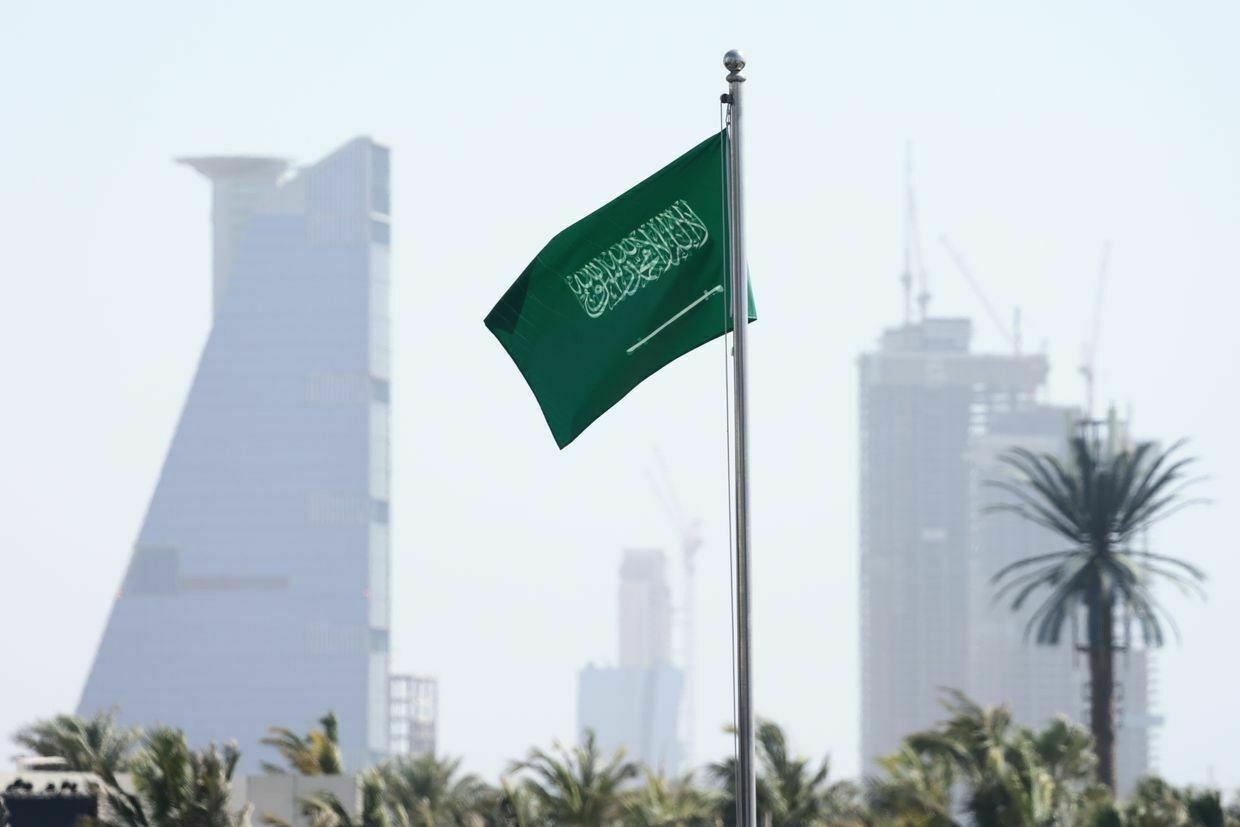
-
Ukraine’s HIV patients face crisis: Trump aid halt
Editor’s Note: The Counteroffensive exists to explore the human side of war – going beyond headlines to show how real people experience it.
We cover Ukraine not just as a battlefield but as a country with a rich culture, history, and traditions. Want to support this unique coverage? Upgrade today!

Valeriia Rachynska has been living with HIV for the last 15 years of her life. Photo: Valeriia Rachynska Valeriia feels the familiar tendrils of fear through her body as she walks into the hospital for her routine checkup.
Her HIV diagnosis is no longer a death sentence – one jar of pills means another month of life-saving medication. But today, the doctor slid just three blister packs across the counter instead of the usual six jars.
Stocks are dwindling. No one can tell her when, or if, more will come.
About 120,000 HIV-positive people are facing the same crisis across Ukraine. Since Trump took office in January, he has cut American foreign aid, which was key for Ukraine to obtain supplies for HIV treatment.
The Wall Street Journal reported that the U.S. government is also considering cutting domestic HIV prevention programs, which threatens to undo twenty years of efforts to fight the virus.
It's not just about aid - it's about a global health crisis caused by politics. Without prevention and treatment, new infections will increase, people will die, and the impact will be felt far beyond Ukraine, demonstrating how decisions in Washington can jeopardize public health around the world.
“Every time I go to bed, I am grateful I have these pills. Thanks to them, I have lived today and will live tomorrow. And usually, I know that I will live another six months or a year of my life, so I have medicine. But now it's only three months. And it scares me,” Valeriia said.
Valeriia Rachynska, 48, has been living with HIV for 15 years. She discovered it when a doctor suggested she and her husband take an HIV test amid a months-long illness of her husband that had remained undiagnosed for several months.
Both tests were positive.
HIV cannot be cured, but it is possible to reduce the viral load in the body so as to effectively eliminate the chances for transmission and minimize any symptoms. With a carefully planned cocktail of drugs, an HIV-positive patient can contain the condition.
As of this year, there were 336.1 HIV-positive patients per 100,000 people in Ukraine. Meanwhile in the United States, this figure is 388 per 100,000 in 2022.
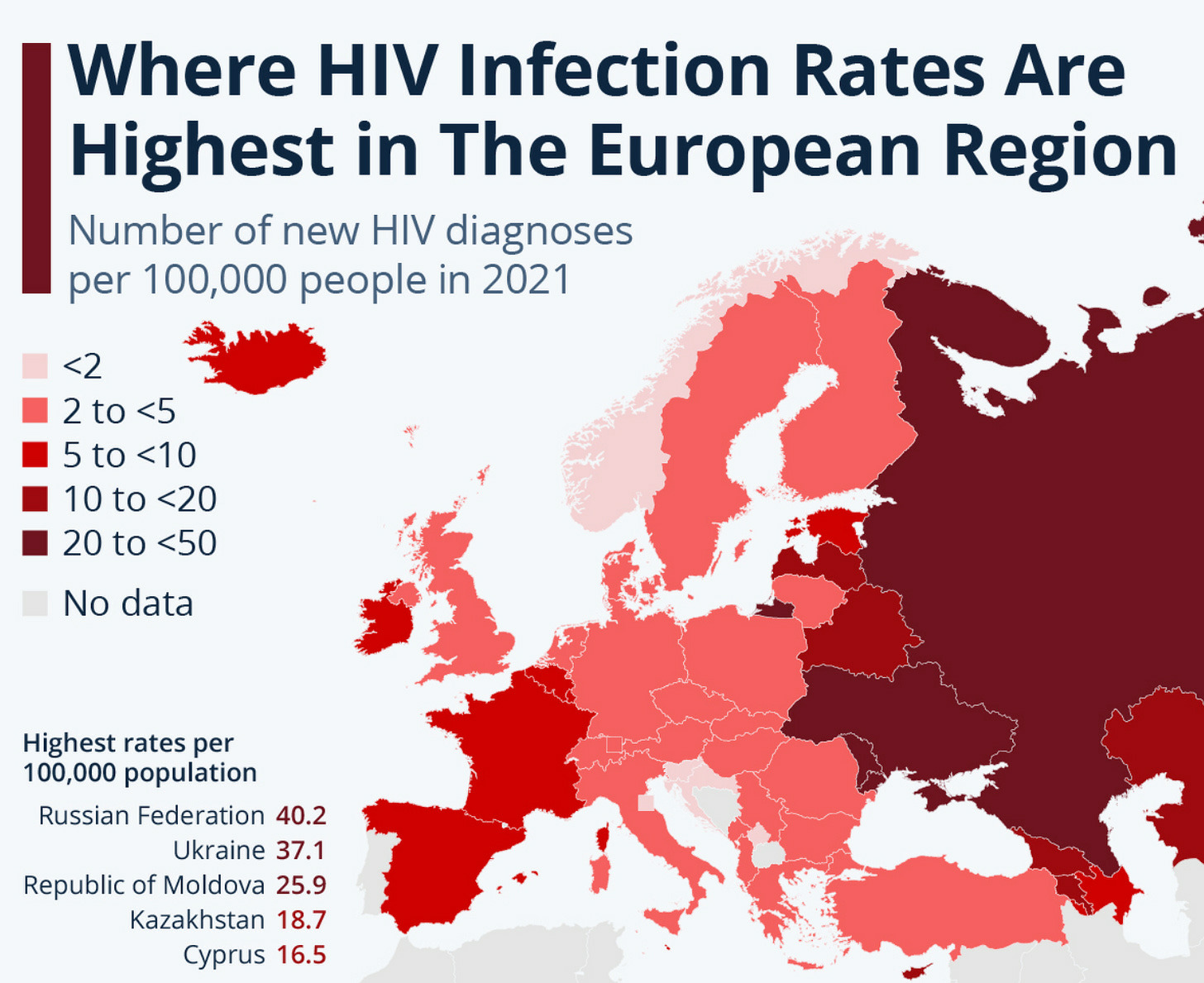
Source: European Center for Disease Prevention and Control, WHO and Statista. For the past decades, international NGOs have been sending supplies to treat HIV to Ukraine, as Kyiv’s economy does not have the capacity to produce its own. A few years before Russia’s full-scale invasion, Ukraine’s government assigned a portion of its state budget to begin producing the medicine locally.
However, following Russia’s attack in 2022, NGOs considered it too risky to continue sending supplies to Ukraine.
There was a risk that about 120,000 HIV-positive Ukrainians would be left without medication at the beginning of the full-scale invasion, Yevheniia Rudenka, head of procurement at the ‘100% Life’ charity organization, said.
Suppliers did not want to risk going to Ukraine, she added.
“Back then [in 2022], at the most critical moments, they [doctors] would only give us medicine for a month. I know there were cases when doctors were forced to give out medicines for only two weeks because if they gave them for a month, someone would not have them tomorrow,” Valeriia said.
Through USAID, the United States stepped up its efforts to provide treatment in Ukraine, Rudenka said.
“The situation was critical then, but the United States came to the rescue,” Yevheniia said. “And thanks to this, this catastrophic pause did not happen in 2022. The support also continued in 2023 and 2024,” she said.

People hold empty packages of medications as they are lined up in a symbolic queue for HIV treatment during a protest outside the Cabinet of Ministers in Kyiv on July 1, 2015. Photo credit: SERGEI SUPINSKY/AFP via Getty Images When Valeriia was diagnosed with HIV, Ukraine was forced to ration its antiretroviral medications due to a lack of ability. Supplies were prioritized for those in a more advanced and critical stage.
Doctors monitor a patient's CD4 cell counts, which show how healthy your immune system is. Since Valeria's count was within the normal range at the beginning of her diagnosis, she was not provided any medication.
Yet, at the end of 2010, the year she was diagnosed with HIV, her CD4 count dropped sharply to just 147. Healthy adults will have a measurement anywhere from 500 to 1,500.
She should have started treatment immediately after being diagnosed with the condition, she said.
“It was clear that I should have started treatment even before the tests. I felt sick all the time and lost 10% of my weight. I also had herpes that wouldn't go away and several other problems. It seemed to be nothing serious, but I was sick all over,” Valeriia said.
After her CD4 count dropped, Valeriia began treatment, taking five pills in the morning and six in the evening. In two months, her symptoms had disappeared. As the years went by, HIV treatment became more sophisticated, requiring patients to only need one pill a day to contain the symptoms.
Yet, treatment is only effective if it's not interrupted, and medications are taken consistently.
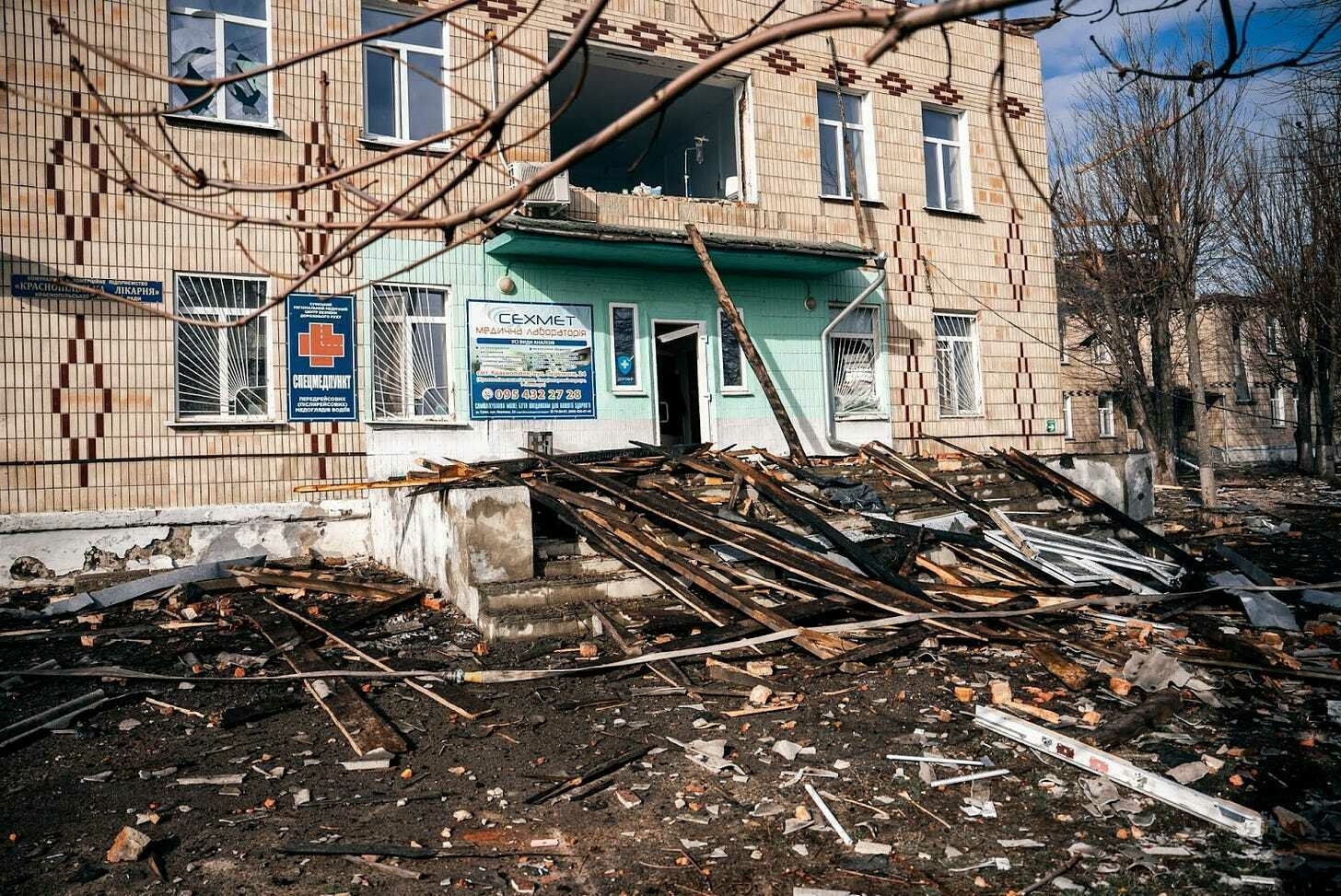
A view of a destroyed hospital building after a Russian drone attack on March 19, 2025, in Krasnopillia, Sumy Oblast. A view of a destroyed hospital building after a Russian drone attack on March 19, 2025, in Krasnopillia, Sumy Oblast, Ukraine. In January, Trump decided to suspend all international support for 90 days. The American government was expected to deliver $20 million worth of medicine to Ukraine in 2025, Yevheniia said.
“Currently, deliveries of 16 million [dollars] worth of goods have been suspended, and the remaining four million are in the process of delivery,” Yevheniia added.
The World Health Organization said this month that Trump’s decision to pause U.S. foreign aid will also affect HIV treatments in Haiti, Kenya, Lesotho, South Sudan, Burkina Faso, Mali, and Nigeria.
At the moment, HIV patients in Ukraine can use any of the 21 available HIV medications. Kyiv has stock for most of them for just six months, Yevheniia said.
If Ukrainians do not find alternative funding sources to resume supplies, the situation could become critical for well over 100,000, experts warn.
“People who make such decisions must realize their full responsibility. This may not just let the epidemic that we have been fighting for the last 20 years get out of control. It can lead to death. And this is not an empty word. Specific people will die, some very quickly, and some very slowly,” Valeriia said.
Now, Valeriia is hoping the crisis will be solved before the fall, and that she will be able to receive her usual six jars of pills the next time she goes to the doctor.
“I used to know I had another six months or a year to live, but now I realize that my life is limited to three months,” Valeriia said.
NEWS OF THE DAY:
Good morning to readers; Kyiv remains in Ukrainian hands.
UKRAINE MAY HOLD PRESIDENTIAL ELECTIONS: A decision regarding elections in Ukraine has already allegedly been made, and they will take place, U.S. Special Representative Steve Witkoff said in an interview with Tucker Carlson. He emphasized that Russia does not recognize Zelenskyy as the legitimate president, which is why the Kremlin "can't sign any kind of treaty with him." According to the Constitution of Ukraine, any elections are not lawful during martial law.
Meanwhile, Witkoff stated that he does not consider Putin to be a "bad person." During his second visit to Russia, Putin allegedly ordered a portrait of Trump from a leading Russian artist and asked to have it delivered to him.
"He [Putin] told me a story, Tucker, about how when the president [Trump] was shot, he went to his local church, met with his priest, and prayed for the president—not because he could become the president of the United States, but because he has a friendship with him and he was praying for his friend," Witkoff recounted.
VOA SUES TRUMP: Journalists from Voice of America and their unions have filed a lawsuit against the Trump administration, Reuters reported. They claim that the closure of news agencies violates the Constitution, infringing workers' right to freedom of speech.
Voice of America became the latest victim of the Trump administration’s large-scale campaign to reduce the federal government, which allegedly spends taxpayer money in ways that do not align with U.S. interests. As a result, a week ago, agency employees were sent on administrative leave. This could mean the de facto closure of Voice of America.
RUSSIA MAY RETURN TO THE OLYMPIC GAMES: The International Olympic Committee is considering allowing Russians back into the Olympic Games, according to a newly elected IOC President, Kirsty Coventry, in an interview with Sky News. She is against banning athletes from participating in competitions due to conflicts.
Russian and Belarusian athletes participated in the 2024 Summer Olympic Games in Paris despite Ukraine's protests. However, they competed under a neutral flag, and their participation was individual, not representing their countries.
CAT OF CONFLICT
Today's cat of conflict is Simba, who took over Mariana's workspace for a peaceful lunch nap, preventing her from working on her next story for The Counteroffensive.
Stay safe out there.
Best,
Mariana -
Who is behind pro-Russian ‘Stop Zelensky’ demonstrations in Europe?
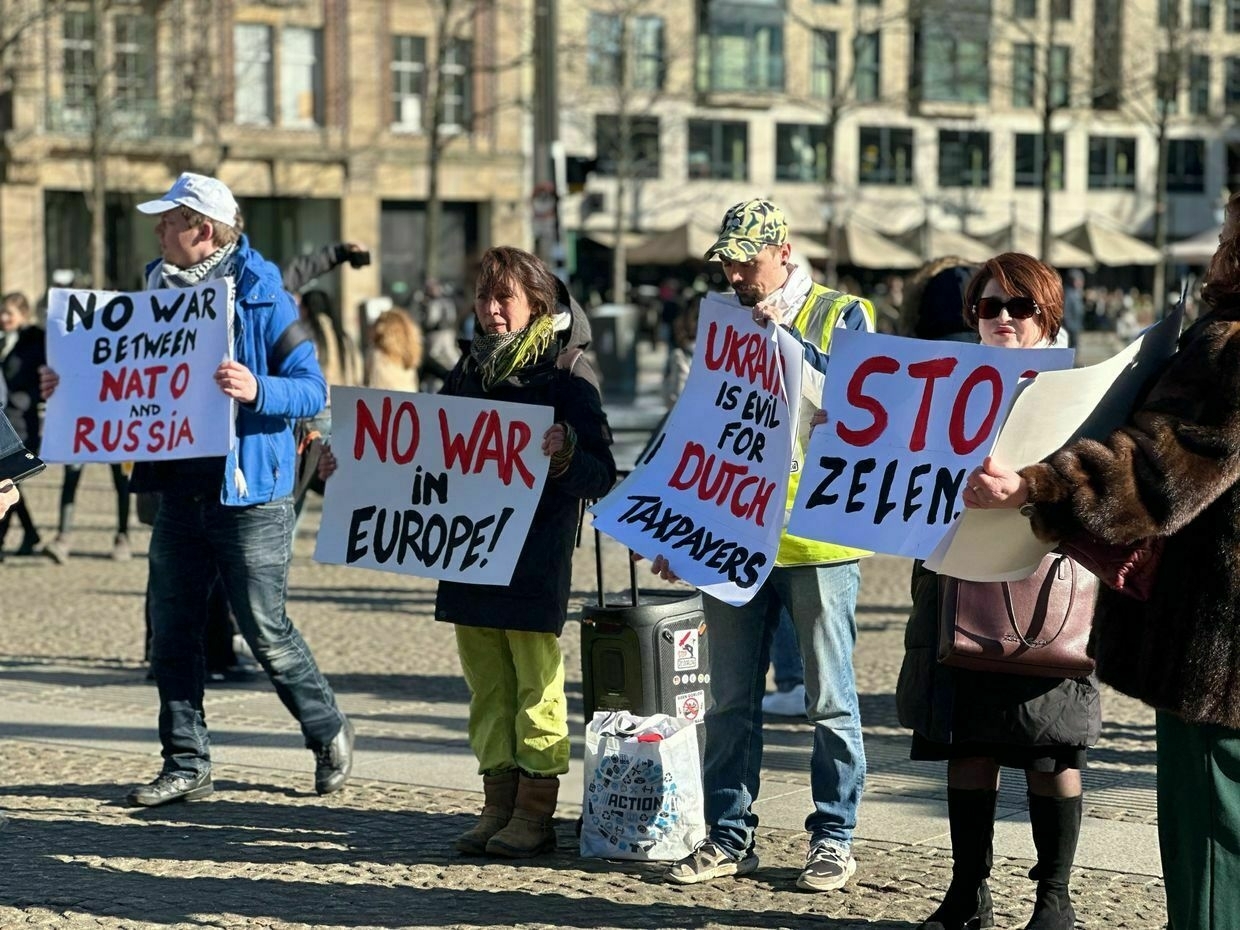
On a Sunday afternoon in mid-February, a small but politically charged event took place in the heart of Amsterdam.
A group of eight people gathered for a photo-op protest on the city’s Dam Square holding placards that called for an end to Western arms deliveries to Ukraine and the removal of President Volodymyr Zelensky.
The event was part of an international campaign that stages small protests in several countries to advocate for elections in Ukraine, its organizers wrote on Facebook. Martial law imposed in Ukraine at the outset of Russia’s full-scale invasion prohibits the country from holding elections.
The Dutch community page that called on people to participate in the protest claimed the event was “coordinated by Ukrainian refugees.” Strangely enough, it appears there were no Ukrainians at the gathering.
Of the eight demonstrators who showed up in Amsterdam, five were Dutch and two were Russian. The identity of one remains unverified by the Kyiv Independent.
Without attracting much attention on the streets, participants quietly unfolded their placards bearing blunt and provocative messages: “Ukraine is evil for Dutch taxpayers” and “Zelensky! Stop killing your people!” Another read “Sponsoring Kiev is sponsoring terrorism against Ukrainians,” using the Russian spelling for Ukraine’s capital city Kyiv.
No Ukrainian flags were seen at the protest, despite the organizers’ claim that Ukrainians had coordinated the event. The only country flag present was Russian, with the words “Peace with Russia” written on it.
Protesters took turns posing with different posters. The messages on the posters warned of war between NATO and Russia, calling for a Ukraine without Zelensky, blaming Zelensky for Russia’s full-scale invasion, and demanding the end of “forced mobilization” in Ukraine.
While a small event, the gathering was part of a larger anti-Ukraine movement posing as a peace initiative that has been ongoing for over two years.
Investigation: We tried to buy American chips as a Russian defense manufacturer — and it workedDespite bans put in place by the U.S. and Europe on the supply of electronic components to Russia, dozens of Russian microelectronics suppliers continue to obtain and resell imported chips to Russian arms manufacturers successfully. Without these Western chips, Russia would not be able to produce k…The Kyiv IndependentAlisa Yurchenko
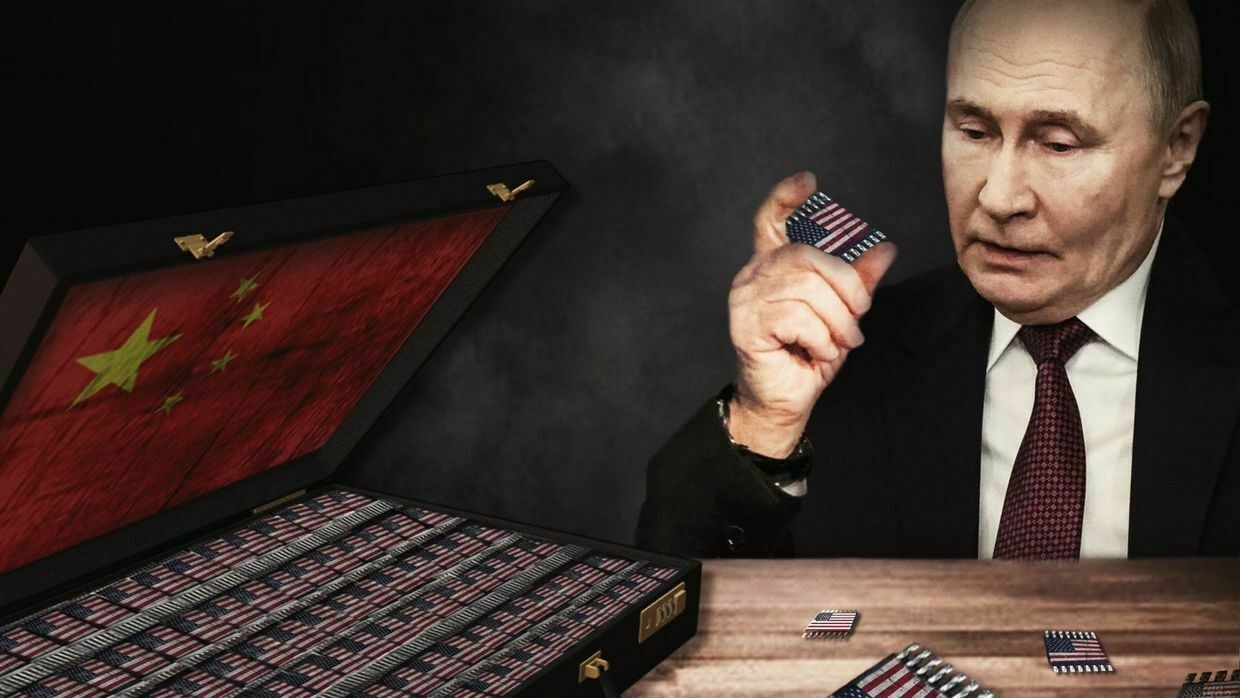
Network of Dutch RussiansAfter the onset of Russia’s full-scale invasion, a group of Dutch activists took to the streets in response to what they perceived as the establishment and media inciting warmongering and hatred toward Russia. Since February 2023, the group, which operates under the name “Vredesdemonstratie” meaning “Peace Demonstration” in Dutch, has been holding monthly protests.
At these events, demonstrators advocate for ending military aid for Ukraine — who they blame for the war along with NATO — and making peace with Russia. Their banners usually feature phrases such as “No weapons for peace” or “Peace with Russia” in both Dutch and English.
The foreign military aid, including assistance from the Netherlands, which the group so passionately opposes, has been critical to Ukraine’s ability to defend itself from Russia’s invasion.
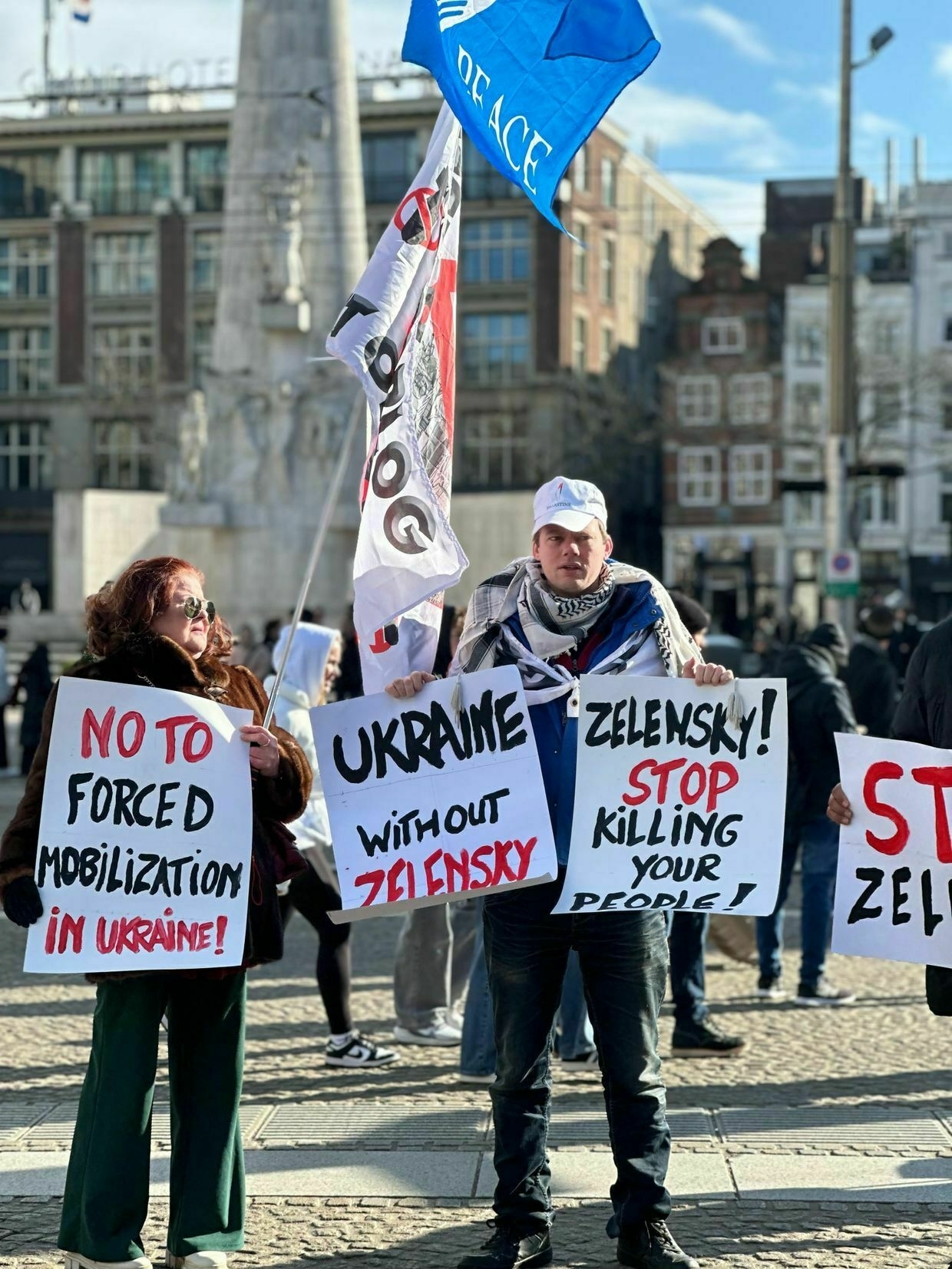
Demonstrators hold placards in a photo-op protest aimed at discrediting the Ukrainian government at Dam Square in Amsterdam on Feb. 16, 2025. (Kyiv Independent) 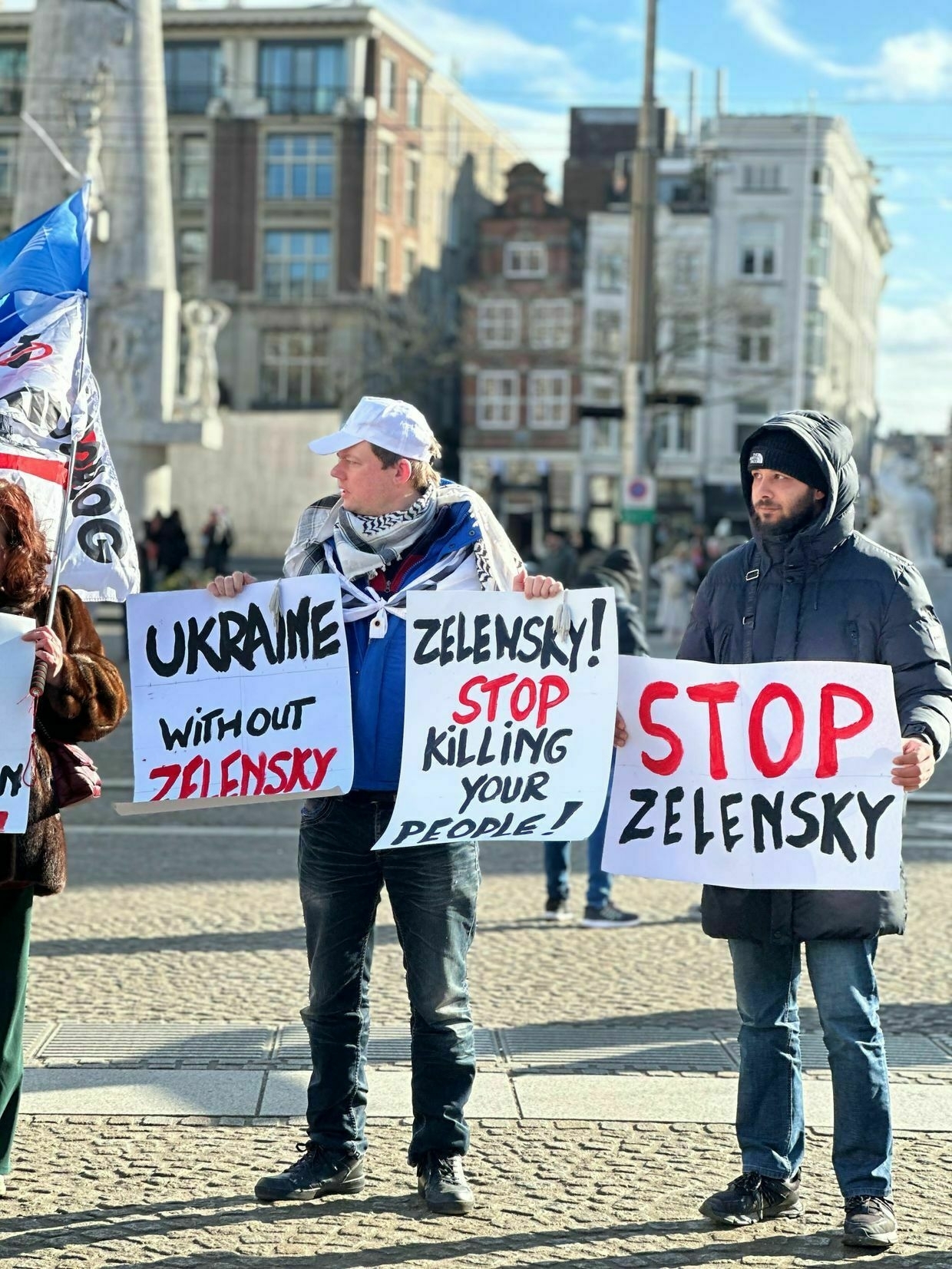
Demonstrators hold placards in a photo-op protest aimed at discrediting the Ukrainian government at Dam Square in Amsterdam on Feb. 16, 2025. (Kyiv Independent) 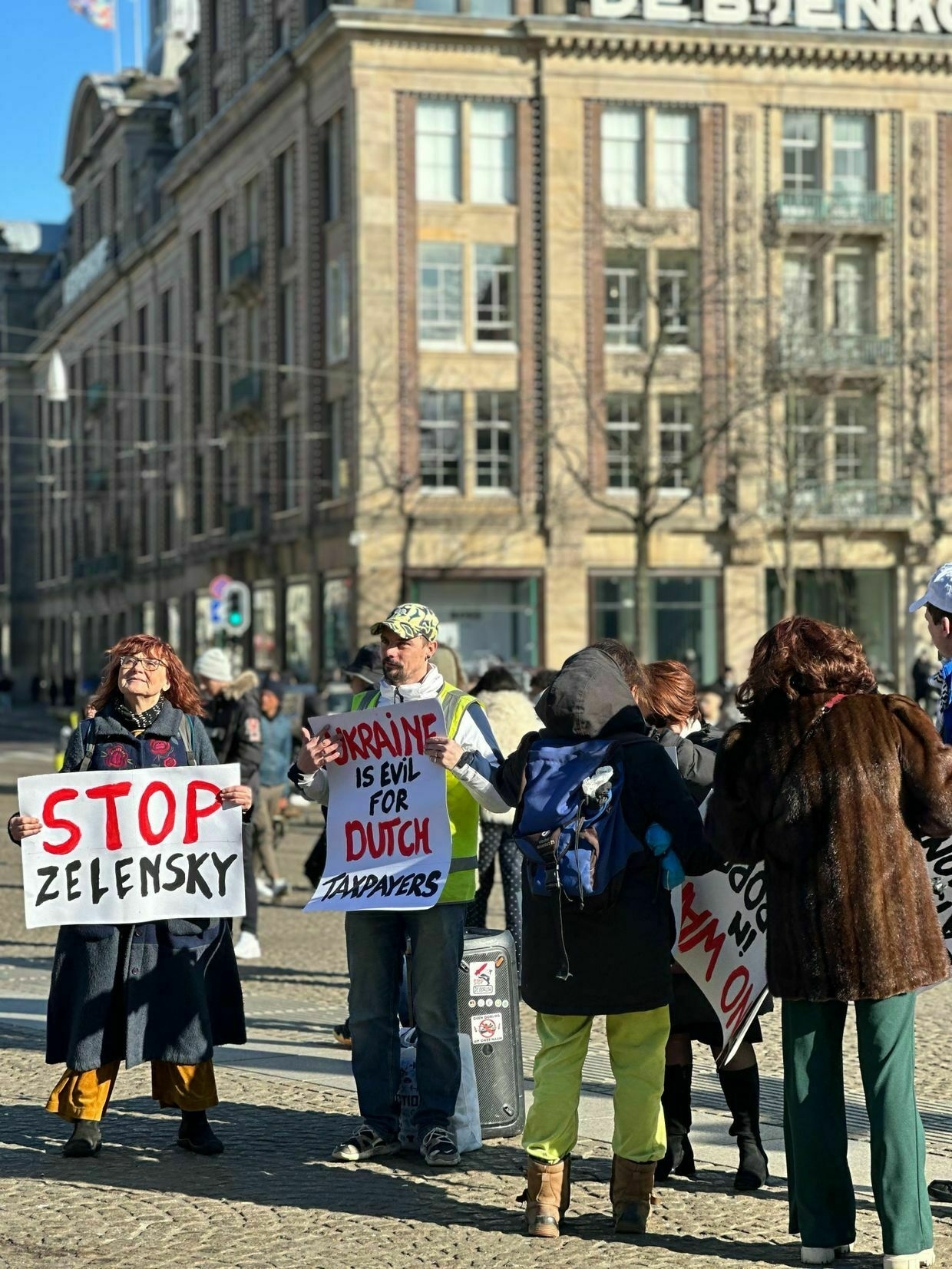
Demonstrators hold placards in a photo-op protest aimed at discrediting the Ukrainian government at Dam Square in Amsterdam on Feb. 16, 2025. (Kyiv Independent) 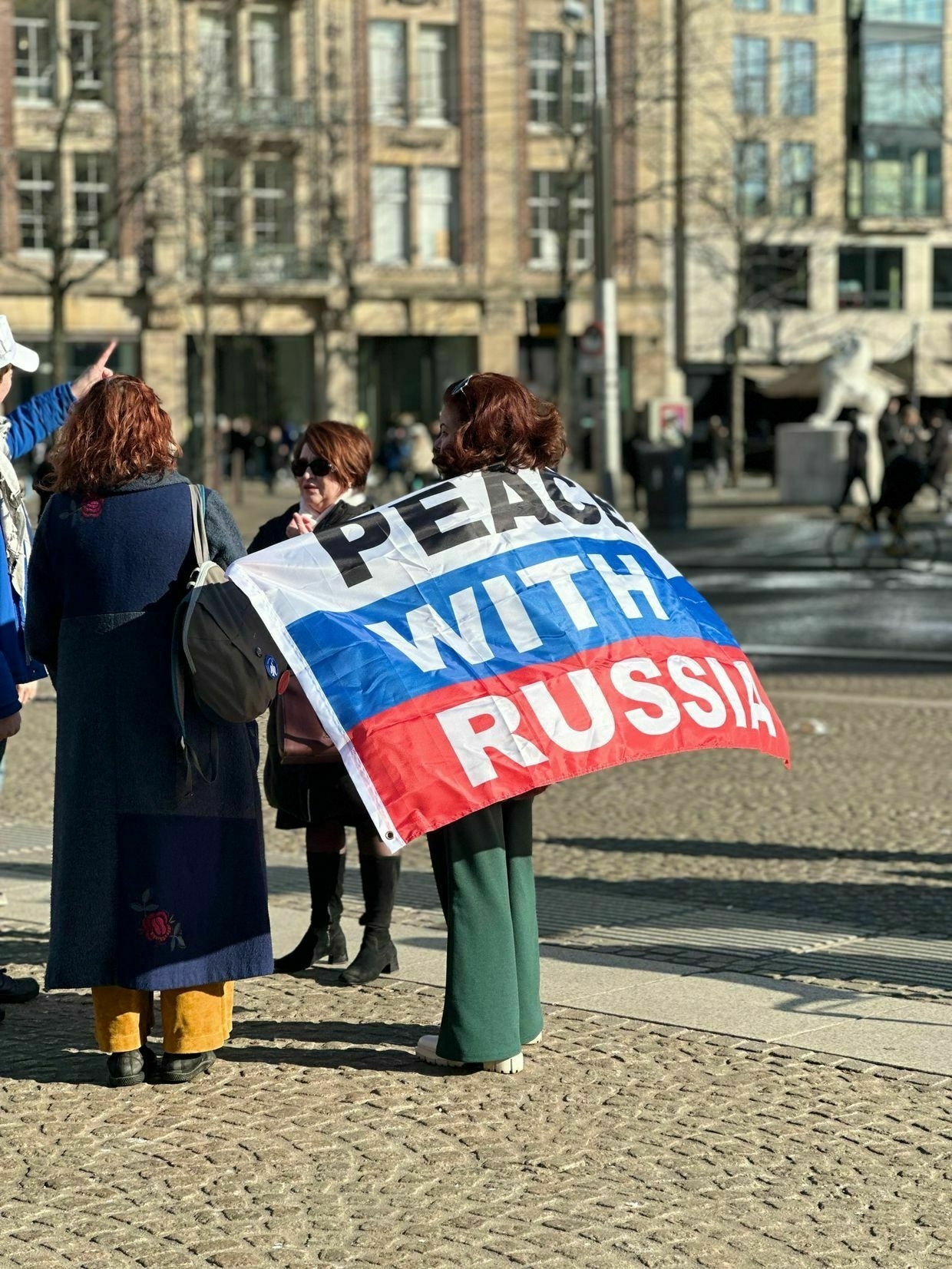
A Russian immigrant holds Russia’s flag with the words “Peace with Russia” on it in a photo-op protest at Dam Square in Amsterdam on Feb. 16, 2025. (Kyiv Independent) Among individual countries, the Netherlands ranks fifth in total military aid, contributing 5.88 billion euros between Jan. 24, 2022, and Dec. 31, 2024, according to the Kiel Institute for the World Economy, which tracks aid to Ukraine.
Although they present themselves as a movement of “pacifist idealists,” members of Peace Demonstration make their demands solely of Ukraine and its supporters, and never of Russia.
The reason for this approach becomes clear as soon as one looks at the composition of the participants: many of the most active protesters at these rallies are Dutch Russians — migrants of Russian origin who settled in the Netherlands long ago. Some have lived in the Netherlands for over 20 years.
The group’s demonstrations often feature Russian flags and sometimes include cultural performances, such as singing traditional songs, dancing, and wearing traditional attire.
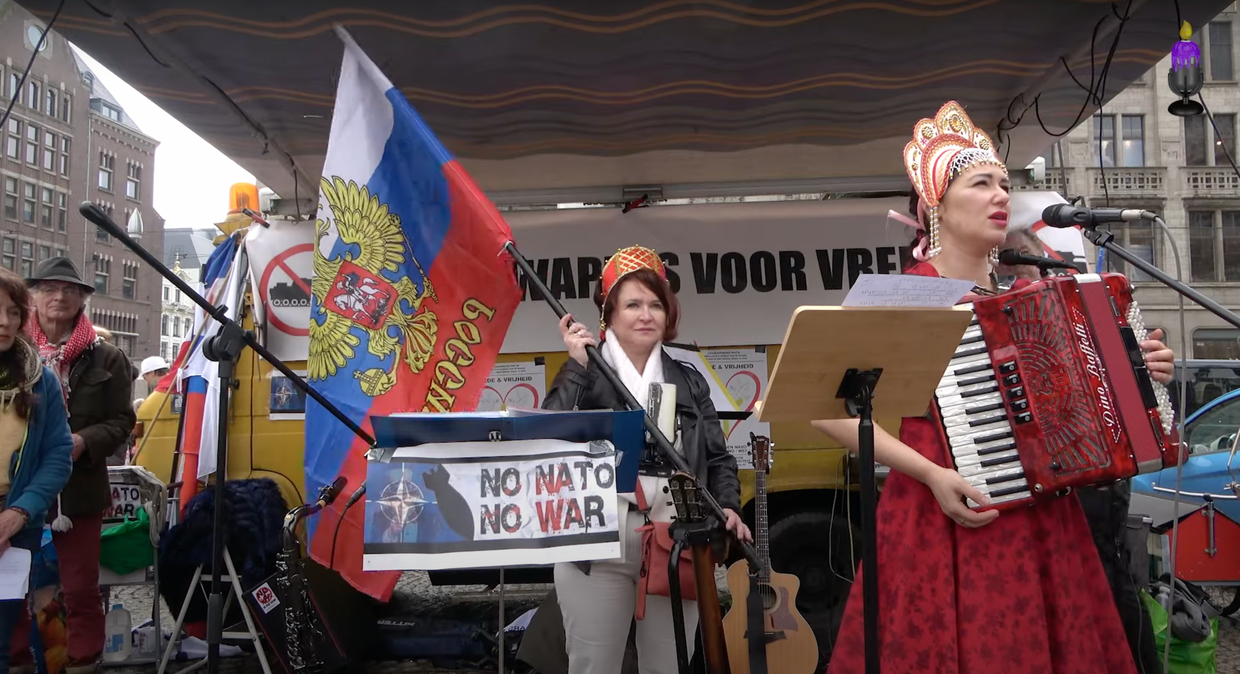
Natalia Vorontsova holds a Russian flag, while another Russian, Elnara Muermans, sings and plays the accordion during the Peace Demonstration at Dam Square in Amsterdam on March 31, 2024. (Screenshot / Potkaars-live) Despite their clear ties to Russian culture, the protesters never identify as being members of the Russian diaspora. It appears that they purposefully keep the origin of the protests blurry, trying to pass the events as Dutch or Ukrainian.
Among those posing with a Russian flag in a recent photo-op protest was Natalia Vorontsova, also known as Nata Heezen. As a co-organizer, she is a key figure in nearly every Peace Demonstration event.
Originally from Russia’s southwestern city of Voronezh, Vorontsova has lived in the Netherlands for over 20 years. She works as a nurse in mental health care.
Alongside fellow activists Nikita Ananjev and Elena Plotnikova, she has been lobbying for Russian interests in the Netherlands since 2014, the year when Russia invaded Ukraine’s Crimea and the eastern part of Ukraine’s Donetsk and Luhansk oblasts.
Campaigning in the Netherlands
In 2016, Vorontsova joined a campaign organized by the Dutch Socialist Party that brought together a group of Russians and Ukrainians with pro-Russian views to advocate against Ukraine’s European integration in a Dutch referendum.
Despite a low turnout of 32.2%, Dutch voters rejected the EU-Ukraine Association Agreement. The vote was non-binding and did not overturn the agreement, which had already been ratified by the other 27 EU member states.
Alongside Vorontsova, two other prominent campaigners were Nikita Ananjev — a Russian who formerly chaired the Russian Student Association in the Netherlands — and Elena Plotnikova, who describes herself on X as a “Russian from Donetsk,” a Ukrainian city that has been under occupation since 2014.
Three years later, in 2019, all three were involved in another organization — the Dutch branch of the Global Rights of Peaceful People (GRPP) international platform, which has advocated for Russian-controlled forces in eastern Ukraine. Ananjev is introduced in one of the platform’s videos as the president of the Dutch Committee of GRPP, while Plotnikova managed the organization’s email correspondence. The GRPP is deregistered from the Dutch Chamber of Commerce. It is not known why its registration was canceled.
GRPP organized a press conference aimed at discrediting an official investigation conducted by the Joint Investigation Team (JIT) into the downing of Malaysia Airlines Flight MH17 in eastern Ukraine. According to the JIT’s conclusions, Russia’s military delivered a Buk missile fired by Russian-controlled militants in July 2014, killing all 298 people on board, including 196 Dutch citizens.
At the press conference, where Vorontsova served as host, a documentary by a former Russia Today journalist Yana Yerlashova and a Dutch blogger Max van der Werff was presented. The film seeks to discredit the official MH17 investigation and deny Russia’s responsibility for the plane’s downing.
The film’s creators are best known for their involvement with Bonanza Media, a project widely regarded as part of the Kremlin’s disinformation efforts.
A joint investigation by Bellingcat and The Insider revealed evidence that Bonanza Media coordinated with Russia’s military intelligence service (known by its Russian acronym GRU) to downplay Russia’s involvement in the MH17 downing. Investigators also discovered that Plotnikova was involved with Bonanza Media.
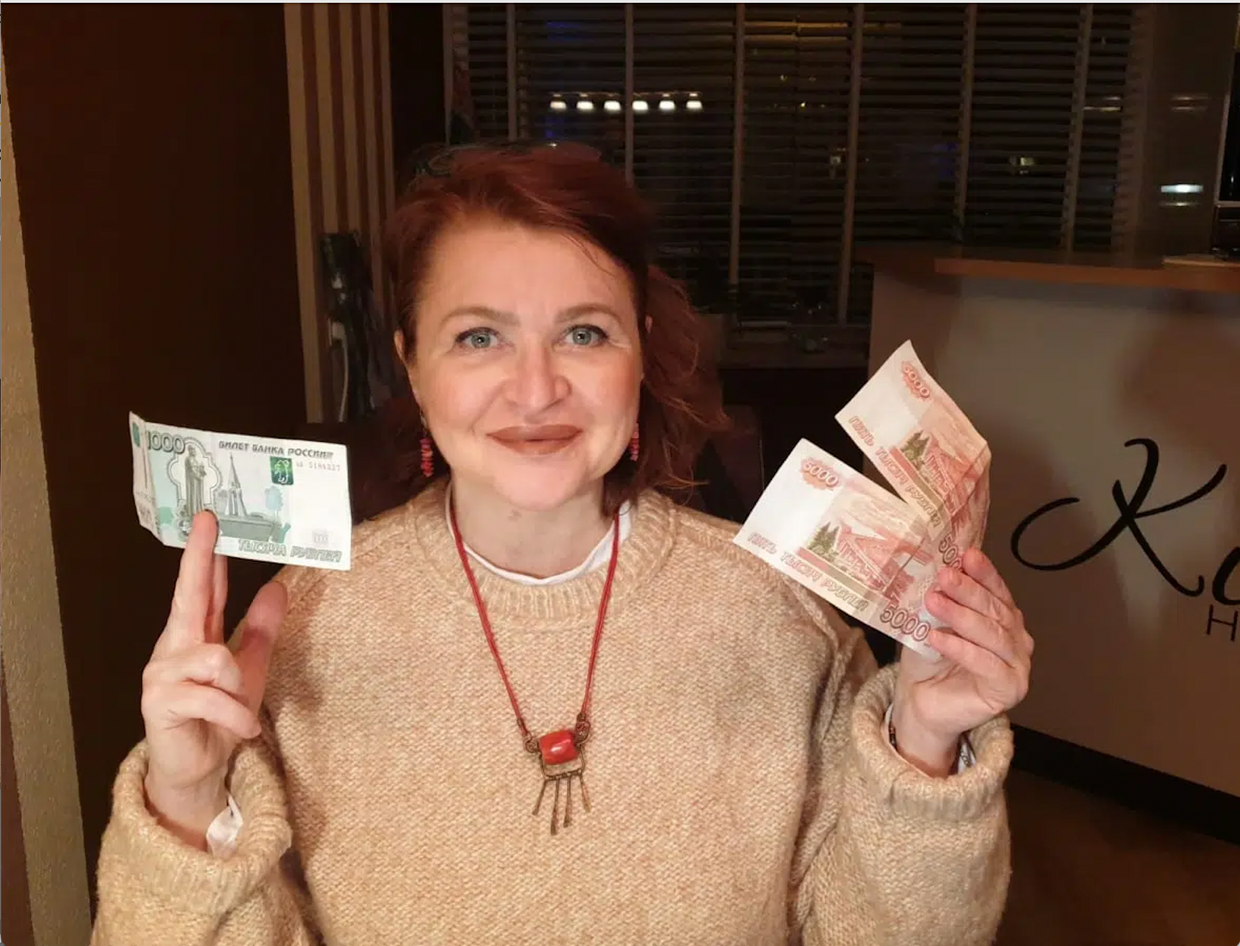
Natalia Vorontsova holding Russian rubles, in an undated photo. (Vredesdemonstratie) Today, it appears, Vorontsova’s main focus is solely on co-organizing Peace Demonstration events in the Netherlands where she’s one of the key faces and voices heard.
She maintains close ties with Russian state media, including TASS and RIA Novosti, whose correspondents often attend the demonstrations and interview Vorontsova for their articles. The published materials are later reshared by Vorontsova in the online groups for protest participants. While their demonstrations attract little attention from the Dutch media, they receive extensive coverage in Russia, making them seem like a large-scale movement.
Meanwhile, Plotnikova remains active primarily on social media and within the Peace Demonstration community. In 2023, she delivered a speech at one of the demonstrations.
Embracing conspiratorial narratives about “NATO missiles killing civilians,” Vorontsova’s demonstrations attract individuals from both far-left and far-right populist circles, united by their pro-Russian sentiment. The pool of guest speakers ranges from communists in anti-fascist movements to MPs from the Dutch far-right party Forum for Democracy (FvD).
An investigation by the Dutch newspaper NRC found that Vorontsova may have received funding for her activities from Volunteers of Victory — a Russian government-funded organization that glorifies Russian military patriotism during World War II and supports Russian soldiers fighting in Ukraine. Despite Volunteers of Victory being sanctioned by the EU, its Dutch branch Victory Team 75 Netherlands remains active by operating unofficially and avoiding formal registration.
In a conversation with the Kyiv Independent, Vorontsova denied any involvement with the Dutch branch of Volunteers of Victory, stating that she had only worn a cap with the organization’s logo that she received as a gift, but had no connection to the group. She also emphasized that she is an independent activist, acts on her own, and is not financially supported by anyone. According to Vorontsova, she finances the demonstrations with donations from supporters.
Another participant of the February photo shoot in Amsterdam, Iolanta DuCroix, also known as Klimaite Bardash, appears in several photos on the Instagram page of the local branch of Volunteers of Victory. A Russian-born resident of the Netherlands, DuCroix assisted Vorontsova in holding a Russian flag during the photo shoot.
Another participant, Nikita Ananjev, is also a prominent figure in the Russian Volunteers of Victory movement. Known as a coordinator of the Dutch branch, he seems to be present at nearly every one of the organization’s events. He was also a representative of the Coordination Council of Russian Compatriots in the Netherlands, an organization that works closely with the Russian embassy.
After Russia’s full-scale invasion, Ananjev openly expressed pro-Putin views. On his page on Vkontakte — a Russian social media platform — he reposted an image stating: “Kyiv will either be Russian or deserted. And we’re fine with it being deserted too."
When asked about her cooperation with Ananjev, given his active involvement with organizations affiliated with Russia, Vorontsova told the Kyiv Independent that she has not seen Ananjev in years nor collaborated with him on any activities since they were both part of the Dutch branch of the International Platform Global Rights of Peaceful People (GRPP).
Investigation: Russia profits from arms exports to Saudi Arabia despite sanctions, leaks revealFew agreements are shrouded in more secrecy than inter-government arms deals — especially when one of the parties is a global pariah leading a bloody war. But a recent massive leak of emails and documents has given us an unprecedented glimpse into a particularly secretive transaction. The leak rev…The Kyiv IndependentAlisa Yurchenko
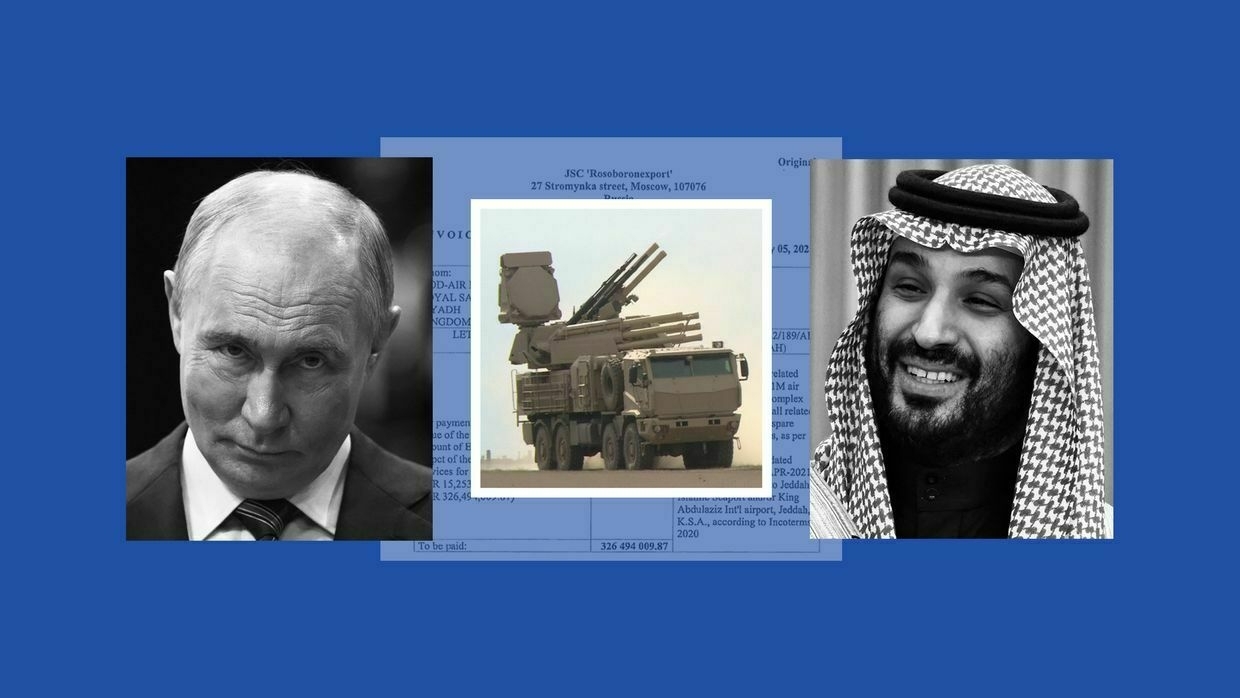
A Ukrainian defector and a Soviet-era emigrantAlthough Peace Demonstration’s messaging appears to reflect Russian interests, its members claim that Ukrainians are also among their representatives.
After analyzing dozens of participants in the group’s demonstrations, the Kyiv Independent found only one Ukrainian who actually spoke in person at their protests. The group’s website and social media present the supposed Ukrainian representative as “Elena from Kiev,” using the Russian spelling for both her name and Ukraine’s capital.
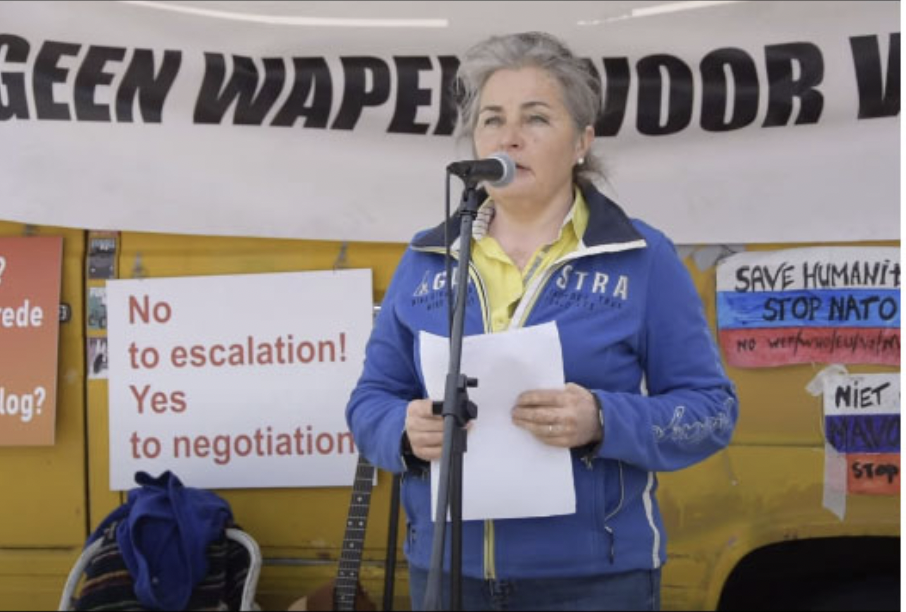
“Elena from Kiev” speaks at the Peace Demonstration at Dam Square in Amsterdam on Jul. 30, 2023. (Screenshot / Vredesdemonstratie) In reality, “Elena from Kiev” has not lived in Ukraine since the 1990s, having spent several years in Afghanistan before settling in the Netherlands, according to an interview she gave to AlternatiefTV in August 2023. Her experience of Ukraine is limited to the Soviet era.
Like other participants in the rallies, Elena’s views, as she expressed them in the interview with Alternatief TV, align with a line of Kremlin propaganda that insists Ukrainians and Russians are “the same people.” This view is widely rejected in Ukraine. A 2022 poll found that 91% of Ukrainians do not consider Russia and Ukraine to be “one people.”
Two other Ukrainians appeared at the demonstrations via video message, supposedly from Russia. One of them, Dmitry Vasilets, is a pro-Kremlin propaganda blogger. In 2024, he was sentenced in absentia by a Ukrainian court to five years in prison for justifying Russia’s aggression against Ukraine, as well as advocating for a violent overthrow of the government.
Vasilet’s criminal record dates back to 2017 when he was convicted of facilitating the broadcast of a Russian propaganda channel in Russian-occupied parts of eastern Ukraine. He spent two years in a pre-trial detention center in Ukraine.
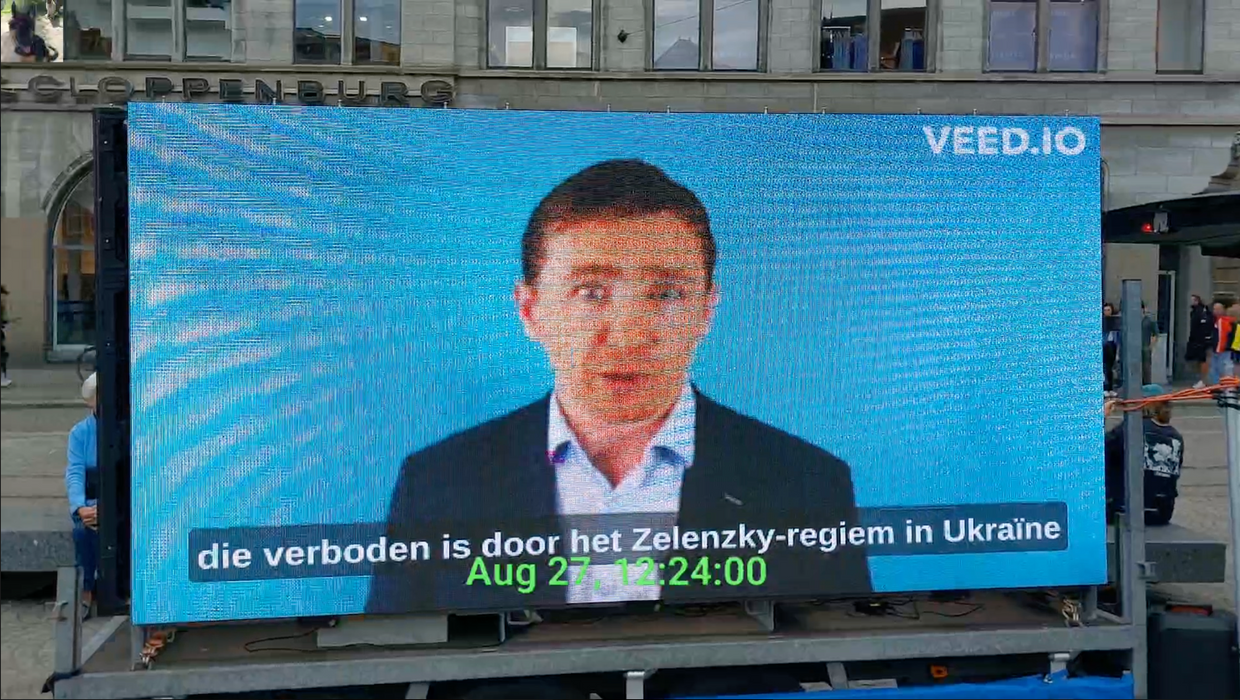
Dmitry Vasilets speaks at the Peace Demonstration at Dam Square in Amsterdam via a video message on Aug. 27, 2023. (Screenshot / Vredesdemonstratie) According to Ukrainian law enforcement, eleven days before Russia’s full-scale invasion, he fled Ukraine for Egypt and later settled in Moscow, where he declared himself the secretary of the so-called “Representative Office of the Ukrainian People” — a body not recognized by Ukraine.
At Vorontsova’s demonstrations, Vasilets appears on the LED screen, calling himself a leader of the Ukrainian party Derzhava in exile. However, Derzhava was banned in Ukraine in 2022 due to its ties to Russia and was so unpopular that it never gained parliamentary representation. During its only attempt to get into parliament in 2006 as part of the “State-Labor Union” bloc, it earned just 0.14% of the vote.
Moreover, the Peace Demonstration group also claimed to have Ukrainian independent press at one of their press conferences but did not specify which outlet. The Kyiv Independent found only one non-Dutch media platform covering the event — Vasilets’ pro-Russian Telegram channel, Mriya.
The biography of the second Ukrainian, who participated virtually in events organized by Peace Demonstrations in the Netherlands, is no less vivid and far from Ukraine.
Fall of Assad’s regime disrupts Russian army recruitment in SyriaThe collapse of the Bashar al-Assad regime in Syria following a lightning rebel offensive in November has shaken Assad-ally Russia’s near-decade of influence in the country. It has also had one other lesser-known consequence: disrupting Moscow’s ability to recruit Syrian fighters for its war in Ukr…The Kyiv IndependentKostiantyn Nechyporenko
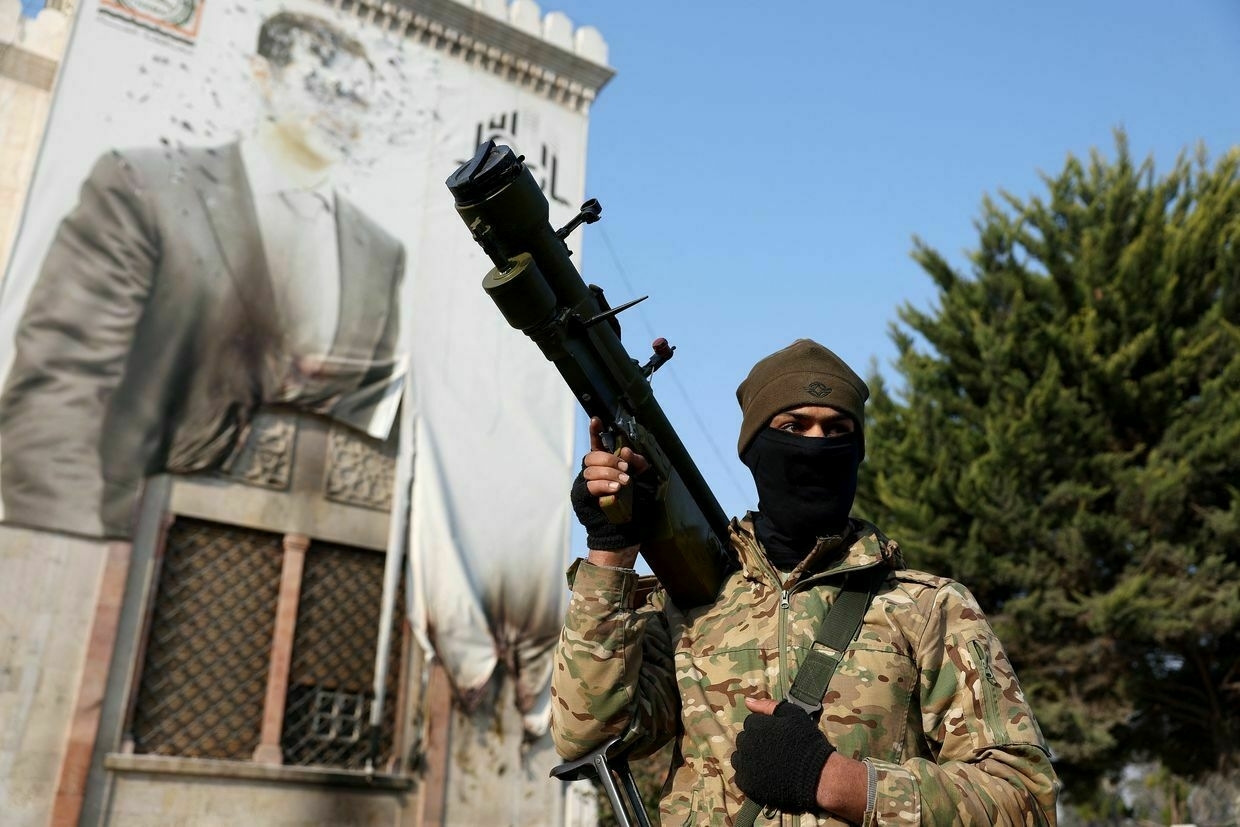
Yanukovych era fugitivesJudging by the social media posts of Peace Demonstration the international pro-Russian photo shoots appear to be coordinated by another Moscow-based organization, the Union of Political Emigrants and Political Prisoners of Ukraine.
Its spokesperson, Leonid Ilderkin, is mentioned in posts related to a previous international pro-Russian campaign that features almost identical scripted messages promoting anti-NATO and anti-Zelensky messages.
Ilderkin appeared in a video message for Peace Demonstrations as a so-called “Ukrainian opposition figure in exile.” In the video, he blames the U.S. and Europe for Russia’s full-scale invasion of Ukraine.
A native of Dnipro, Ukraine, Ilderkin was previously an activist in the pro-Russian communist organization Borotba, meaning “struggle” in Ukrainian. When Russia invaded Ukraine in 2014, Borotba members supported the occupation of eastern Ukraine, with some even taking up arms on the Russian side. After fleeing Ukraine that same year, the group now operates from Russia and recently participated in an event titled the International Anti-fascist Forum in Russian-occupied Luhansk Oblast.
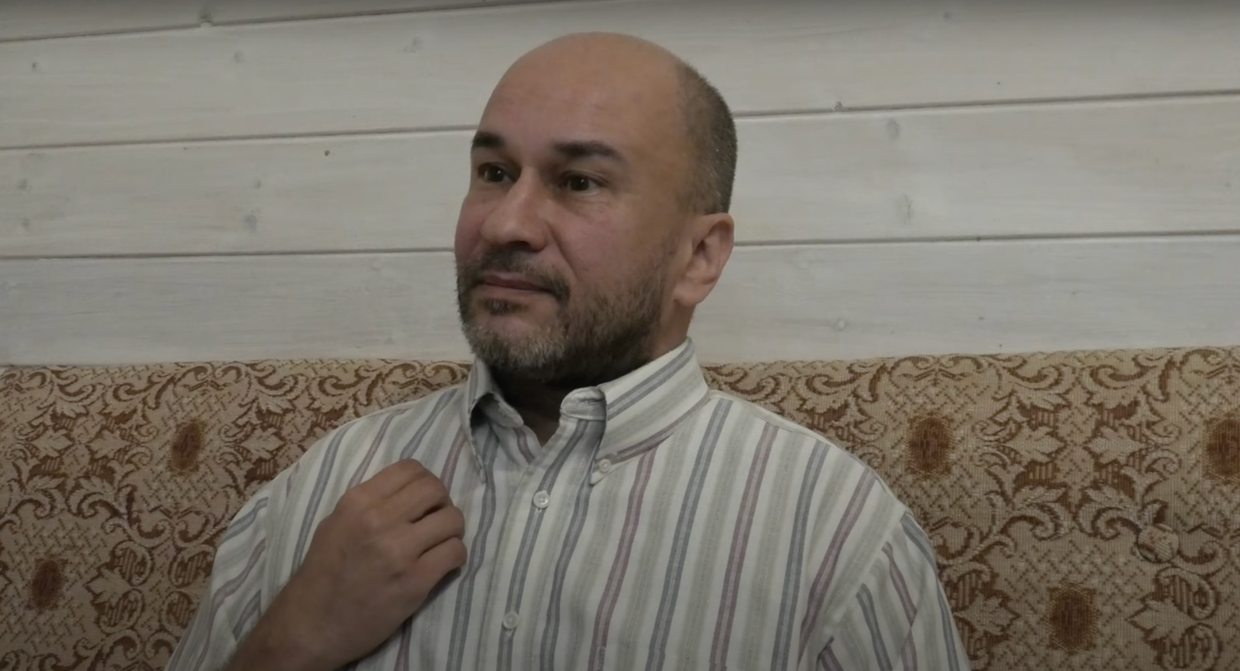
Leonid Ilderkin speaks in a video blog on the YouTube channel “‘Hotbed of Propaganda,” published on Aug. 28, 2023. (Screenshot / Hotbed of Propaganda) According to documents obtained by the independent Russian anti-corruption project Dossier Center, Russia’s military intelligence agency (known by its Russian acronym GRU) attempted to use organizations linked to Ilderkin to coordinate with the European radical left and recruit individuals for protests and acts of sabotage. The Kyiv Independent could not independently verify this information.
The Union of Political Emigrants and Political Prisoners of Ukraine, which has been given a platform by Dutch demonstrations, consists of pro-Russian fugitives.
Among them is Mykola Azarov, Ukraine’s former prime minister under Kremlin-backed President Viktor Yanukovych, who was ousted following the EuroMaidan Revolution in 2014. Azarov participated in a meeting organized by the Union of Political Emigrants in late 2016.
Russian demonstration network in EuropeAlthough the Union of Political Emigrants and Political Prisoners of Ukraine has little media presence and minimal influence on social media, it supports other pro-Russian demonstrations beyond the Netherlands.
For instance, a so-called “Ukrainian political prisoner” from the union addressed pro-Russian demonstrators in the U.K. online from Moscow in August 2024. The “political prisoner” in the video address is the Union’s chairwoman, Larisa Shesler. She is wanted by Ukrainian law enforcement for “undermining Ukraine’s territorial integrity.”
Shesler, a Ukrainian, played a key role in undermining pro-European protests in the Ukrainian city of Mykolaiv in 2013-2014. She coordinated the local anti-protest movement and organized pro-Russian rallies before eventually fleeing to Russia.
The Kyiv Independent found out and verified that she had obtained Russian citizenship.
Shesler’s video message to the British pro-Russian demonstrations was picked up and promoted by Theo Russell from the U.K.-based International Ukraine Anti-Fascist Solidarity movement. Russell, a British activist, is also involved in the Dutch organization Peace Demonstration, having spoken at events and frequently posted in community groups.
Meanwhile, the YouTube channel Chega Serna English, which has been sharing videos of “Ukrainian political prisoners,” posts footage from pro-Russian rallies in cities like Washington, D.C., Sacramento, Paris, and notably Amsterdam.
The footage reveals a recurring pattern — consistent messaging, tone, and symbols, including Soviet and Russian flags. A unifying theme runs through these rallies: a push to end military aid to Ukraine, a critical lifeline for its defense. This mirrors what was seen in Amsterdam.
Russian influence in Europe remains strong, backed by a vast network of pro-Kremlin actors, some of whom are hiding behind Ukrainian names.
‘Match made in heaven’ — Why the US will fail to drive a wedge between Russia, ChinaIt’s no secret that U.S. officials have been trying to drive a wedge between Russia and its key ally, China. Former United States Special Envoy for Ukraine and Russia Keith Kellogg was among the government officials who made the intention public, saying that the U.S. would try toThe Kyiv IndependentKarol Luczka
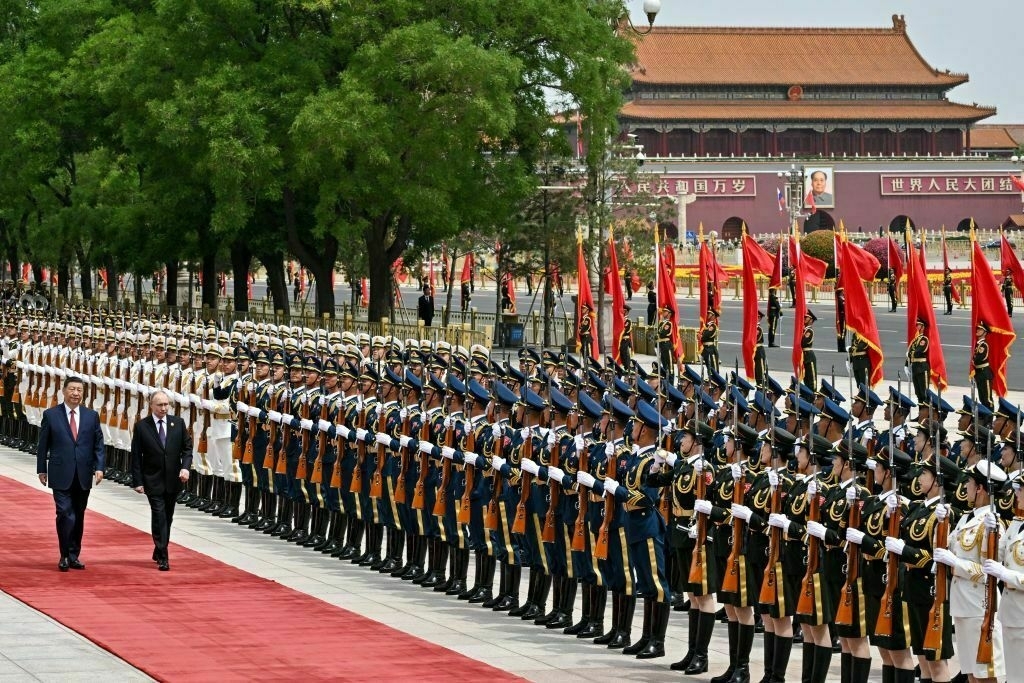
Note from the author:
Hi, I’m Linda Hourani, the author of this story. Thanks for reading!
I hope this piece serves as a reminder that, in times when Russian disinformation is strong, it is crucial to stay critical and not be misled. If you’d like to help us produce investigative reports like this, please consider supporting our work.

